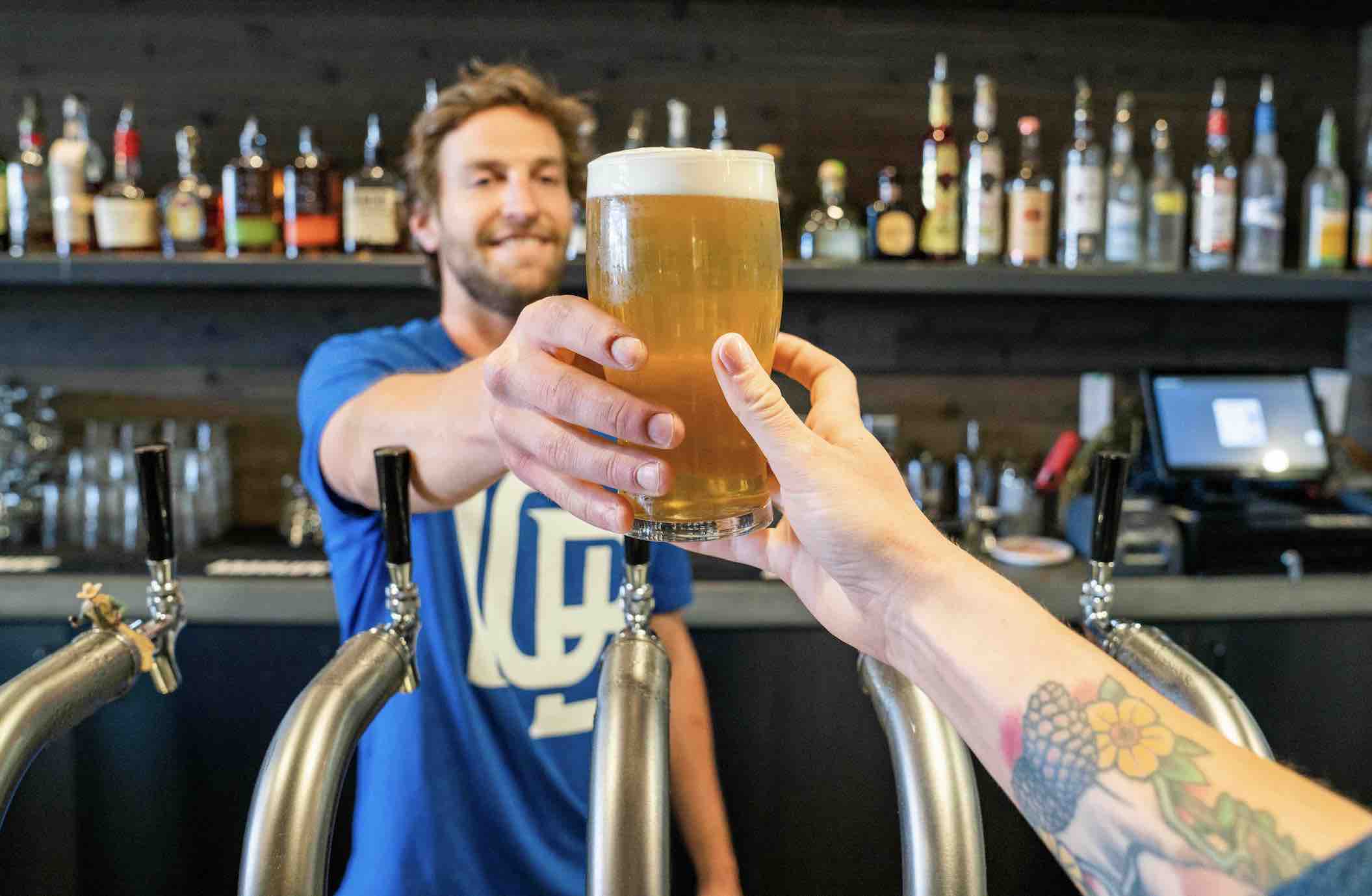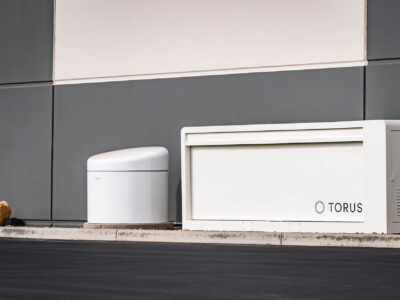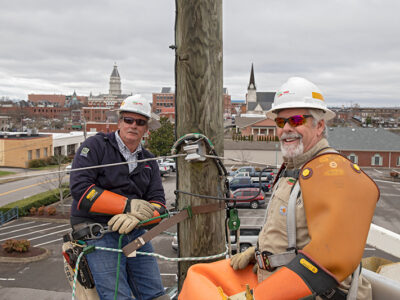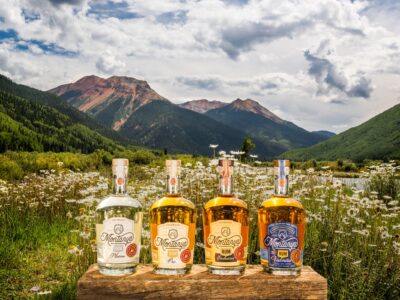We’ve covered many interesting and unique breweries here at Consensus. Many beer makers are doing good work in environmental conservation and philanthropy. So, we’re bringing them to you in a nifty list so you can plan your next travel outing or just want a new spot in your neighborhood. No matter where you live or visit, a craft brewery is nearby.
Alaska
I’m sure beer isn’t the first thing that comes to mind when you think of Alaska. Moose, grizzly bears, and salmon spring to mind! Yet, Alaska is home to one of the first major craft breweries in the U.S. The Last Frontier is an up-and-coming craft beer hotbed.
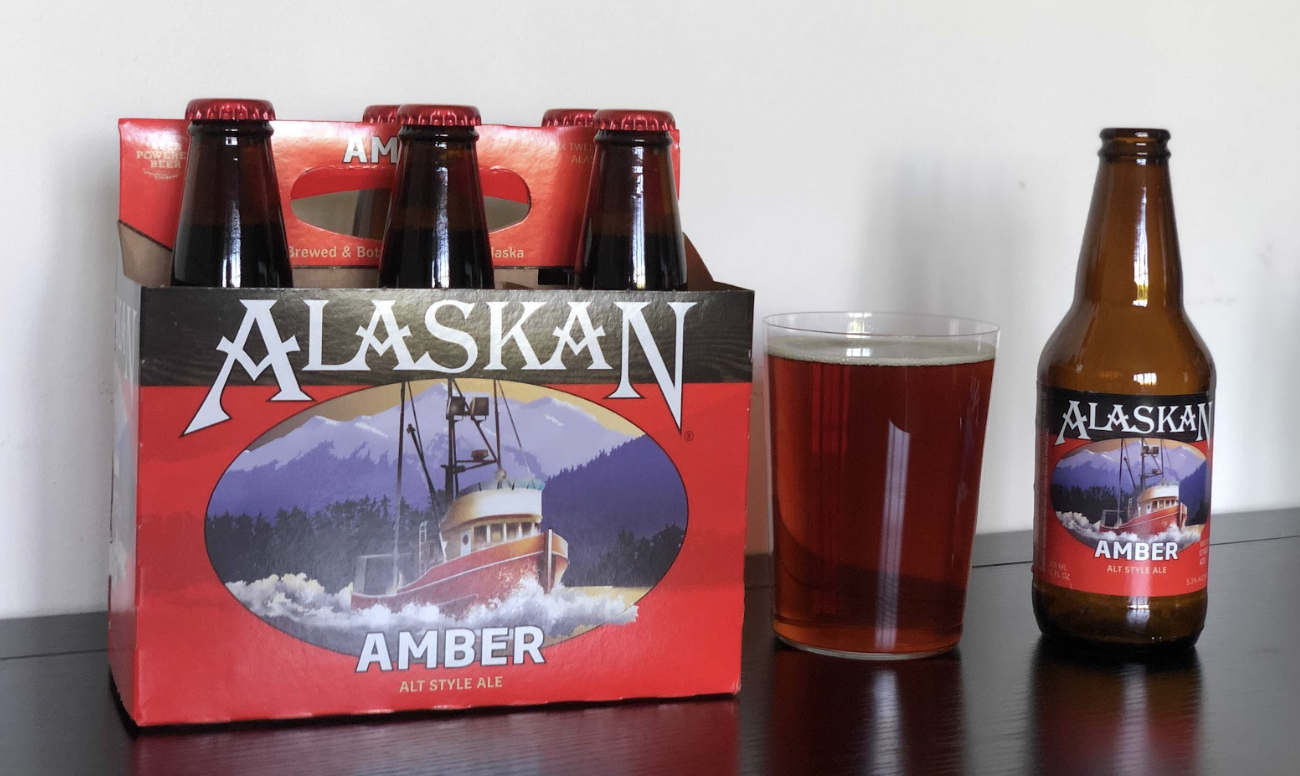
Photo Courtesy Alaskan Brewing Co.
Alaskan Brewing Co.: Founded in 1986 by Marcy and Geoff Larson, Alaska Brewing Company has been a big player in craft beer for some time. The Juneau, AK-based brewery uses glacial water and ingredients like spruce needles to encompass the flavors of Alaska in every bottle.
One of the company’s most famous beers is the Spruce IPA — it won a gold medal at the 2019 U.S. Open Beer Championship. Other beers include the Smoked Porter, made with smoked alder for a bold flavor.
Alaska Brewing is one of the first American breweries to use a carbon dioxide reclamation system to capture more than a million tons of carbon dioxide. It’s also the first brewery to use a grain mash filter press to save water, malt, and diesel fuel. The company also has used mashed grain for boiler power, reducing fuel consumption by 65%.
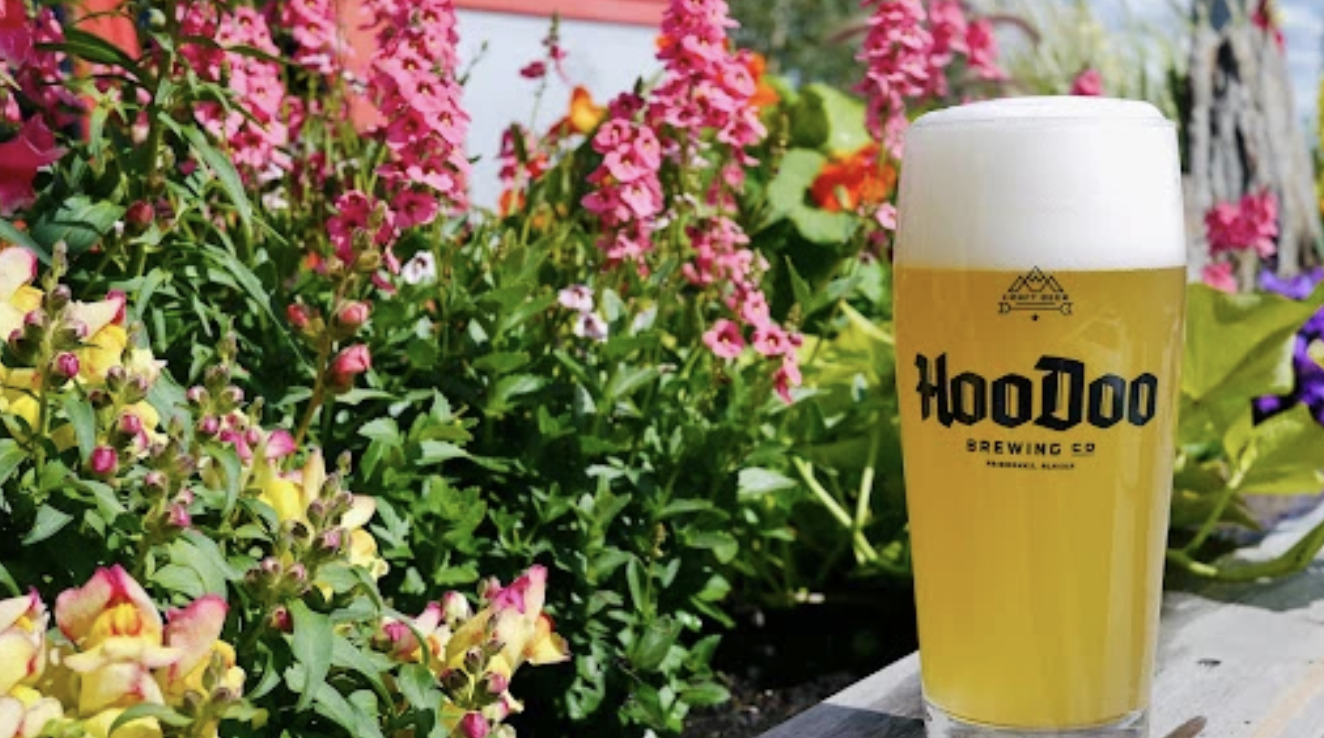
Photo Courtesy HooDoo Brewing Co.
HooDoo Brewing Co.: Situated in Fairbanks, AK, HooDoo began operations in 2012, making up for the lack of a local craft brewery that Anchorage and Juneau already had. Founder Bobby Wilken was born and raised in Fairbanks. After an extensive trip to some of the top breweries in Europe, he brought back some of their beer styles and brewing tricks to Alaska. After honing his craft at Alaska Brewing Co., Wilken set out on his own.
From there, HooDoo was born. Wilken installed solar panels to keep energy costs lower and maximize the sunlight when possible to ensure the brewery could be operational even in the coldest and darkest days of winter.
All the ingredients are typically shipped in from Seattle and other Pacific Northwest ports, but Wilken tries to use local supplies when he can. HooDoo serves an extensive line of German-inspired beers. There’s an outdoor, German-inspired Biergarten in addition to the taproom.
Alabama
Whether you root for the Crimson Tide or hail the War Eagle, college football rivalries can be set aside over a pint. Why not have that drink at Alabama’s very sustainable Ferus Artisan Ales brewery.

Photo Courtesy Ferus Artisan Ales
Ferus Artisan Ales: A very energy-efficient brewery, Ferus utilizes solar energy to be the first of its kind in Trussville, AL. A partnership with Eagle Solar & Light, LLC produces about 168,000 kWh of solar energy. Powering the brewery’s operations, it saved an estimated $20,000 in its first year.
Ferus only opened in 2019, so there is plenty of time for increased savings from lower energy costs. The company is looking to attract younger consumers and hopes these eco-conscious decisions will get them through the door. Research by Economist Intelligence Unit suggests young people are willing to pay for top-of-the-line beers if they are produced sustainably.
Ferus used this information and similar tactics deployed at New Belgium Brewing Co. in Colorado. Founder Coby Lake has found a cool way to save energy, help the planet, and keep his carbon emissions low, all while producing fantastic ales.
Arkansas
Arkansas’s brewery scene is still relatively new. In just a few short years, it’s blossomed into a place for creativity and ingenuity. Many of the craft breweries there were founded by students emphasizing sustainability. They’ve made a significant impact on the state’s environment.
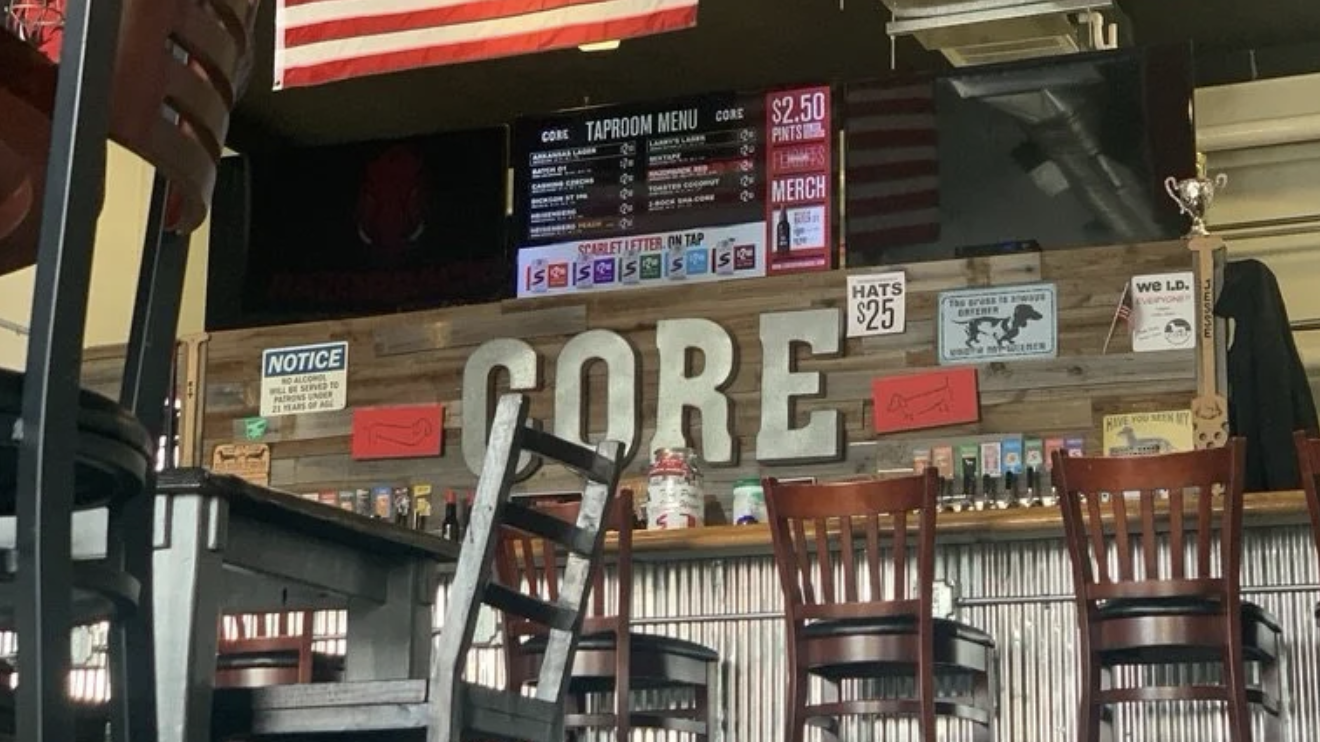
Photo Courtesy Core Brewing
Core Brewing: Jesse Core started Core Brewing back in 2010. An Arkansas lifer, he had begun brewing back in the 1990s. In college, Jesse struggled to pay attention in microbiology class. His professor noticed, but when he discovered Jesse had taken up beer brewing, the teacher taught him how microbiology could be applied to make beer better.
In 2018, four University of Arkansas engineering students conducted their senior capstone project by identifying ways Core could save resources and energy.
They recommended the Springdale, AR, brewery replace the heat exchanger and use water capture to reuse water for new batches.
The effort saved 1.3 million gallons of water, and Core saved $5,000 in business costs. The heat exchanger reinstallation cost was recovered in just two years. Without the work of these students, Core Brewing would not have emerged as one of Arkansas’s most sustainable breweries.
Arizona
Craft beer in the desert sounds incredibly refreshing. That’s the idea behind many of the Arizona breweries, offering a place for people to cool off. Many of these brewpubs return the favor to their customers with some generous philanthropic campaigns.
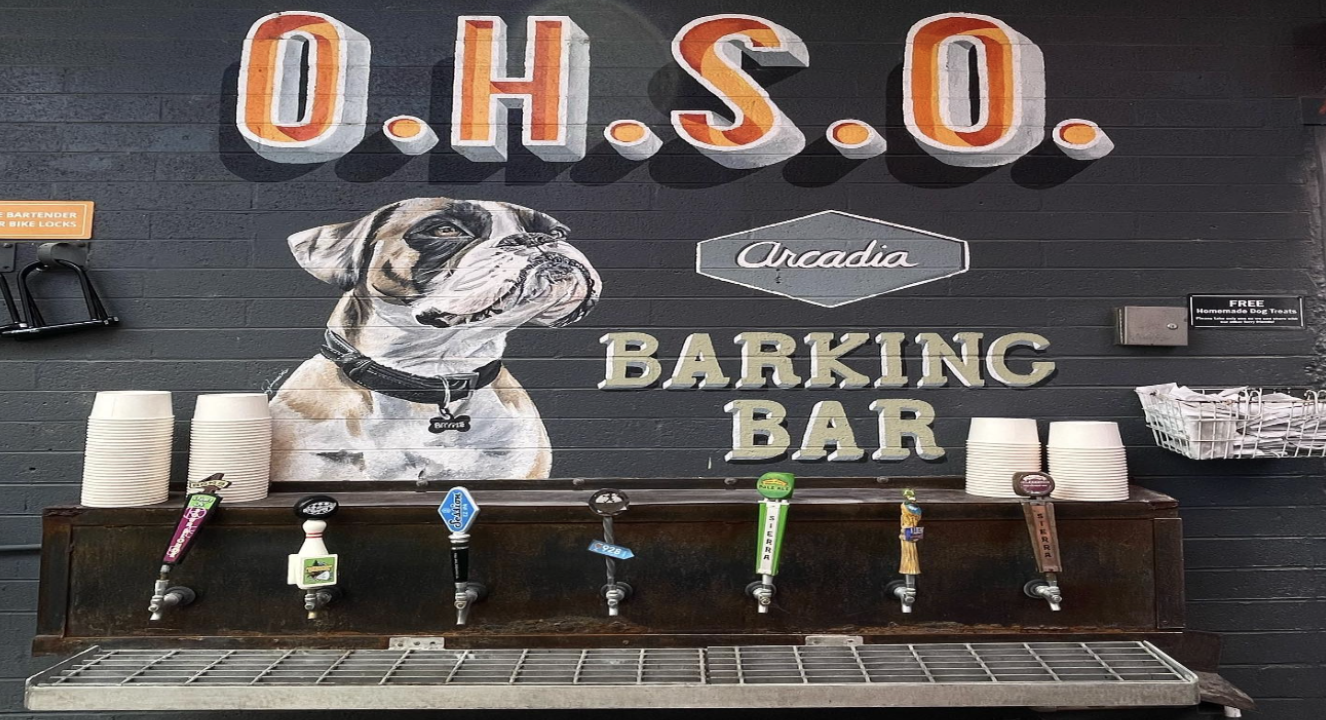
Photo Courtesy O.S.H.O. Brewery-Arcadia
Outrageous Homebrewer’s Social Outpost (O.S.H.O.): In the shadow of Camelback Mountain, AZ, lies the O.S.H.O. Dog lovers will especially like this brewery, with its canine-friendly atmosphere in the outdoor seating area perfect for an outing with friends. The brewery now has locations all over Phoenix. The staff also offers homebrewers lessons on making personal signature beverages.
The company serves more than beer and dog biscuits, though. A family-friendly portion of the business, Little O’s Market, draws in the non-drinking crowd by offering coffee and donuts to guests in the morning.
O.S.H.O. does a lot of community outreach, too. It created a beer dedicated to suicide prevention and mental health awareness, named after the suicide hotline number. This program now extends to 500 breweries across the nation.
Some sustainable measures that O.S.H.O. practices include necessary methods to save water in the Arizona desert climate. They have explored water-recycling processes to reduce water use. In addition, the brewing grain is given to ranchers for cattle feed or baked into dog treats.
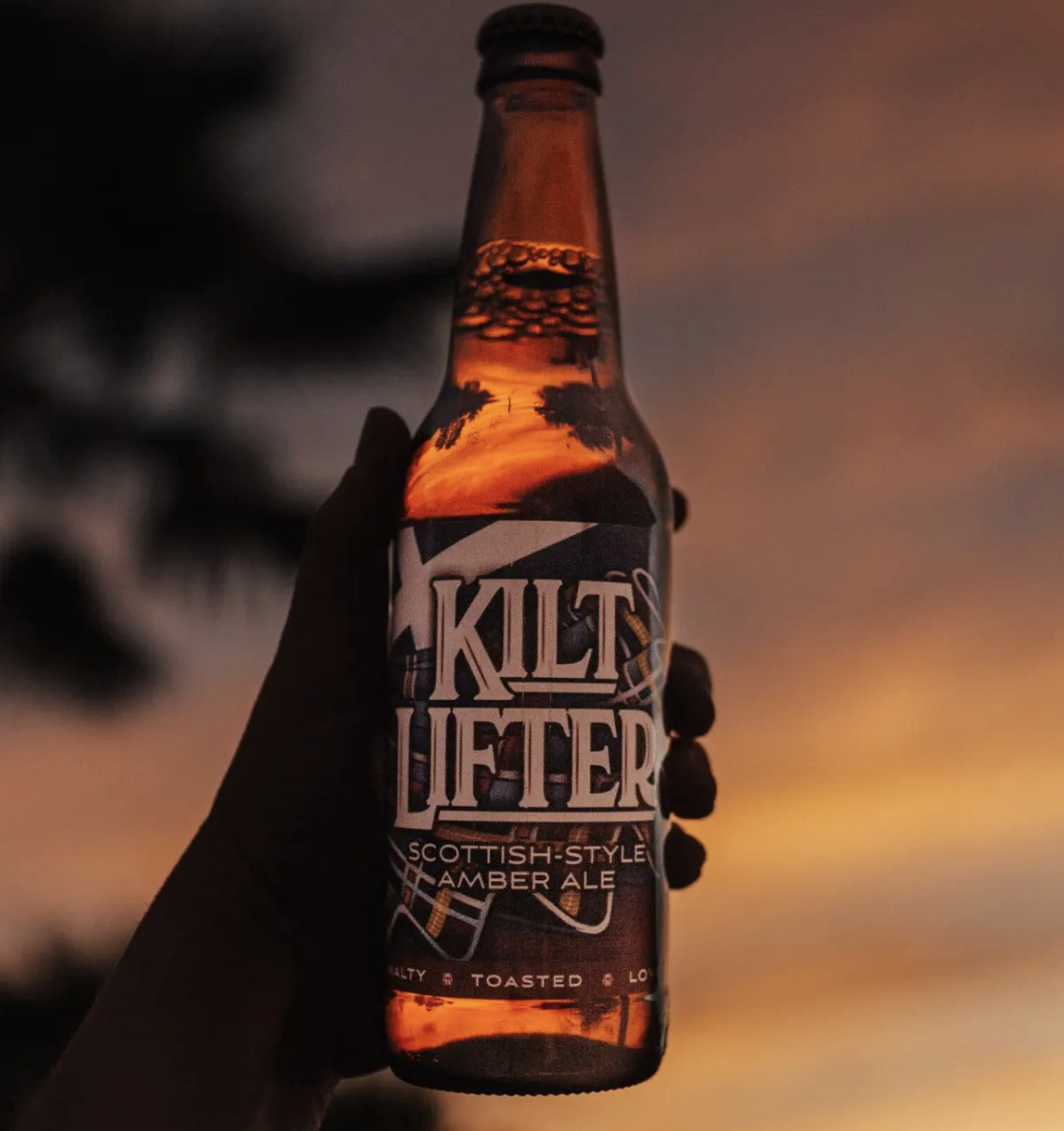
Photo Courtesy Four Peaks Brewing Co.
Four Peaks Brewing Co.: In 1997, four Arizona State students banded together to create one of America’s largest craft breweries in Arizona. Their story begins with a restoration of a run-down old ice factory.
The business put 500 solar panels on the brewery roof in 2020 to keep up with production demands without using fossil fuels for power.
A specialty hard seltzer was brewed in commemoration of the installation. Everything from the seltzer production to the canning process was run on solar, saving money lower the company’s carbon footprint.
Four Peaks, which brews Scottish ale, Hefeweizen, Stout, and IPAs, springboarded into mainstream beer markets in 2015 when they partnered with Anheuser-Busch to make Arizona’s favorite beer, the Kilt Lifter. Since then, eight states have carried the signature brew.
In 2011, the Four Peaks For Teachers was founded to provide teachers with financial assistance. It has helped thousands of teachers over the past decade. In 2021, the foundation sent 10,000 supply kits to schools across Arizona, Texas, Nevada, New Mexico, and Utah. In addition, 11 teachers received over $1,000 for further supplies.
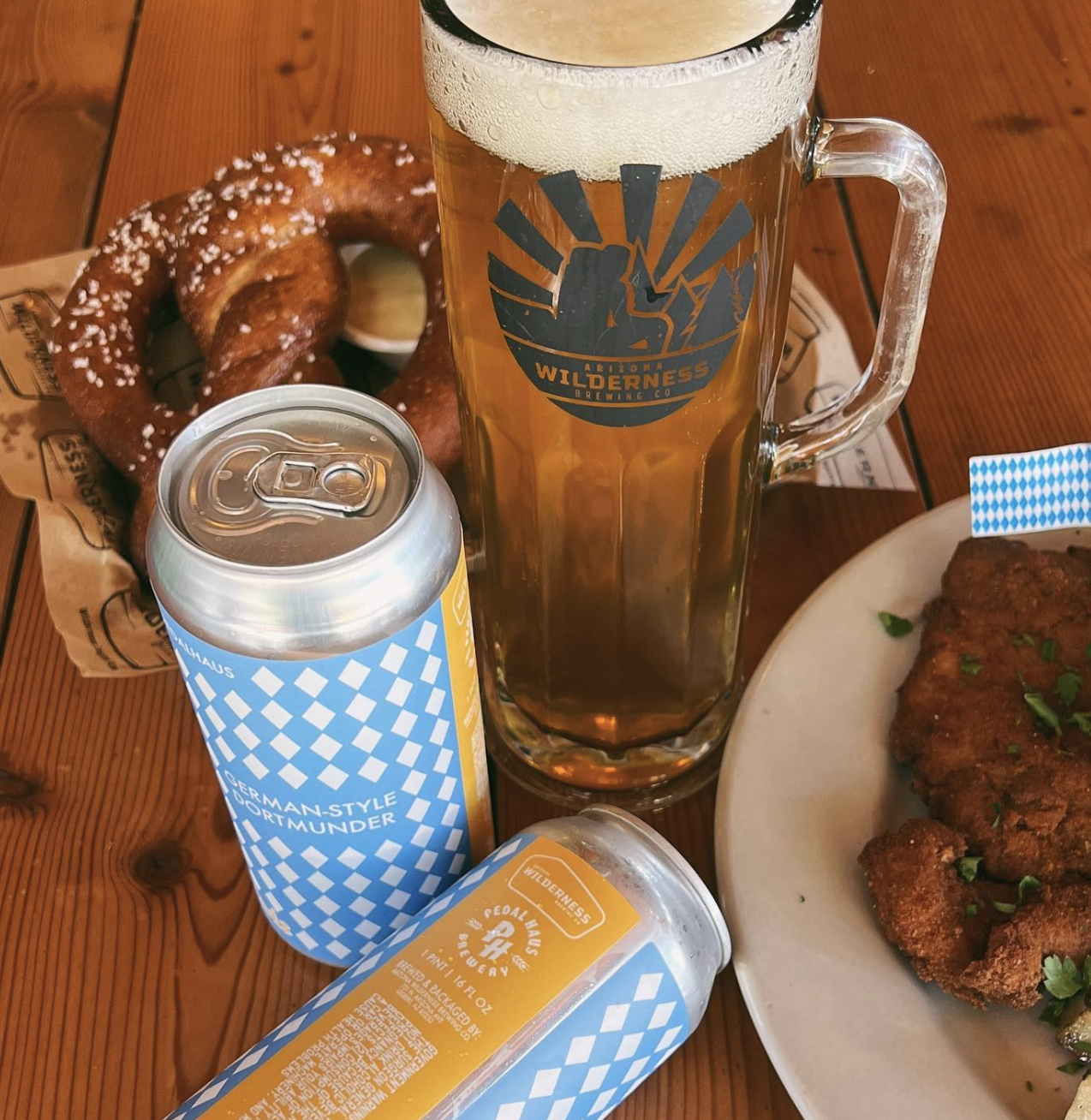
Photo Courtesy Arizona Wilderness Brewing Co.
Arizona Wilderness Brewing Co.: The last stop in our Arizona brewery coverage takes us to Arizona Wilderness Brewing Co. Started in 2010 by Jonathan Buford, the brewery went from being a small stop on a strip mall to a downtown Phoenix monument. In 2014, the small-time craft brewery won the Best New Brewery award, propelling them into the limelight. Now, it has become a household name.
Beers from Arizona Wilderness Brewing are made with sustainability in mind. The brewers use local ingredients like strawberries, citrus peels, and second-use Carignan grapes for their extensive beer list. Everything comes from within Arizona, including the lower-water crop malt for brewing that Sinagua Malt provides. Arizona Wilderness has helped keep more than 425 million gallons of water in the Verde River.
Other sustainable initiatives include working with Recycled City. It collects the brewery’s food scraps and donates compost to local businesses and farmers. Similarly, the Oktoberfest beer proceeds go toward The Nature Conservancy’s forest restoration efforts. Buford sees these initiatives as educating the community about sustainability.
California
The Pacific Coast is home to some of the country’s most niche and unknown microbreweries. With wine dominating in California, it may come as a surprise that one of the oldest craft breweries in the U.S. is in Northern California.
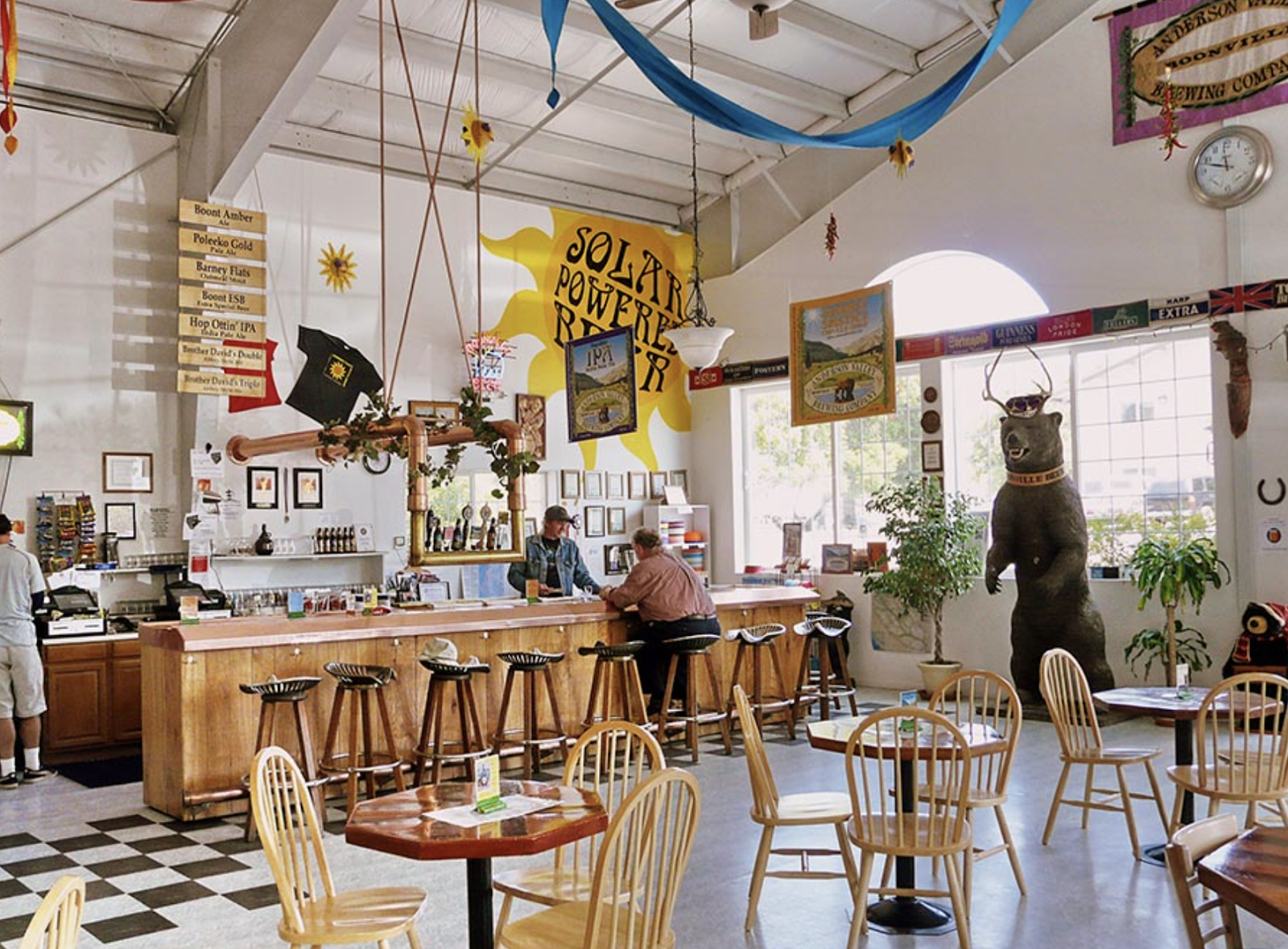
Photo Courtesy Anderson Valley Brewing Co.
Anderson Valley Brewing Co.: One of the older craft breweries on this list, Anderson Valley began in the lower level of Buckhorn Saloon in Boonville, CA. Under the guidance of CEO Kevin McGee, it has become quite the eco-friendly brewery. His “Leave No Trace Brewing” policy works to turn a profit with a positive ecological impact.
In 2022, a solar array was built to supplement clean energy for operations. Independent of California’s state grid, the system is helping the surrounding community with its power needs. Water recycling saves water, keeping more in the reservoirs of the Golden State.
Recycled cans and bottles allow Anderson Valley to keep beer prices low. Since recycled receptacles cost less to ship, the brewery doesn’t need to raise prices to supplement business expenses.
Even during the worst of the COVID-19 pandemic, McGree was able to keep the brewery running. It’s a resilient place, surviving three wildfire evacuations. Anderson Valley’s sustainable measures allow the company to thrive economically without overusing resources.
Colorado
It seems like everyone is moving to Colorado these days. It’s understandable why: mountain views in the morning, a cheaper cost of living, wide-open spaces, skiing — and breweries galore. Plus, these craft and large breweries in the Rocky Mountain State keep their carbon footprint low.

Photo Courtesy fabian jones
Coors Banquet Works To Protect Firefighters: As forest fires ravage the Rocky Mountains, those on the frontline are increasingly at risk of fire-related accidents. They need a lifeline to protect themselves and their families in case of the worst situation.
Coors Banquet, makers of the iconic stubby-bottle Coors, has started a philanthropic campaign called Protect Our Protectors. The charity provides wildfire fighters and their families with financial assistance.
Coors Banquet has ran several successful donation drives. One included donating proceeds from beer sales of a limited-edition stubby-bottle six-pack. Another is a collaboration with clothing company Brixton, where customers received a collection capsule. This campaign attracted the attention of country star Chase Rice, endorsing the efforts of the brewing company.
Since 2014, Coors Banquet has raised $2 million for wildfire fighter assistance. The brewery has also worked with Wildland Fire Foundation, another wildfire fighter association. Not only are they heavily involved in taking care of firefighters, but they also promote employment in the Forest Service, especially during a labor shortage.
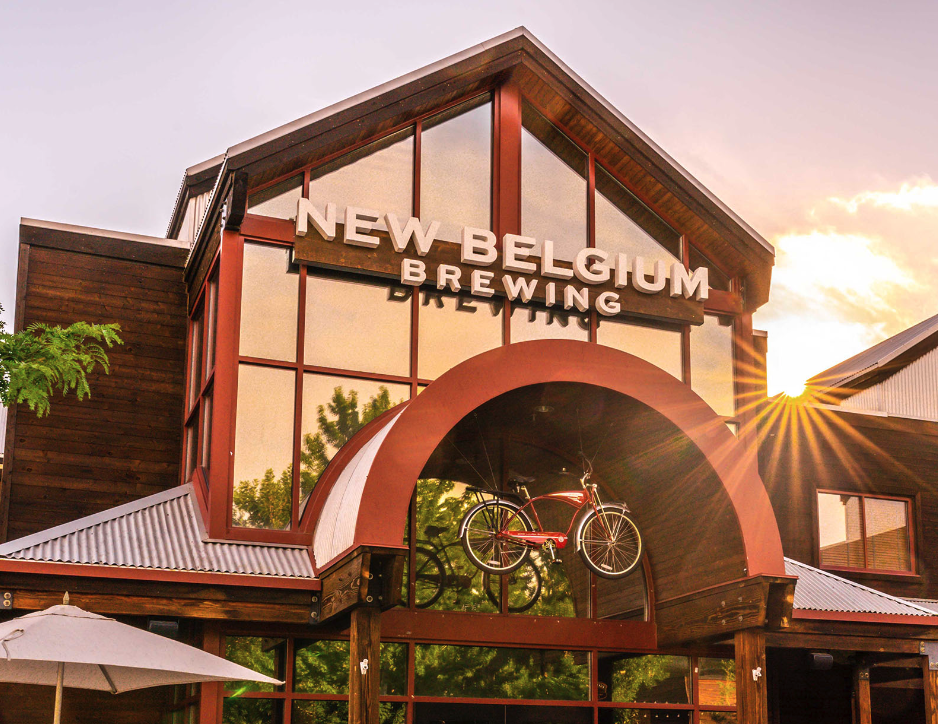
Photo Courtesy New Belgium Brewing Co.
New Belgium Brewing Co.: In 1991, New Belgium Brewing opened its doors in Fort Collins, CO. Since then, founders Kim Jordan and Jeff Lebesch have transformed it into the fourth-largest craft brewery in the country. It’s one of two Fort Collins-based breweries found in the top 10 craft breweries lists. The company has opened two locations: one in Asheville, NC, and one in Denver, CO.
Since its establishment, New Belgium has achieved B-Corp status and donated more than $29 million to charitable causes.
The flagship brew, Fat Tire Amber Ale, has been certified as the first carbon-neutral beer in the U.S. This is the first step in going fully carbon-neutral by 2030.
In August 2021, New Belgium released a toolkit to help other breweries lower carbon emissions. The guide encourages investments in renewable energy, regenerative agriculture, using more recycled items, and switching company vehicles to electric power. Current CEO Steve Fechheimer stressed the importance of collaborative efforts to reduce brewing-related emissions. Breweries looking for sustainable guides can visit www.drinksustainably.com for more information.
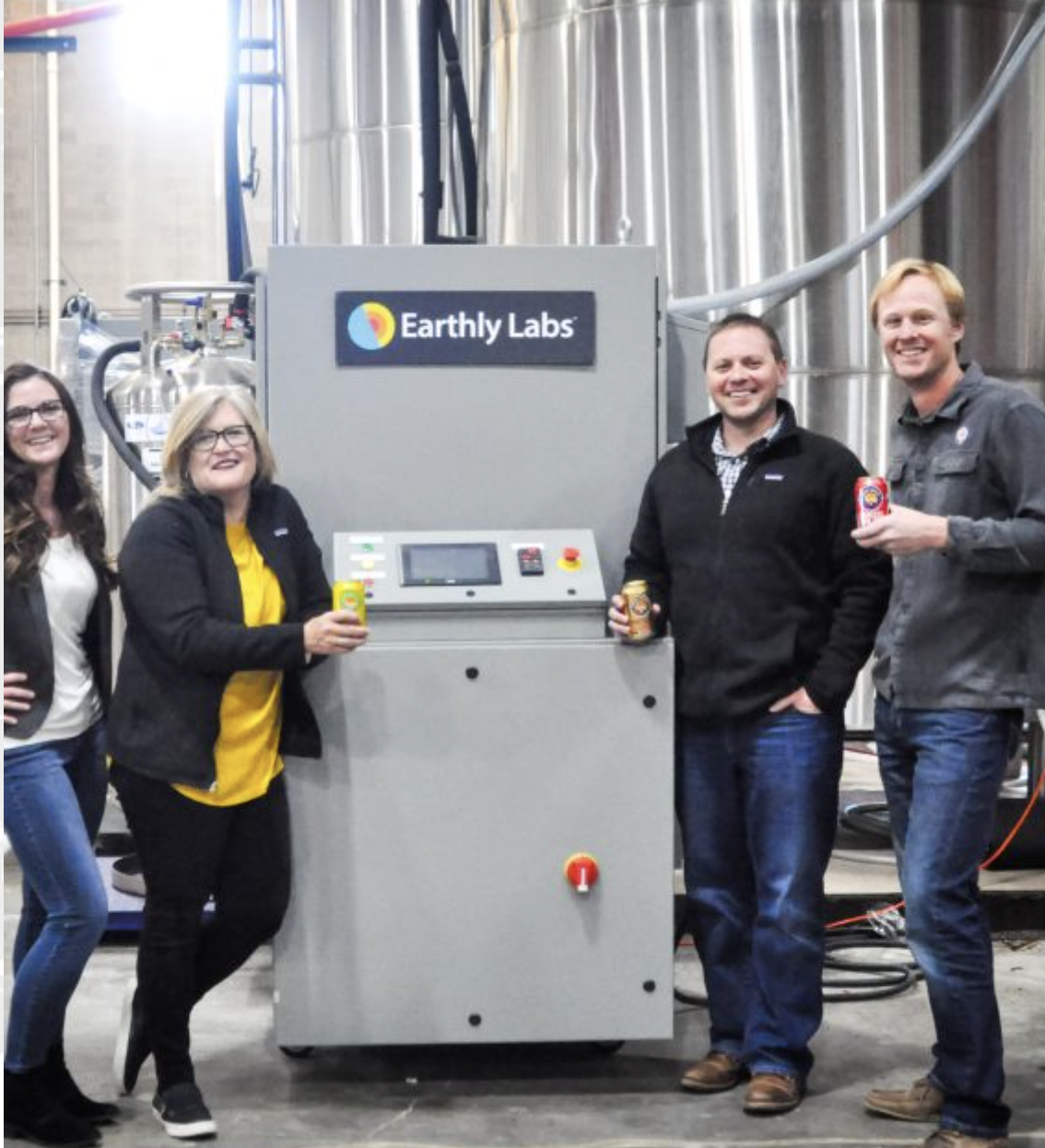
Photo Courtesy Denver Beer Co.
Denver Beer Co.: Denver Beer Co. is changing how companies manage carbon dioxide capture. When brewing 20,000 barrels of beer daily, a lot of carbon dioxide (CO2) is released into the atmosphere. However, new technology allows Denver Beer to capture emissions. Through a collaboration with Earthly Labs, an Austin, TX-based startup, the brewery captures 100,000 pounds of CO2 annually.
Colorado’s Department of Public Health and Environment ran a program called the Carbon Dioxide Reuse Pilot Program to send captured CO2 to businesses that can use it. Other breweries have used it for brewing and cleaning.
Some cannabis dispensaries are using CO2 to aid plant growth. The Clinic, conveniently located down the street for Denver Beer, was one of the first purchasers of the captured gas. The dispensary pumps two different CO2 sources into grow rooms, enhancing the water and soil nutrients. Denver Beer Co. has found an innovative way to capture emissions and repurpose its spoils.
Connecticut
Connecticut’s growing beer scene has some way to go before it fully flourishes, but the work so far has been going strong. The community service of some state brewpubs is unparalleled, and there is still room for more involvement.
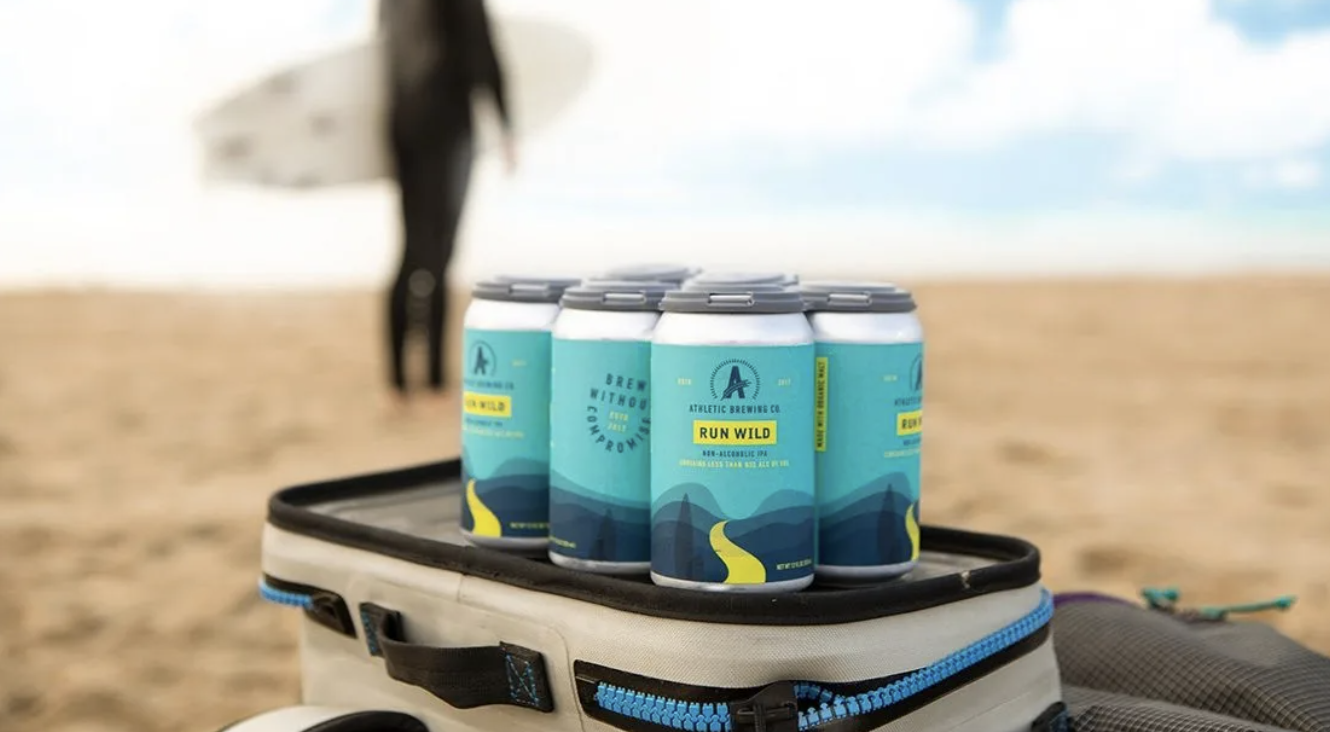
Photo Courtesy Athletic Brewing Co.
Athletic Brewing Co.: Stratford, CT’s Athletic Brewing answers a tough question for athletes: how do you enjoy yourself while staying in shape? Athletic Brewing is designed to have all the appeal of a craft beer without alcohol. These beers have fewer calories than traditional beer.
Founder Bill Shufelt noticed that other non-alcoholic beers lacked flavor. He and brewmaster John Walker found a formula, and the brewery has done very well for itself.
To give back to the people who brought them this success, the company donates 2% of total sales to various charities.
Some campaigns it is involved in are Two For the Trails, where proceeds uplift outdoor and community programs. The business also partnered with the American Hiking Society, Leave No Trace Center for Outdoor Ethics, Fort Clinch State Park, and others.
Athletic attracted some serious investors like former NFL players J.J. Watt and Justin Tuck, former cyclist Lance Armstrong, Chef David Chang, and TOMS founder Blake Mycoskie. Since 2021, Athletic has committed itself to inclusion in its hiring process. They are hoping to attract more members of the LGBTQ+ community and women to work at the brewery. They want to break down barriers and make craft beer more inclusive.
Washington, D.C.
The nation’s capital has a burgeoning craft beer market as more breweries pop up in the District’s city limits. They’ve banded together to improve the city economy while becoming model businesses.
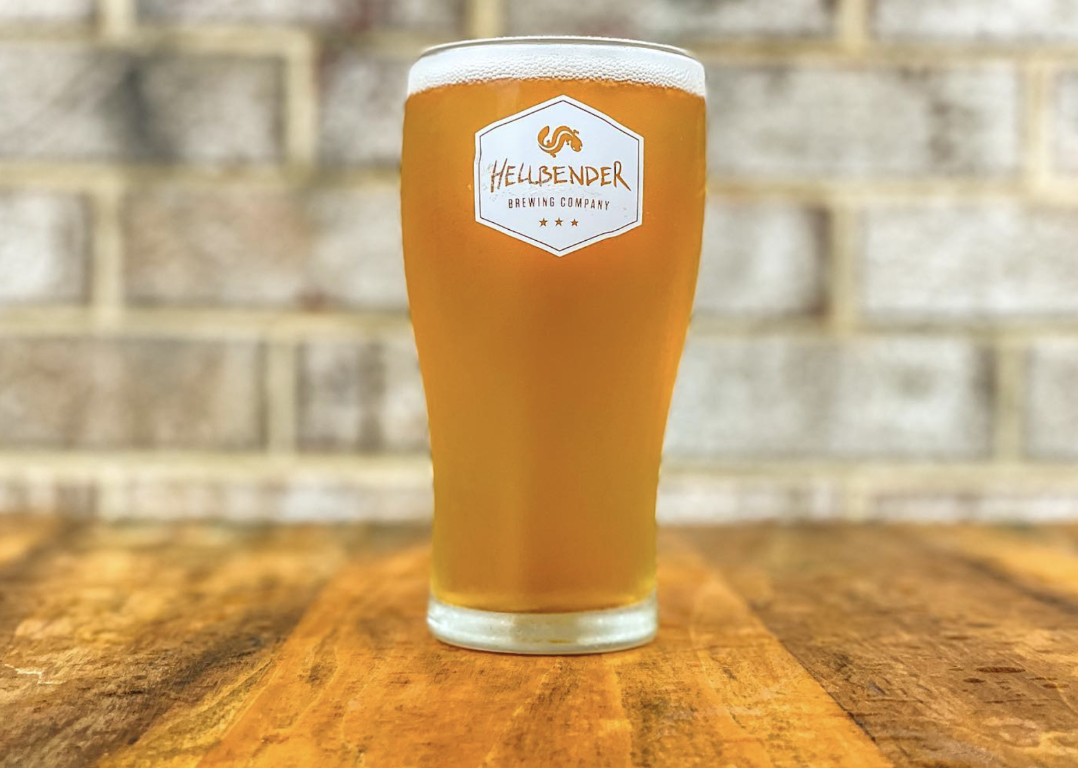
Photo Courtesy Hellbender Brewing Co.
Hellbender Brewing Co.: A District brewery with animal conservation in mind, Hellbender is named after the hellbender salamander. The giant water lizard used to live in the rivers in the nation’s capital, but pollution and urban development drove them deeper into the Appalachian Mountains.
When founder Ben Evans learned about the hellbender’s story, he combined his interests in beer-making and conservation. The brewery uses multiple sustainable practices, like using finely ground grain to reduce water and energy consumption. In addition, 98% of starch is broken down with mashed grain.
Hellbender is also involved in numerous social outreach campaigns. It created a line of beers dedicated to the Navajo Code Talkers of World War II.
It was produced by a brewmaster of Navajo descent, with his grandfather (a Navajo Marine who served in World War II) featured in the label art.
Likewise, the business has partnered with Marymount University professor Tim Bryson for its Amplify Black Voices and Support Black Businesses beers. These ales support educational opportunities for underserved children and highlight Black-owned restaurants. Hellbender is very tapped into social issues and environmental conservation efforts.
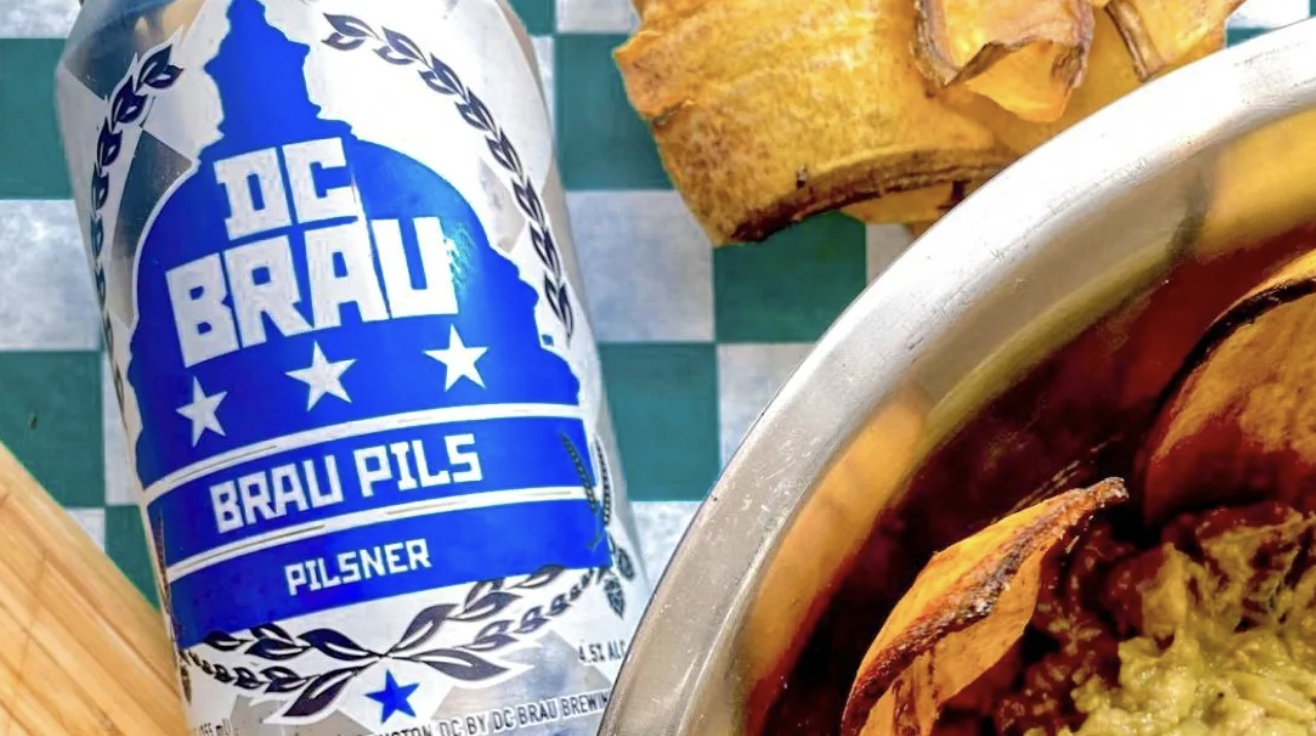
Photo Courtesy DC Brau
DC Brau: The oldest craft brewing in Washington, D.C., DC Brau is a local icon. Opening in April 2011 by Jeff Hancock and Brandon Skall, it became the first brewery in the city limits since 1956. Now boasting a formidable line of pale ales and lagers, DC Brau is focusing on becoming greener and uplifting the District workforce.
The brewing company replaced its facility lights with LED systems and worked with Greenscape Energy and DC Sustainable Energy Utility to save over $7,000 on energy. The grain used for brewing is donated to local farms for cattle feed, and cardboard and aluminum recycling programs were enacted.
As a D.C. Brewer’s Guild member, the company constantly looks for sustainable ways to expand the business, helping create 1,400 jobs in the D.C. beer industry. Hops and other brewing materials are sourced from around the surrounding area. The brewery has also donated to outreach groups like Smyal, Greater DC Diaper Bank, and Hill Center at Old Naval Hospital.
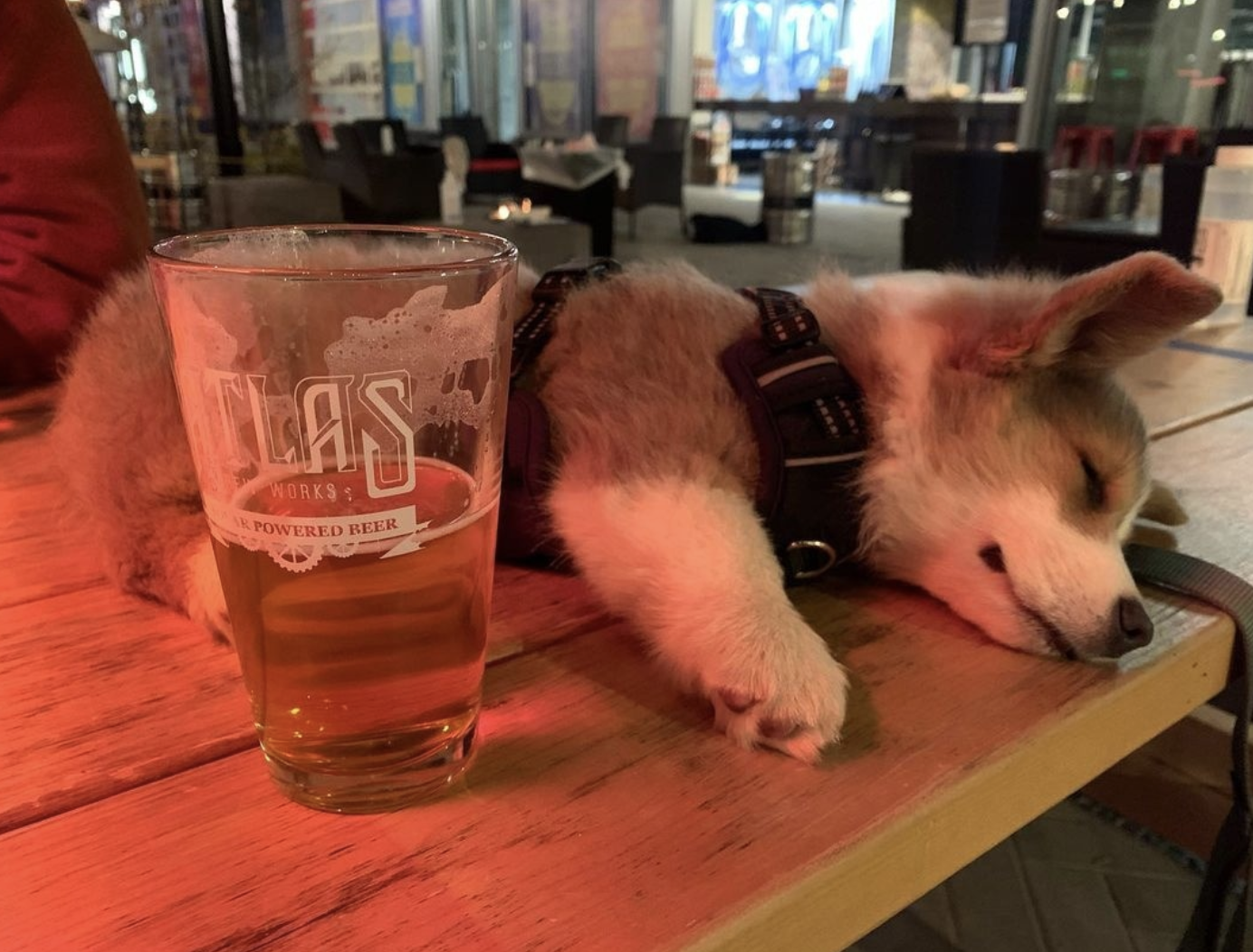
Photo Courtesy Atlas Brew Works
Atlas Brew Works: Atlas Brew Works opened its doors in 2013 when Justin Cox pedaled down West Virginia Ave. NE in Ivy City, just east of Capitol Hill. Cox had been brewing as a hobby but saw the potential of a new craft brewpub in the District. Through interactions with other brewing hobbyists, Cox learned more refined brewing practices.
Since then, Atlas has opened another storefront in Navy Yard, in the District’s Southeast area. The brewery made headlines when it installed solar panels in 2015, now powered by 100% sunlight. This effort was long before panels became mainstream, and it was the largest array in D.C. then.
Atlas also recaptures used water (hot and cold), conserving thermal energy and close to 930 gallons of water per brewing cycle. The company only distributes in cans, allowing more batches to be sent out and reducing emissions with fewer fossil fuels needed for shipping.
For ingredients, it has collaborated with MOM’s Organic Market to source misshapen produce for fruit-infused beverages. All grain from brewing is sent to cattle farms as feed.
These initiatives won Atlas the District Sustainability Award from the D.C. Department of Energy and Environment in 2016.
Delaware
Delaware has the honor of being home to Dogfish Head Brewery. As one of the most recognizable names in craft beer, the business has been giving back to the state for years. It sponsors some of the biggest charity events in Delaware. The company also keeps a pretty low carbon footprint.
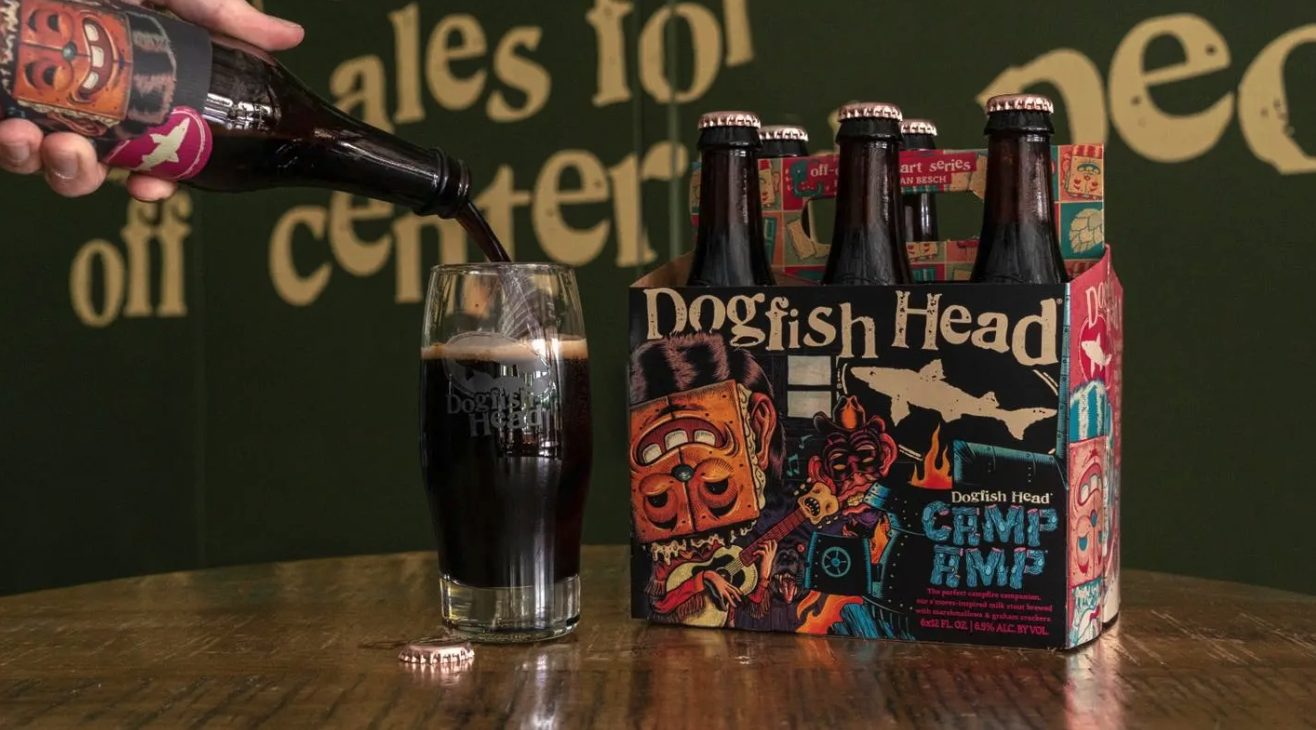
Photo Courtesy Dogfish Head Brewery
Dogfish Head Brewery: Dogfish started as an independent brewery in 1996. In 1999, it launched the iconic 90 Minute IPA and Midas Touch, bursting onto the scene. When Dogfish merged with Boston Beer Company in 2019, it benefitted both companies. Dogfish got a stronger commercial presence, while Boston Beer added to the growing repertoire of beers and malt drinks.
Dogfish’s Beer & Benevolence program also got a massive boost with the merger. The brewery has served the local community by participating in the Black is Beautiful project, supporting The Southern Delaware Alliance for Racial Justice.
Every year, Dogfish also hosts the annual Dogfish Dash, an 8K race that raises funds for the Nature Conservancy in Delaware. This race has been around for 15 years and has raised more than $1 million to date.
Founders Sam and Mariah Calagione have even gone so far as to produce a nature docuseries. They traveled up and down the East Coast for months, highlighting The Nature Conservancy’s work in every state from Maine to Florida.
The brewery also makes beers using sustainable brewing practices. Dogfish donates all spent grain to animal feed markets and diverts as much waste from landfills as possible. It also recycled recovered beer, installed carbon dioxide capture systems, and reduced water usage. Likewise, the Re-Gen-Ale and Epiphany Malt are made with wheat and malt grown on regenerative farms across the U.S.
Florida
The Sunshine State is the perfect place for sustainable craft breweries. The goal is to protect the state’s climate with its lush vegetation and sprawling wildlife. Three breweries are credited with doing just that.
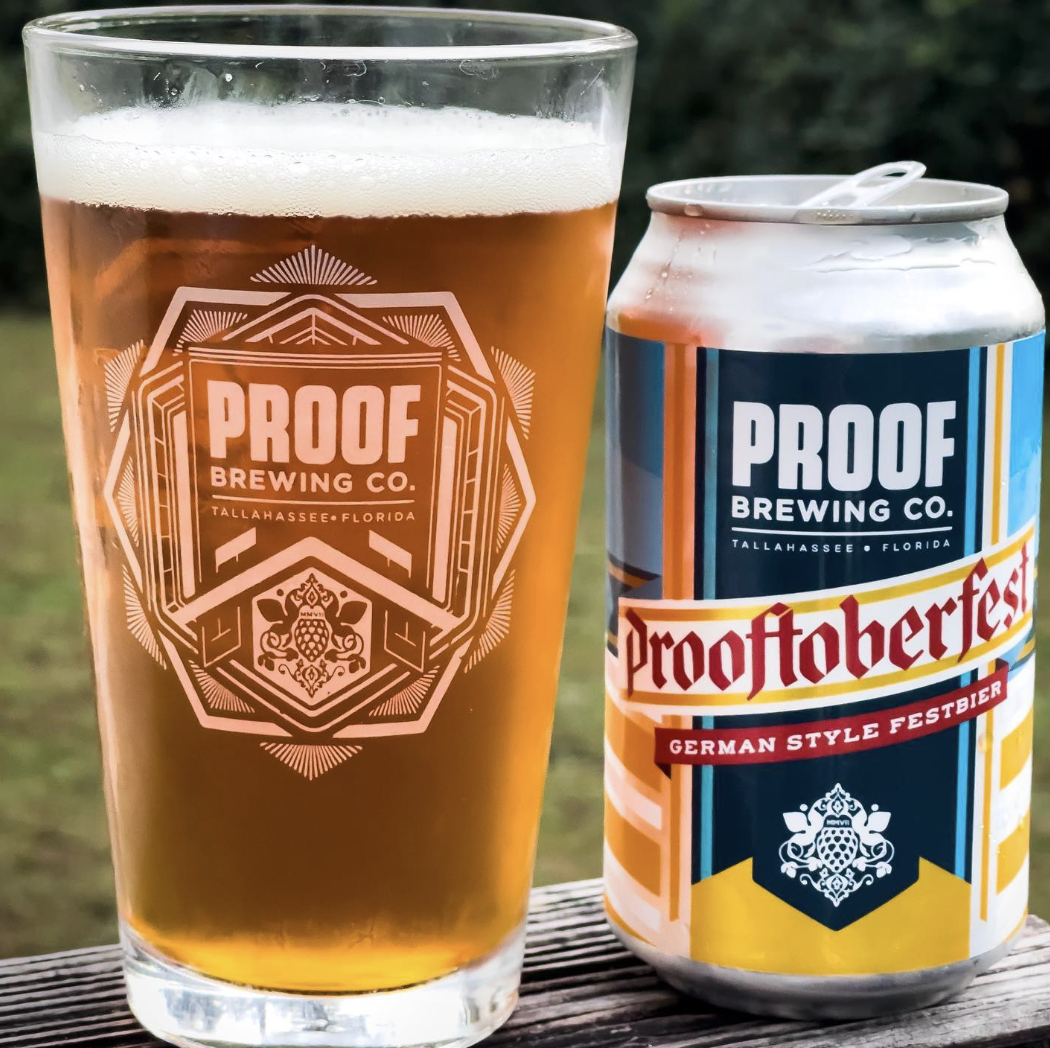
Photo Courtesy Proof Brewing Co.
Proof Brewing Co.: Byron and Angela Burroughs, owners of Proof Brewing in Tallahassee, FL, found a way to make sensational beers with a low carbon footprint. Proof has also partnered with Earthly Labs in Austin, TX, to install carbon dioxide (CO2) capture technology in its brewing facility.
The company’s CEO, Amy George, who hails from Florida, was very pleased to see a brewery in her home state implements sustainable practices. Not only does the technology reduce emissions, but it also makes beer taste better, filtering CO2 and ridding the gas of impurities.
In celebration of this monumental achievement, Proof Brewing launched a celebratory beer made with entirely captured and filtered gas. The Burroughs couldn’t be happier. They saved tens of thousands of dollars annually since they didn’t need to purchase outsourced CO2.
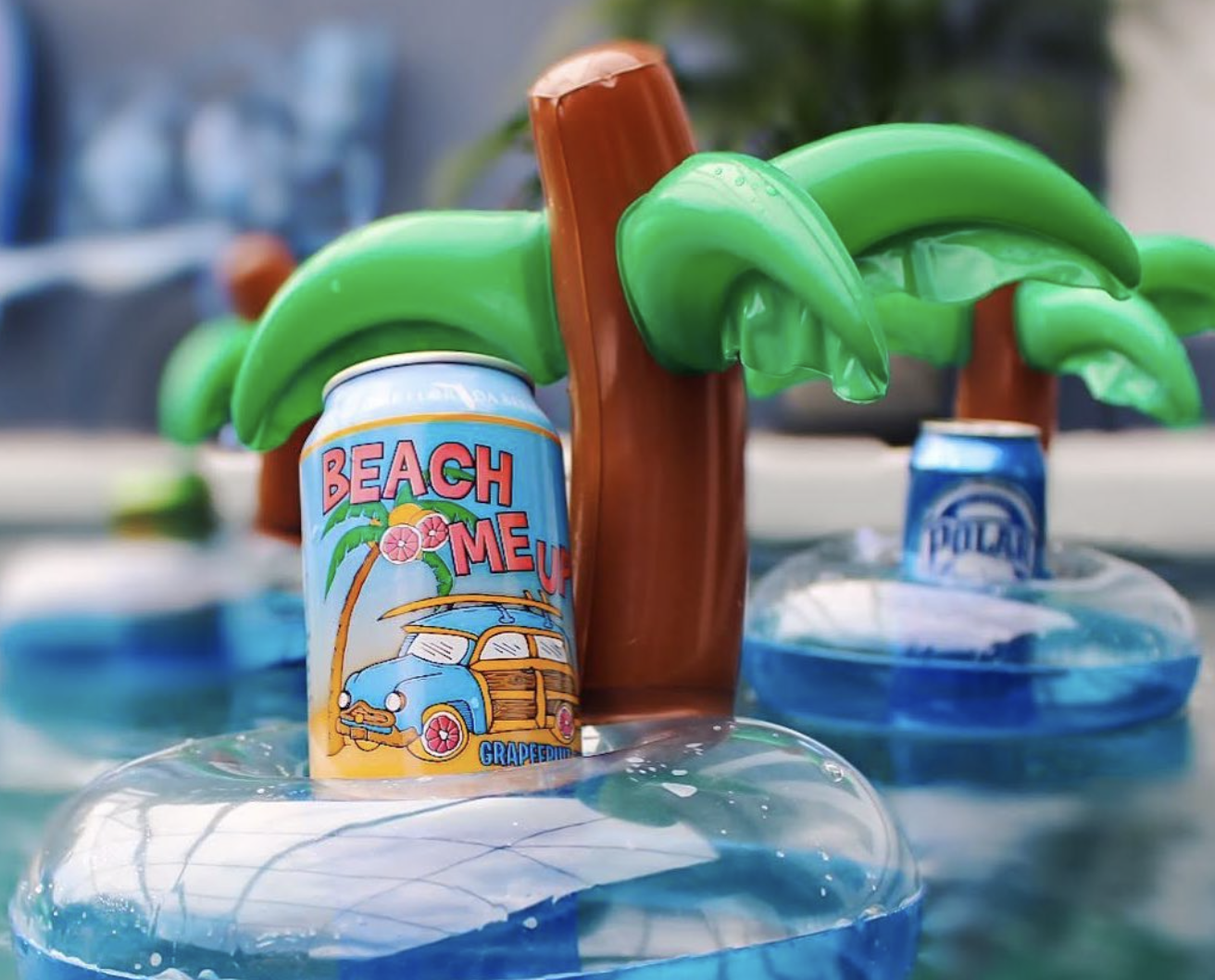
Photo Courtesy The Florida Brewery
The Florida Brewery: The Florida Brewery is the second-oldest brewery in Florida. As it moves toward sustainable business operations, one problem it has encountered is wastewater management. As water becomes less plentiful, new technology is enabling breweries to reuse wastewater for future batches.
The Florida Brewery’s deal with Cambrian Innovation in Massachusetts is aiding its mission toward total sustainability. Most breweries use seven barrels of water for every barrel of beer. It costs money to source more water, affecting the surrounding environment. So, Cambrian Innovation gave the brewery the tools to reuse 34 million gallons of wastewater yearly.
The BlueCycle MBR uses a membrane bioreactor to efficiently break down microorganisms in water. It’s part of a process called aerobic digestion, where free-floating oxygen is used in filtration. The filtered water is sent to a tank for various applications. Thanks to the system, about 99% of all contaminants are removed, saving The Florida Brewery a lot of money.
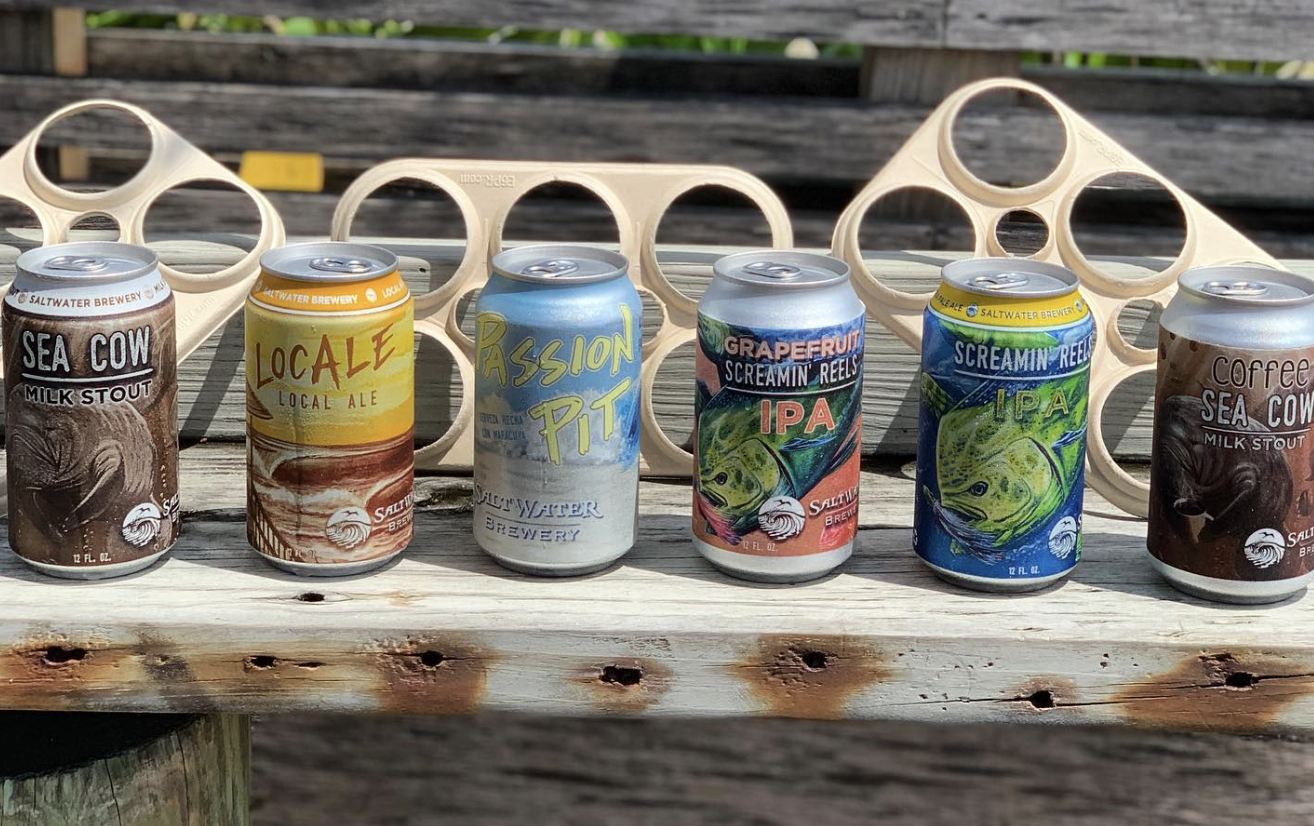
Photo Courtesy SaltWater Brewery
SaltWater Brewery: Nestled in sunny Delray Beach, FL, SaltWater Brewery has participated in numerous ocean conservation efforts since its founding. When founder Chris Gove started the microbrewery, he only wanted to focus on the beer. However, as time went on, Gove and his team built up relationships with local ocean protection agencies.
SaltWater would put a tap on their tasting floor dedicated to one of these organizations. The brewery worked with Coastal Conservation Association, Surfrider Foundation, Loggerhead MarineLife Center, and Gumbo Limbo. The business also sponsors beach clean-ups with these organizations.
The brewery’s packaging truly captured people’s attention — the novel edible six-pack beer rings.
Through a collaboration with New York ad agency WeBelievers and biodegradable material supplier Entelequia, it’s made with leftover barley and wheat from brewing. Designed to biodegrade, fish can eat the rings’ material if it ends up in the ocean.
Ideally, the packaging reduces marine plastic-related animal fatalities. SaltWater’s rings answer the questions of byproduct disposal and reducing plastic waste. Big-name breweries like Corona and Guinness have adopted the product for their six-packs.
Georgia
Georgians have to be feeling good lately. Back-to-back college football championships for the Dawgs, the Braves winning the 2021 World Series, and a rising number of sustainable breweries. There’s plenty of craft beer in the Peach State.
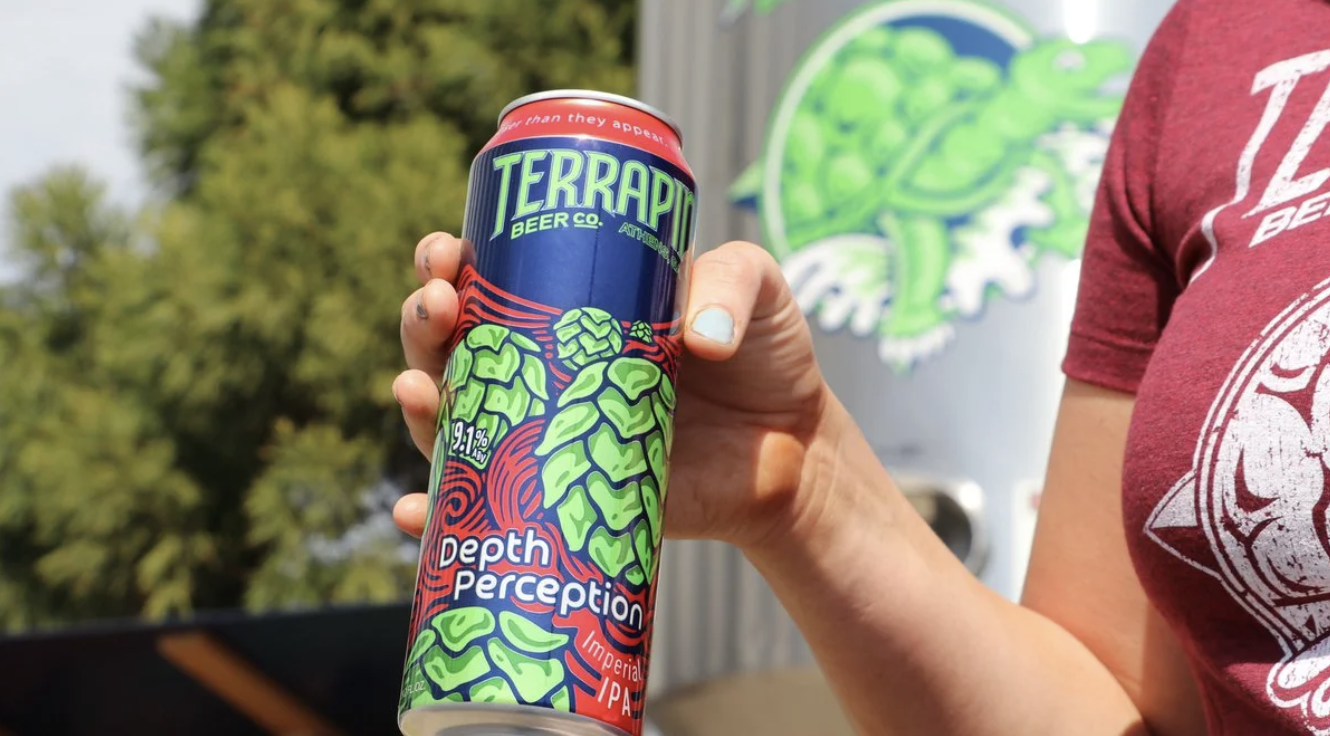
Photo Courtesy Terrapin Beer Co.
Terrapin Beer Co.: When Brian “Spike” Buckowski moved to Atlanta in 1992, he lost his love of work in the A/V industry. As an escape from the grind, Buckowski began homebrewing, just as a hobby. It soon evolved into his passion.
In 2002, Buckowski and his friend John Cochran decided to open Terrapin in Athens, GA, determined to make eclectic craft beer. The pair found conventional brews severely lacked in flavor.
At first, people doubted the beer would sell. That only motivated the pair further. Named after a turtle native to the southeast U.S., the Rye Pale Ale won first prize in the American Pale Ale category at the 2002 Great American Beer Festival. That put them on the map.
In 2023, Terrapin will be committed to ecological conservation. The company constantly looks for ways to reduce water and use renewable energy wherever possible. Sustainability has arguably made Terrapin more successful in the 2020s.
Hawaii
The Hawaiian Islands have always been a popular vacation destination. Having a brewery with sustainable business practices is one attraction to check out on your next trip to Maui. These breweries are helping to conserve the beauty of Hawaii.
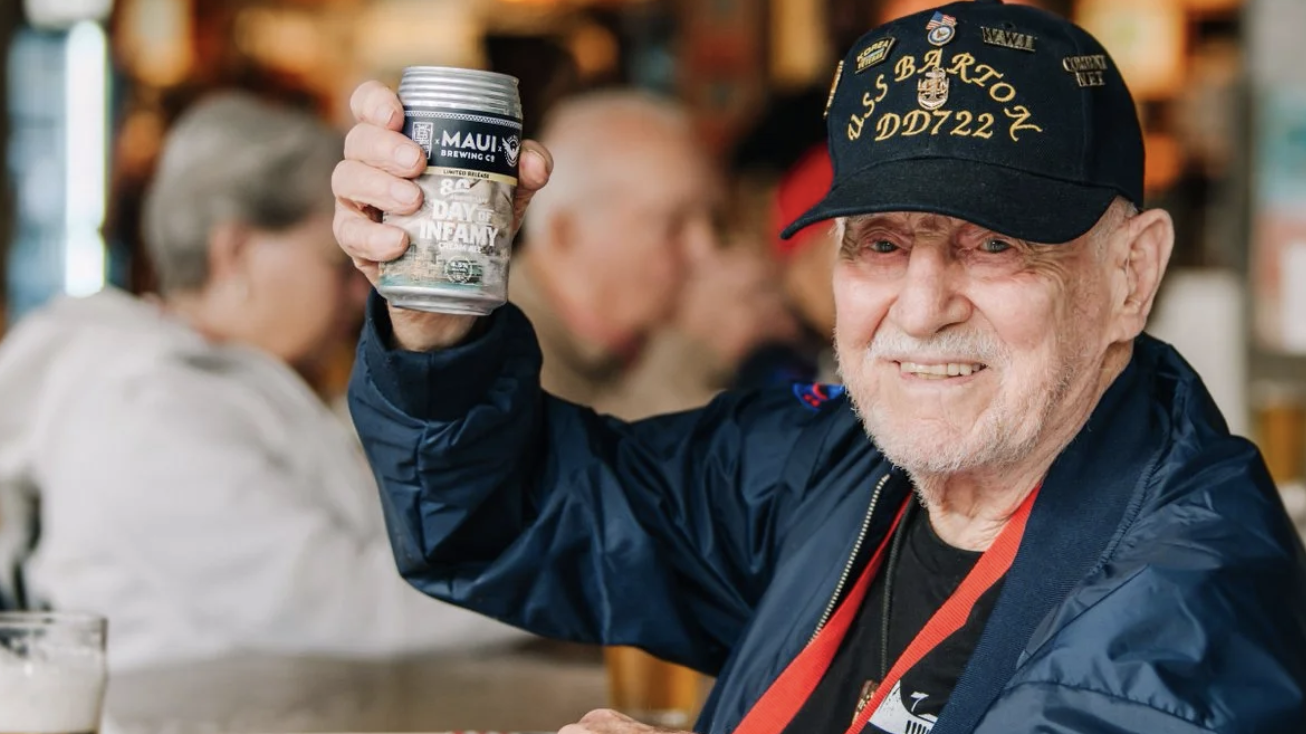
Photo Courtesy Maui Brewing Co.
Maui Brewing Co.: The largest brewery in Hawaii, Maui Brewing has set records for sustainable beer production. Since it opened in 2005, it has expanded at a substantial rate. By 2012, Maui Brewing’s popularity allowed them to move to a larger facility in Kihei, on the island’s southwest coast, before expanding to two more towns.
Co-founder Garrett Marrero has stressed the importance of protecting Hawaii’s beauty while creating a unique, locally-made beer.
The 85,000 sqft tasting room and production facility use a 1.2-megawatt solar array for renewable power. By 2019, solar energy comprised 80% of the Hawaii brewery’s energy needs. It’s independent of the grid and doesn’t rely on state power sources. It can survive a natural disaster as well.
All of Maui’s cans are recyclable. There is now a carbon capture program where they reuse carbon dioxide (CO2) from fermentation in other batches, saving money on supplemental CO2. There’s also a wastewater treatment plant in-house, with all brewing grain sent to hand-selected farms, especially those on the island.
Iowa
There’s a lot more than corn and cows occupying the fields of Iowa — well, in the state’s biggest cities. The craft beer spots in Iowa City and Waterloo are pretty unique.
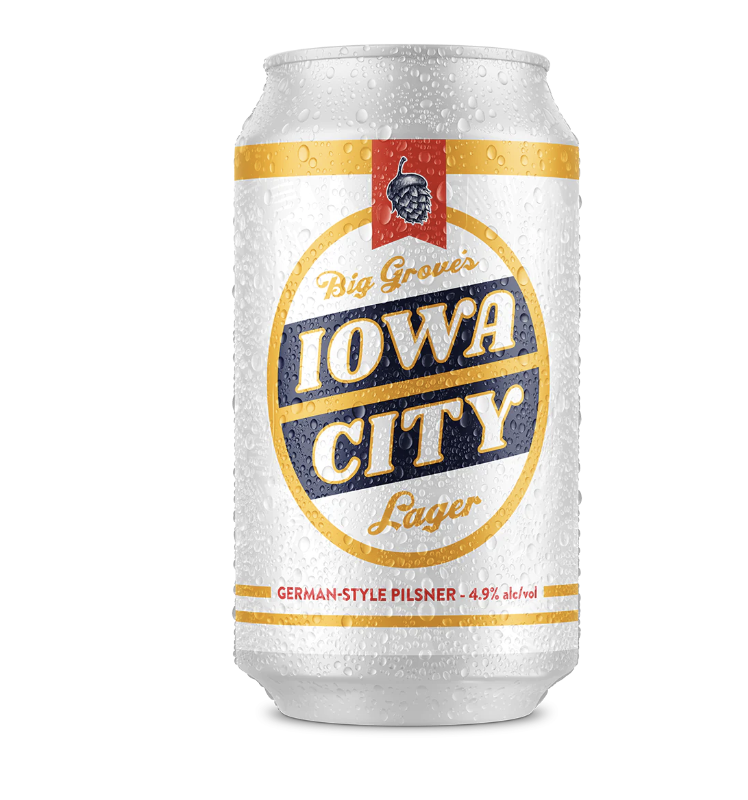
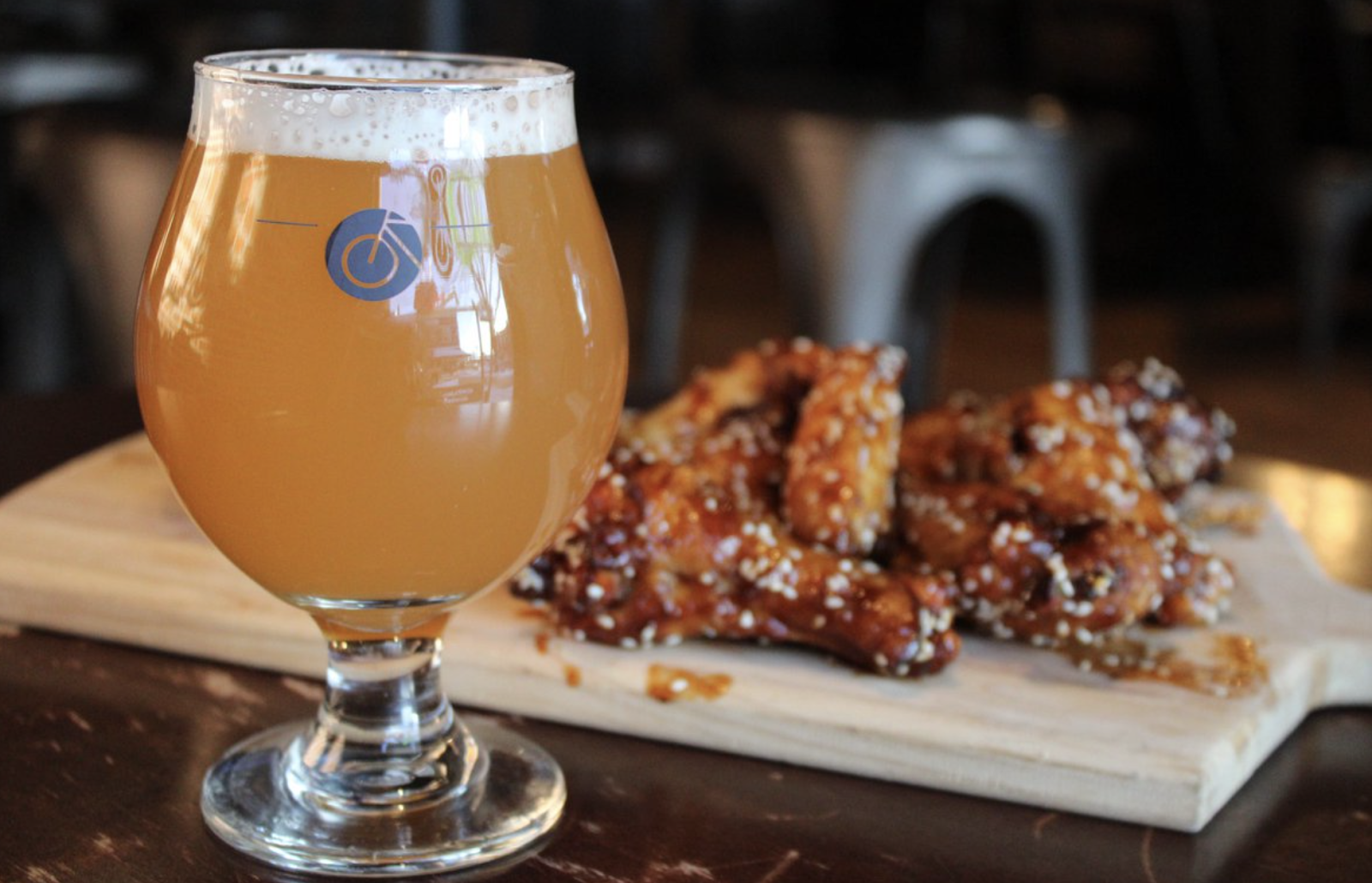
Photos Courtesy Big Grove Brewery/SingleSpeed Brewery
SingleSpeed Brewery and Big Grove Brewery: SingleSpeed Brewery is one of the most sustainable breweries in Iowa. The company moved into an abandoned Wonder Bread factory in Waterloo, IA, to save money on construction. The result was a Leadership in Energy and Environmental Design-certified facility.
Despite moving into an older building, owner Dave Morgan installed solar panels on the roof to meet energy demands. The brewery also has high-efficient LED lighting activated by motion sensors. Submeters use water more efficiently.
Sustainability is a common theme for Iowa’s beermakers. At Big Grove Brewery in Iowa City, similar practices are happening. They achieved platinum status under the Iowa Green Brewery Certification. This oversight committee awards each brewery based on energy efficiency, water quality, conservation, and sustainable materials. So far, 29 breweries have obtained this certification.
Along with being eco-conscious, SingleSpeed and Big Grove are giving back to their respective communities. They are working on building parks and nature reserves and promoting outdoor recreation. Big Grove even hosted a triathlon. These breweries are all about making sustainable choices while helping their communities flourish.
Idaho
Idaho is potato heaven, but spuds aren’t the only products coming out of this mountainous state. Beer is becoming a hot commodity, with some breweries recognizing the need to brew efficiently. Sustainability has become a trendy theme throughout the state’s beer scene.
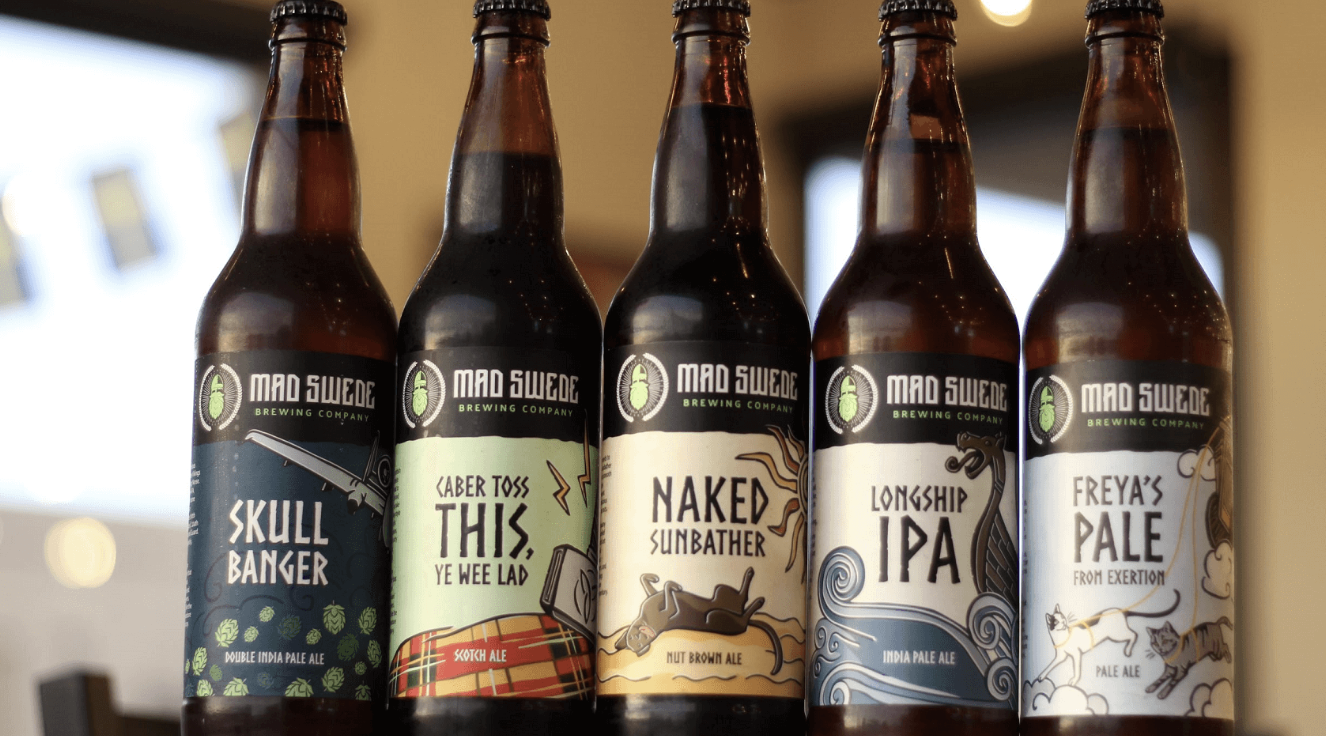
Photo Courtesy Mad Swede Brewing Co.
Mad Swede Brewing Co.: Mad Swede understands the value of water. The Boise, ID, brewery has enacted several water preservation practices. With beer brewing being a water-intensive practice, conserving it is imperative.
The heat exchanger has become more efficient as well. During the wort creation process, cold water is run through a plate to exchange the wort for the heated water. Instead of disposing of it, water is pumped back into the tank. It is then used for the next brew; reheating the water first saves energy.
In 2018, Mad Swede participated in “Pure Water Brew,” using purified wastewater. Owner Susie Larson said the water was so pure that minerals had to be added back in it to make it usable for brewing.
The wastewater came from Boise and was treated at a plant before it was pumped into Mad Swede’s tank. The resulting beer was a hazy IPA, but Larson thinks it would’ve made more sense to brew a clear beer, showing how pure the wastewater truly was.
Mad Swede is also very philanthropic. The brewery has run fundraisers for the World Center for Birds of Prey. The “Birds & Brew” event has helped save several species of raptors from extinction. The “Peregrine Pilsner” supported conservation efforts directed toward peregrine falcons.
Illinois
When we think of Illinois, Chicago comes to mind. There’s so much more to the Prairie State, though. Rural Illinois has some of the country’s youngest craft breweries, but their impact on sustainable brewing is unmatched.
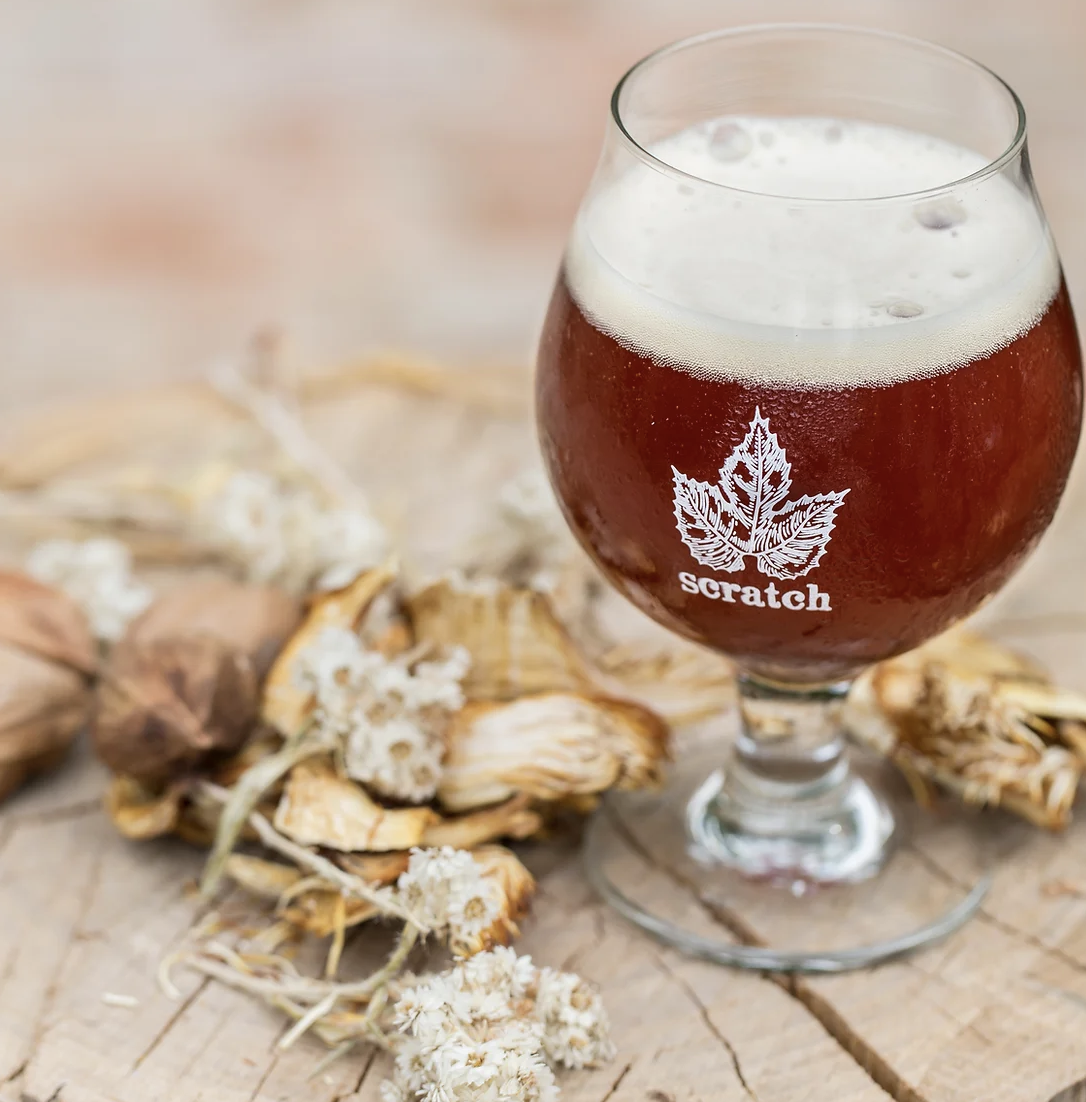
Photo Courtesy Scratch Brewing Co.
Scratch Brewing Co.: Established in Ava, IL, Scratch Brewing Co. has made a name for itself thanks to the publicity it received in 2019. At the Snallygaster beer festival in Washington, D.C, four of Scratch’s beers were submitted for tasting, with high praise sung by patrons and critics alike.
According to founder Aaron Kleidon, the essence of the beers is to capture the flavor of southern Illinois. He and his co-founders use ingredients like persimmons and hops sourced within Illinois and malt, sweet clover, hickory, white oak, and maple bark.
Bark in beer may sound offputting, but the flavors trapped inside make these beers pop. Not to mention, the wood they source is burned to heat the kettle. That’s the real secret of Scratch: all beers are brewed over a wood fire.
That’s not an easy feat, but Kleidon and the company are making it work. He hasn’t been shy about sharing his brewing techniques with the public. In 2016, he and Scratch’s co-founders wrote “The Homebrewer’s Almanac” to guide future homebrewers. The book teaches how to forage native plants for brewing. The brewery also was nominated for James Beard Award for Outstanding Wine, Spirits, or Beer Producer in 2020.
Indiana
Indiana has produced some amazing products throughout its modern history, such as IndyCar and Larry Bird. Now, it’s craft beer’s time to shine. Indiana has a modest yet lively brewery business sector and is on the cusp of great expansion.
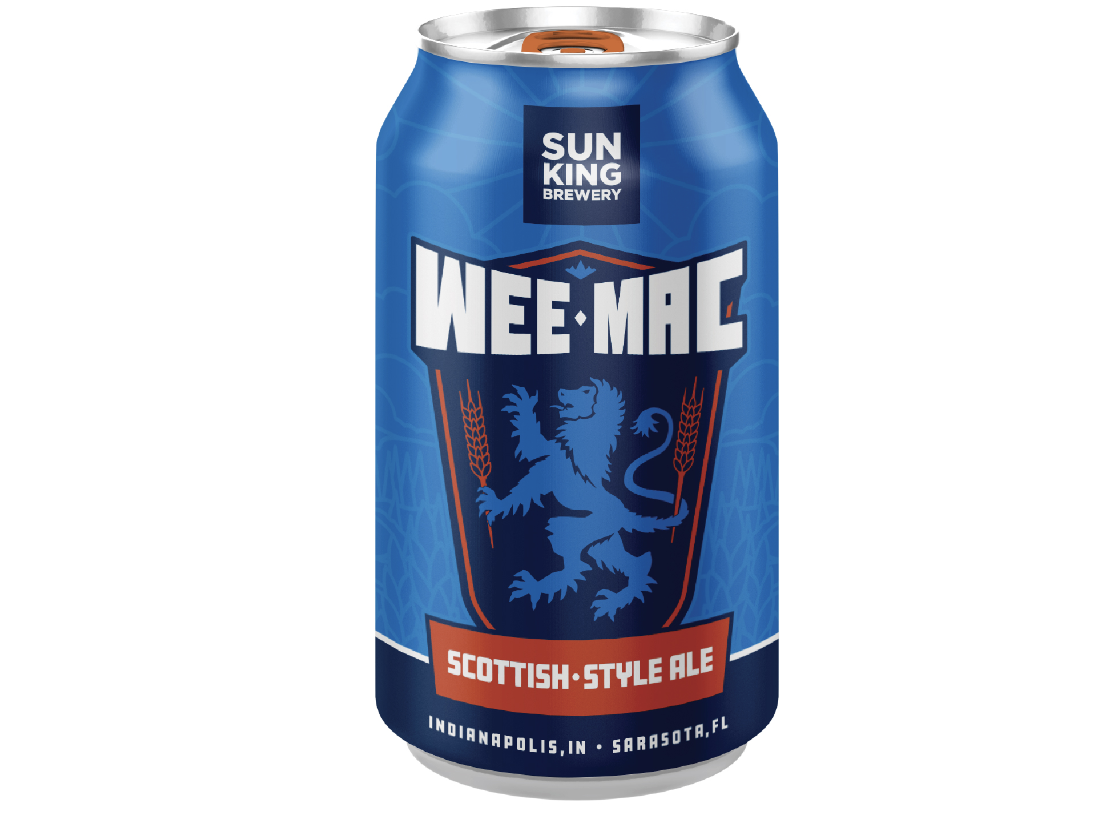
Photo Courtesy Sun King Brewing Co.
Sun King Brewing Co.: Sun King was founded in 2009 by Dave Colt and Clay Robinson in Indianapolis. This business is the first Indy-based brewery since 1948, becoming the second-largest one in Indiana.
Since it opened, sustainability has been a big part of the Sun King experience. It sends all its spent grain to local cattle farmers, package beer in cans, and use a new “Eco-Keg” that reduces the weight of each one by 30%.
It’s truly a team effort at Sun King. Staff is encouraged to contribute ideas to improve sustainable practices.
Some fun initiatives include adding an old soda vending machine, filling it with the brewery’s beers, and letting staff enjoy shift beers. A full-time chef works to feed everyone at Sun King. Any leftovers are eaten by Friday of every work week. All lunchroom trays, bowls, and silverware are reusable.
Robinson and Colt wanted to incorporate a welcoming, innovative, and fun environment. Sun King works with more than 500 Indy nonprofits and organizations for social outreach. One notable event is the annual Sausage Fest at St. Thomas Aquinas Catholic School, where they sold more than 100 kegs and raised $50,000 for the school. Sun King doesn’t hesitate to help its customer base in any way it can.
Kansas
Continuing down the Midwest prairies leads us to Kansas. With the rich history of the Kansas-Nebraska Act, it only makes sense that one of the most popular Kansas-based breweries is called Free State. Now, sustainability is the big focus for Wheat State beermakers.
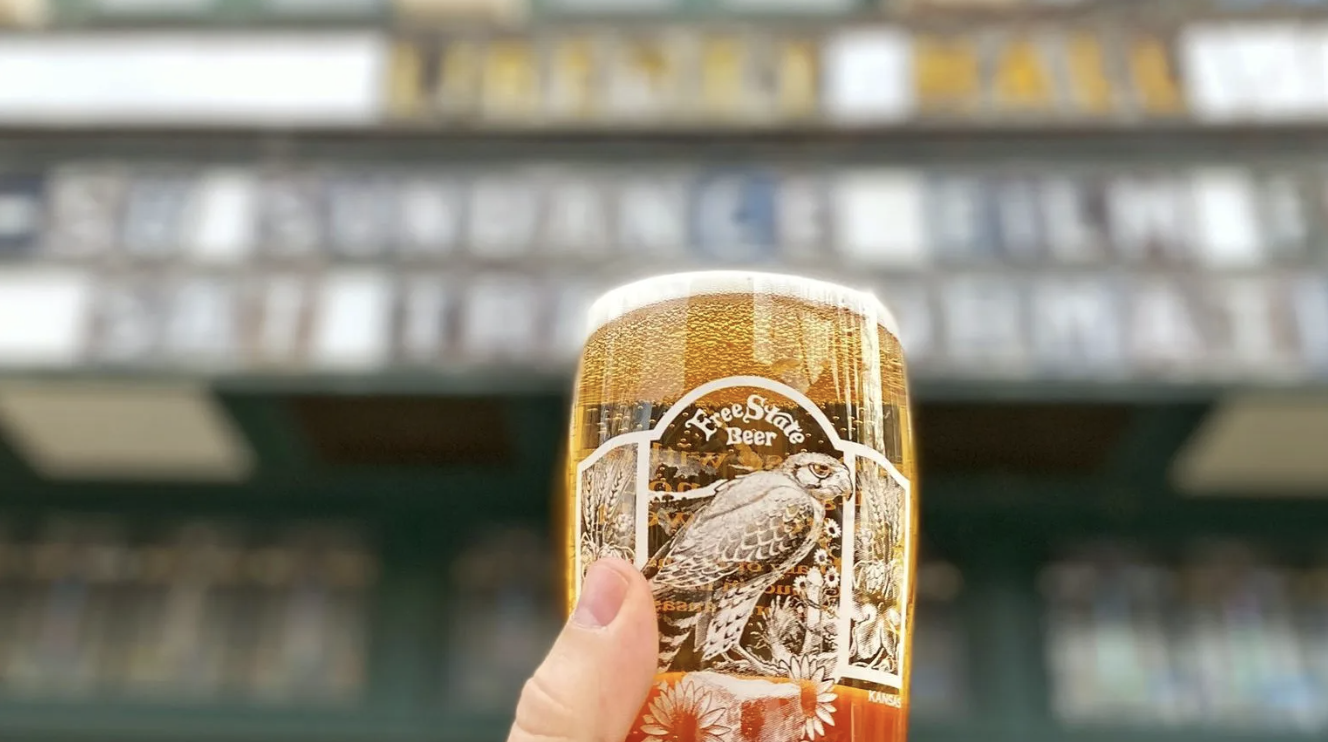
Photo Courtesy Free State Brewery
Free State Brewery: Free State did more than change precedence for sustainable beer; it reformed Kansas liquor laws. The brewery’s concept came from an article founder Chuck Magerl was writing at the University of California, Davis. He was covering the origins of beer in Kansas, his home state.
Magerl learned in the 1880s, Kansas passed prohibition laws that outlawed producing, distributing, and possessing alcohol. Even though breweries were a lifeline for some communities, they were outright banned. The regulations wouldn’t change for another century until Magerl lobbied local lawmakers to include craft breweries in a set of liquor reforms. That was in 1984; by 1989, Free State Brewery opened its doors.
The space the brewery took up was an open-door barn, once a trolley depot and a Union Pacific bus stop.
To save money, Magerl renovated the barn to accommodate more people using wood from vintage vinegar containers. For energy conservation, Free State purchases energy credits from renewable hydropower. Spent grain is donated to cattle farmers, while some of it is composted. All heat and water are captured for reuse, something the company has done for 20 years.
Kentucky
Breweries in the Bluegrass State try to capture the essence of lower Appalachia in each bottle. Kentucky’s breweries have donated to social causes while lowering their carbon footprint, making Lexington, KY, another beer enthusiast’s heaven.
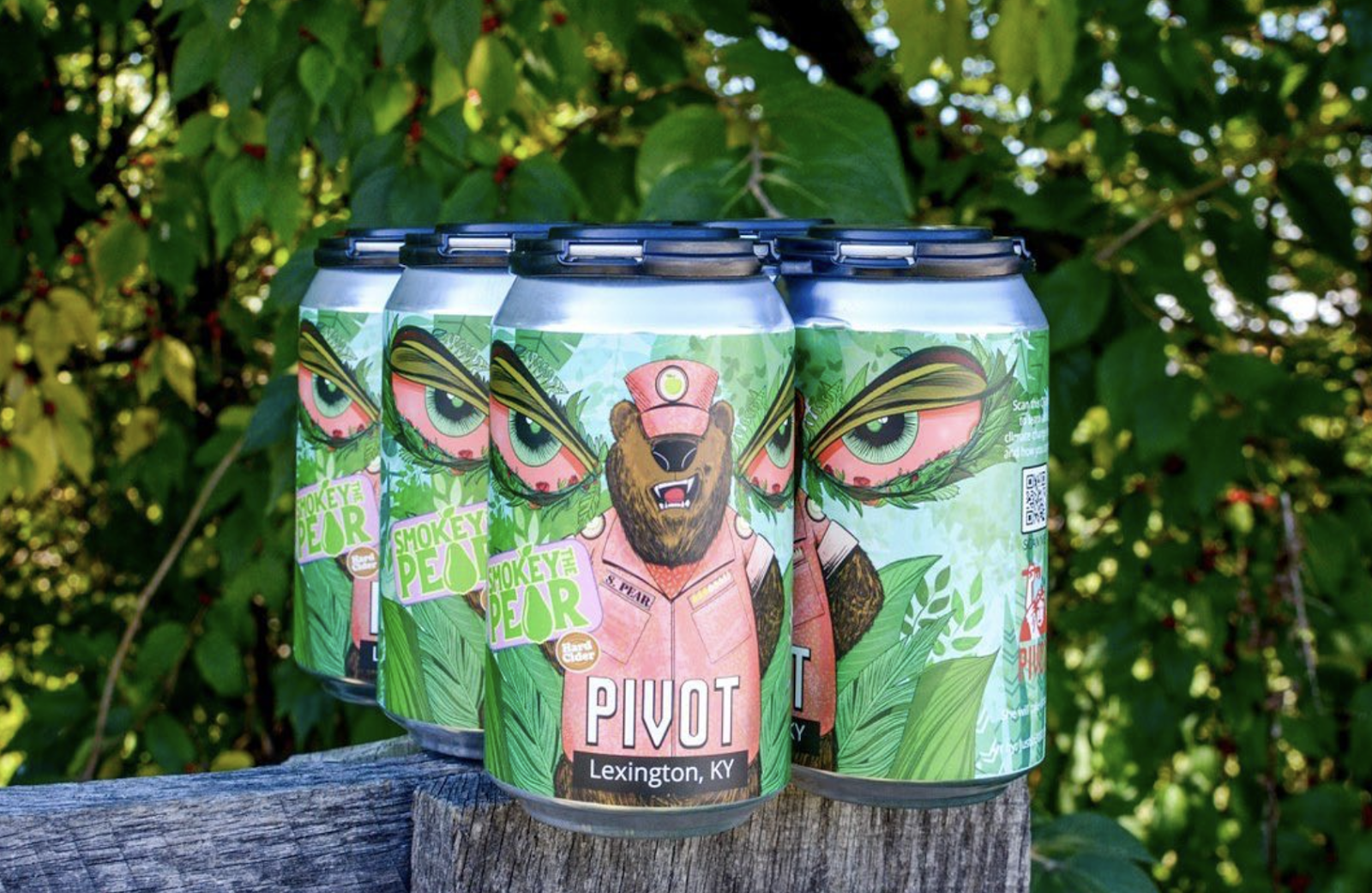
Photo Courtesy Pivot Brewing
Pivot Brewing: Pivot, based in Lexington, KY, is one of the many microbreweries on the “Brewgrass Trail.” It serves various beers and hard ciders in a refurbished, rustic facility. It’s not just the aesthetic appeal of Pivot that attracts customers or the eclectic beer line — It’s “Kentucky’s solar-powered brewery.”
The brewpub added solar panels in April 2020 to offset carbon emissions. It now supports 94% of the brewery’s energy needs. Owner Kevin Compton says he saves around $7,600 on annual energy costs. Emissions equivalent to 118,000 miles of driving are offset.
Compton has overseen Pivot’s step into a modern, socially-conscious beverage distributor. He cites his grandmother’s time as a Rosie the Riveter worker in World War II as how he got his fighting spirit and why he’s ready to give back to the communities that made him.
The company hosts events like yoga every Monday evening and sends holiday cards to prisoners through Christmas Cards for All. A toy drive with the Lexington fire department, outreach work with the Lexington Humane Society, and Operation: Secret Santa (a food and toy drive) are other charitable causes Pivot supports.
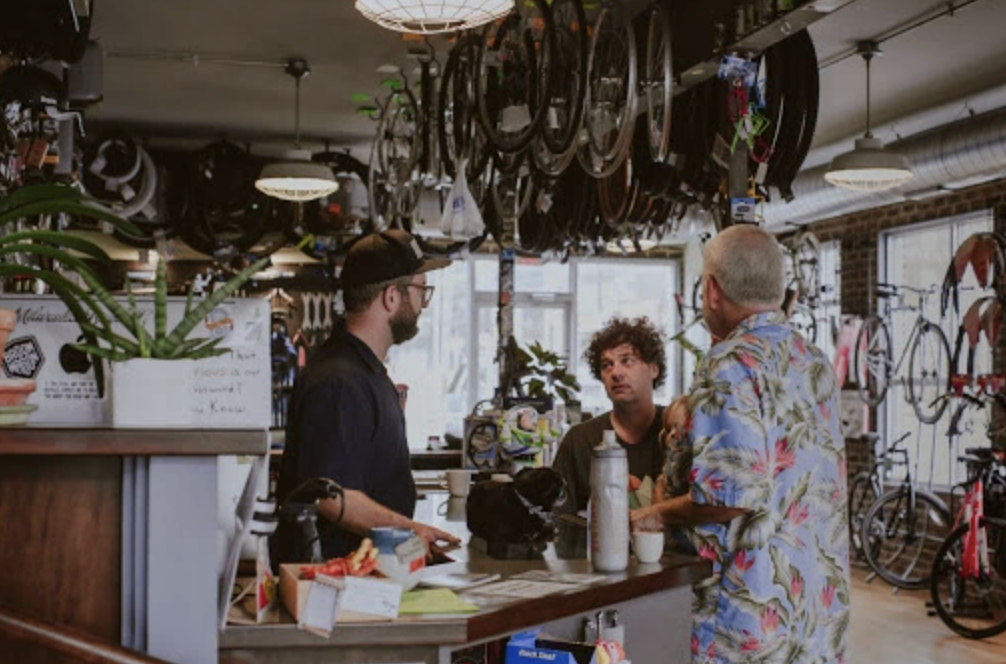
Photo Courtesy Broomwagon
Broomwagon: One part bike shop, one part cafe, and one part watering hole, Broomwagon in Lexington, KY, is one of the most interesting spaces you can step foot in. Named after the chase bike on the Tour de France cycling race, people pop into the shop, get their bike fixed, grab some food, coffee, or a beer, and be on their way in moments.
Founder Adam Drye says Broomwagon is the ideal setting for seasoned cyclists and those looking to get into the sport. During the winter, cycle traffic is slow, so the cafe and bar generate some foot traffic. The storefront is rustic, with exposed brick and lots of natural light.
Broomwagon takes pride in being a social spot for the Lexington community and gives back in numerous ways. The shop manages a stolen bike registry.
It also participates in Cranksgiving, a Thanksgiving food drive where people bike to grocery stores and deliver food to local charities. There’s a Community Sponsored Agriculture drop-off site where community members can pick up local produce weekly.
The business operates sustainably, using LED lights and water-efficient utilities. Rainwater is collected and used to grow vegetables, and recycled wood is used for the shelving inside. Tires, scrap metal, and other bike-related items are recycled. Broowagon is also a Live Green Lexington spot, where people can drop off plastic bags and broken Christmas lights for students to use in environmental competitions.
Louisiana
Down on the bayou, beer reigns supreme. You’d be surprised to see fishermen drinking anything outside Budweiser or Busch Light. But the Louisiana craft beer business is on the rise, helping multiple charities during the COVID-19 pandemic.
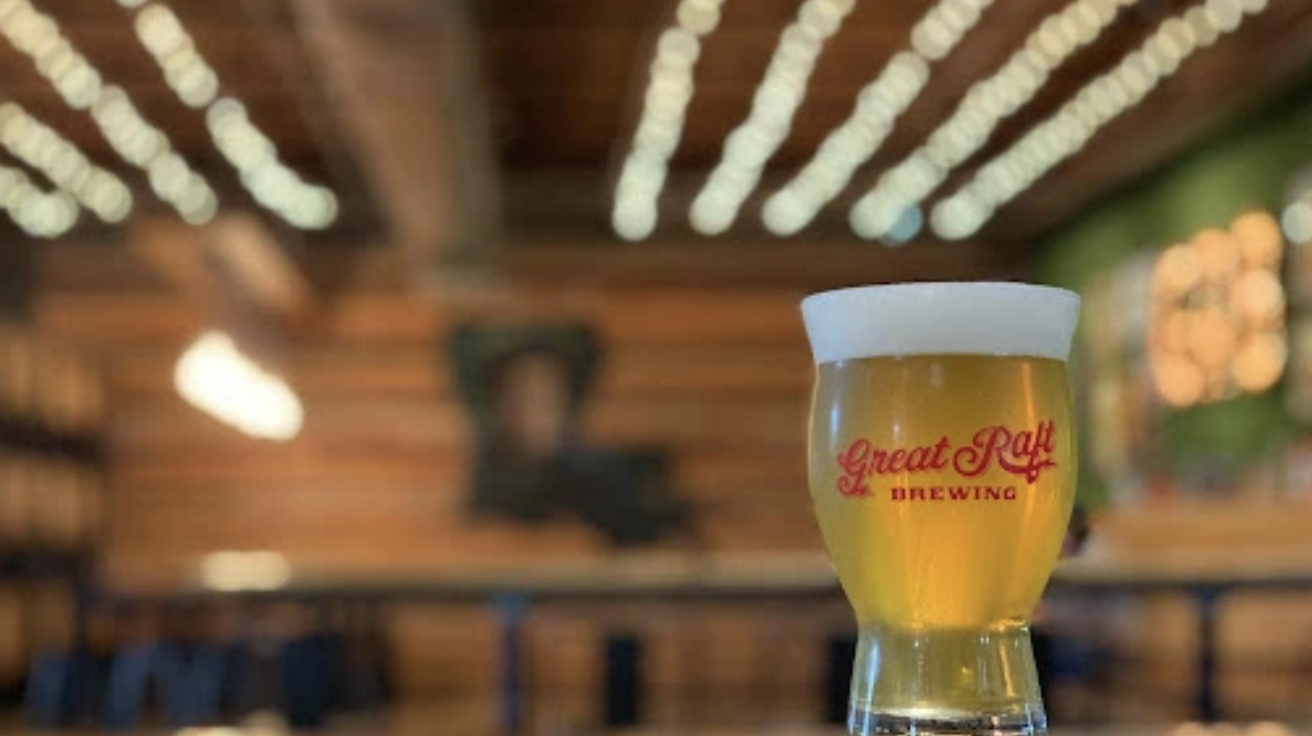
Photo Courtesy Great Raft Brewing
Great Raft Brewing: Shreveport, LA, is home to Great Raft Brewing. Opened in 2013 by Andrew and Lindsey Nations, the brewery has been heavily involved in community activism. It supports cyclists, the Humane Society, COVID-19 pandemic relief, and equality in the brewing industry.
Employees at Great Raft are avid cyclists, so it was an easy decision to assist cycling groups around town. The League of American Cyclists even recognized the brewery as a Bike Friendly Business. Since the Nations are also dog people, the business supports the Shreveport Humane Society through donations. Spent grain is used to make dog treats; all proceeds benefit Society.
Great Raft raised $60,000 for affected individuals, health care workers, and nearby medical schools during the pandemic. It also created a beer called “Each & Every,” whose proceeds are directed to the Michael James Jackson Foundation for Brewing and Distilling. Scholarships are provided to people of color through the foundation. The Nations continue to find ways to give back to the Shreveport community.
Massachusetts
“Your cousin from Boston” is a favorite Sam Adams ad campaign — my uncle is from Quincey, MA, would agree. Massachusetts beer makers like Boston Beer Company have done much for the state, especially supplying financial assistance to small businesses.
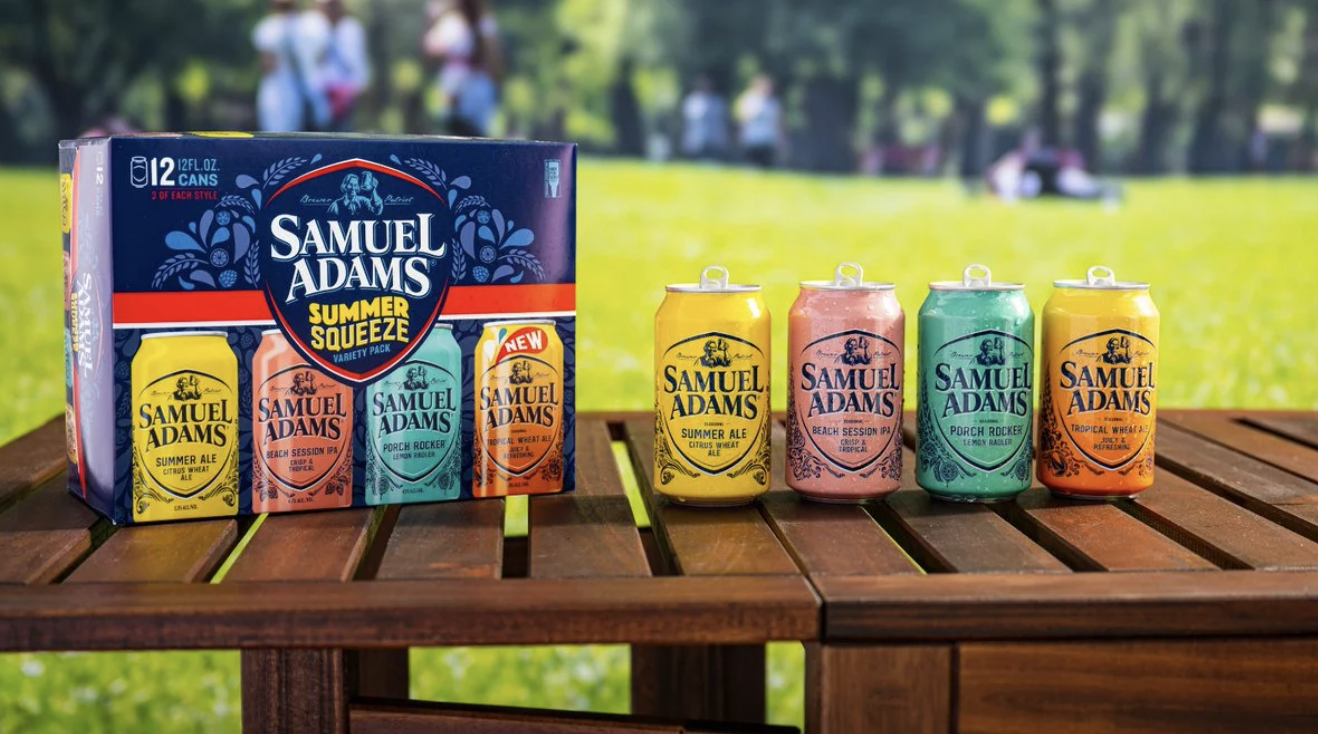
Photo Courtesy Samuel Adams Beer
Boston Beer Company: Makers of popular beverages like Sam Adams beer, Truly Hard Seltzers, Twisted Tea, and Dogfish ales, Boston Beer Company is a modern, multi-state brewing company. Opened in 1984 by Jim Koch, Boston Beer has found ways to keep its carbon footprint and waste rate low.
Its recycling program includes recycling expired Sam Adams beers to use materials in the beer solution for future batches.
All wooden pallets are refurbished for stacking boxes, plastic wrap, and packaging materials. Carbon dioxide capture systems cut emissions, being reused for carbonation. Leftover grain and yeast are donated to dairy farmers for feed and fertilizer.
Since Boston Beer works out of 100-year-old facilities at its Boston and Pennsylvania locations, they had to find ways to make them more sustainable. Foam insulation was added to beer-aging cellars to avoid using more electricity for heating and cooling. Motion-sensor lights keep electricity consumption low. All transportation hubs at the brewery have “no-idle” rules, and rail systems are the preferred method of transportation.
For philanthropy, Boston Beer has run the Brewing the American Dream program since 2008. The company assists small businesses with loans to help with operating costs. The 2021 report says it helped 13,000 businesses and created 9,000 jobs, boasting a 95% loan repayment rate.
Maryland
In the burgeoning beer scene in the District, Maryland, and Virginia (DMV) area, Maryland is home to great sustainable breweries. Customers are coming far and wide to taste these craft beers. Most of these businesses are focused on propping up what makes the state unique, with a spotlight on charitable efforts.
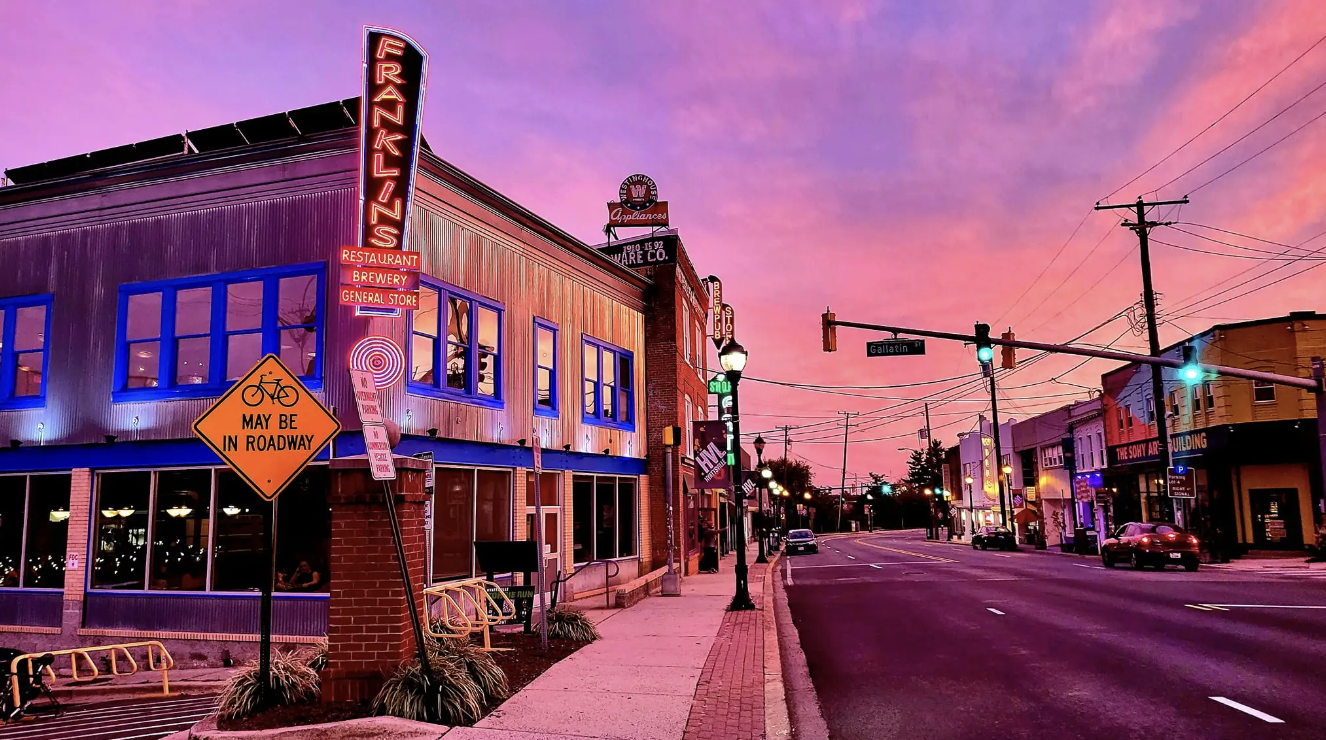
Photo Courtesy Franklins Restaurant, Brewery, and General Store
Franklins Brewery, Restaurant, and General Store: The Hyattsville, MD, brewpub began as a deli before converting into a full-time brewery in 2002. Owners Mike and Debra Franklin have revitalized a section of Route 1 that was hit hard economically. They now make 18 different beers and a line of craft root beer.
Franklins only uses Maryland-based ingredients in its brewing policy. Most of the food served in their restaurant also comes from the state. The general store sells made-in-Maryland products, like gin and rum.
The business puts just as much effort into sustainability as it does supporting the community. All the spent grain from the brewing process goes to cattle farmers.
Solar panels line the roof with renewable energy, and boxes are recycled to keep them out of landfills.
For community nurturing, Franklins works with Hyattsville Community Arts Alliance to support local artists. The brewery has a deal with the Anacostia Watershed Society to fund river conservation efforts. The biggest branch of their charity work is Franklins Fundraisers, which includes campaigns with Hyattsville nonprofits and schools to help fund activist movements.
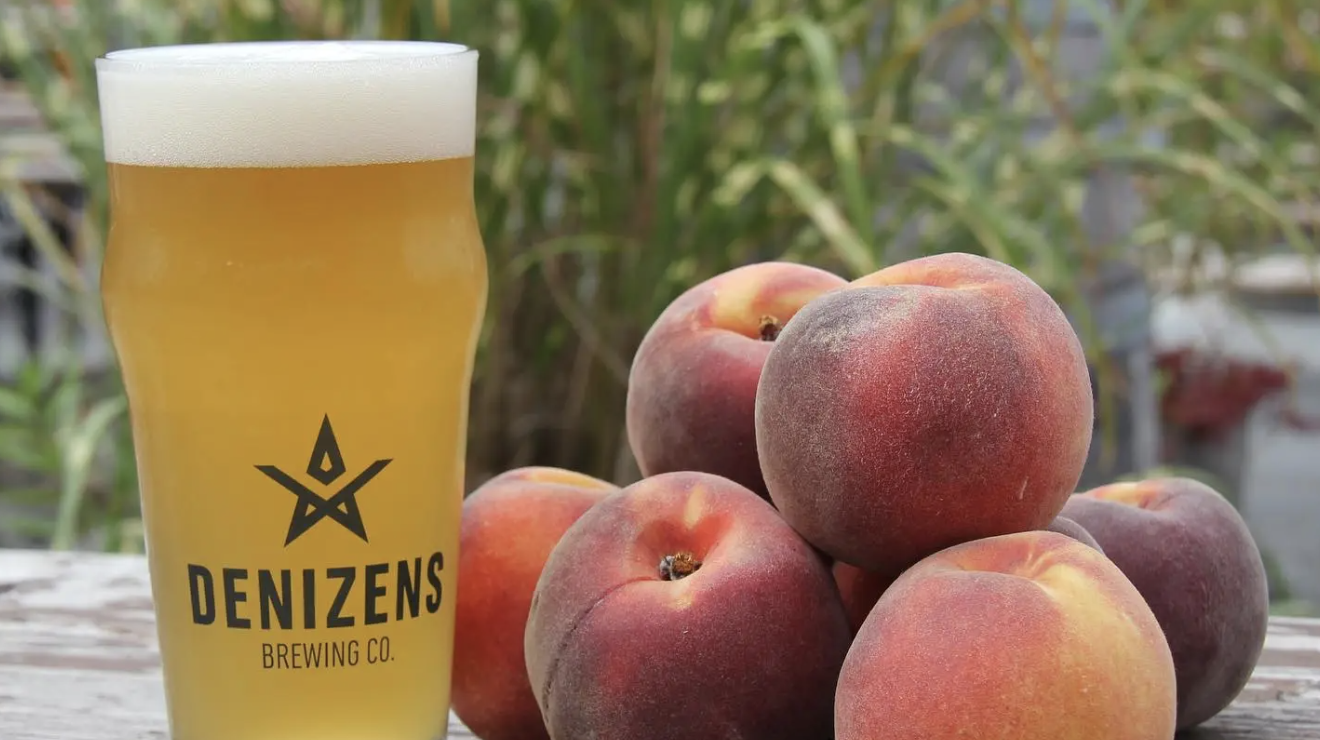
Photo Courtesy Denizens Brewing Co.
Denizens Brewing Co.: Denizens opened in Silver Springs, MD, in 2014. In just eight years, the brewery won a gold medal at the 2022 World Beer Cup for their exotic Bretty beer. Owner and operators Emily Bruno, Julie Verratti, and Jeff Ramirez have the aim to impact the Silver Springs and Montgomery County economies.
Denizens live by the philosophy of buying and using local ingredients. Everything from malt to hops comes from Maryland.
It wasn’t easy to open the brewery, though. Verratti used her background in public advocacy to lobby to allow craft breweries to open, citing tax revenue and employment opportunities. They managed to reform some Prohibition-era liquor laws.
Since then, Denizens has expanded operations. The owners opened a second location in Riverdale Park in 2019, and the business produces 15,000 barrels of beer annually. Some eco-friendly initiatives include grain donations, using spent grain for bread, and LED lighting.
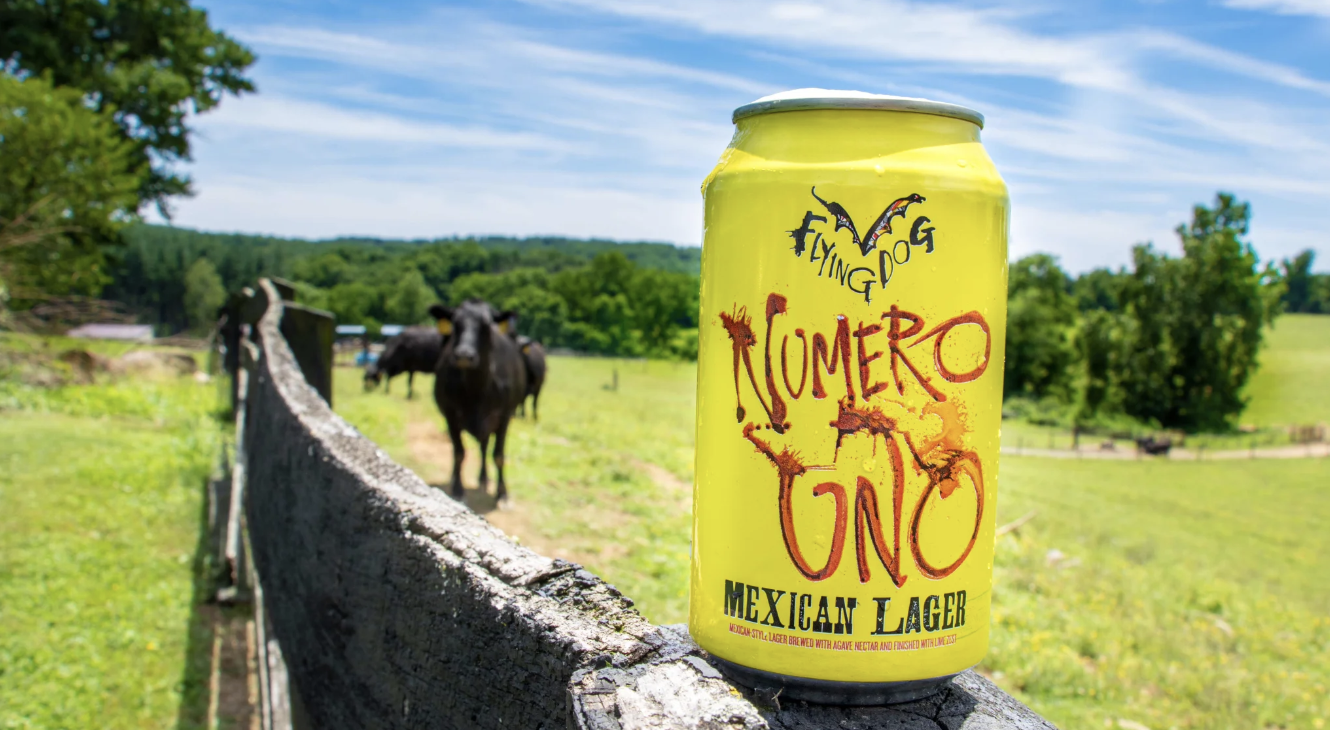
Photo Courtesy Flying Dog Brewery
Flying Dog Brewery: Flying Dog has never been afraid to be outspoken. The brewpub began in 1990 under the eye of physicist George Stranahan and his business partner, Richard McIntyre. The first location was in Colorado before it relocated to Frederick, MD.
Flying Dog’s reputation got a huge boost when journalist Hunter S. Thompson endorsed the business. Thompson urged Stranahan to hire British illustrator Ralph Steadman to design their iconic beer labels. Flying Dog has been vocal about artistic expression and freedom of speech.
The brewery’s sustainable initiatives started in 2012. A survey by George Washington University focused on reducing energy costs, switching to renewables, and buying local ingredients. In 2015, a deal with the University of Maryland provided Flying Dog with locally-grown hops, as good as the ones from the Pacific Northwest.
The business also looks to impact its community. The biggest campaign was in the Oyster Recovery Partnership, where proceeds of Pearl Necklace Oyster Stout beer were donated to oyster replanting efforts in the Chesapeake Bay. They have been doing this for 10 years. In addition, Flying Dog runs the True Blue campaign, ensuring Maryland crab comes from the Bay itself. It supports local fishermen, along with the Dead Rise Old Bay Summer Ale.
Maine
Way up in the coldest part of the East Coast, various noteworthy Maine-based breweries are thriving. The most famous, Allagash, is a big player in craft beverages, and you’ll find its beer at most stores nationwide. These businesses implemented many sustainable practices to keep the natural charm of the state pure.
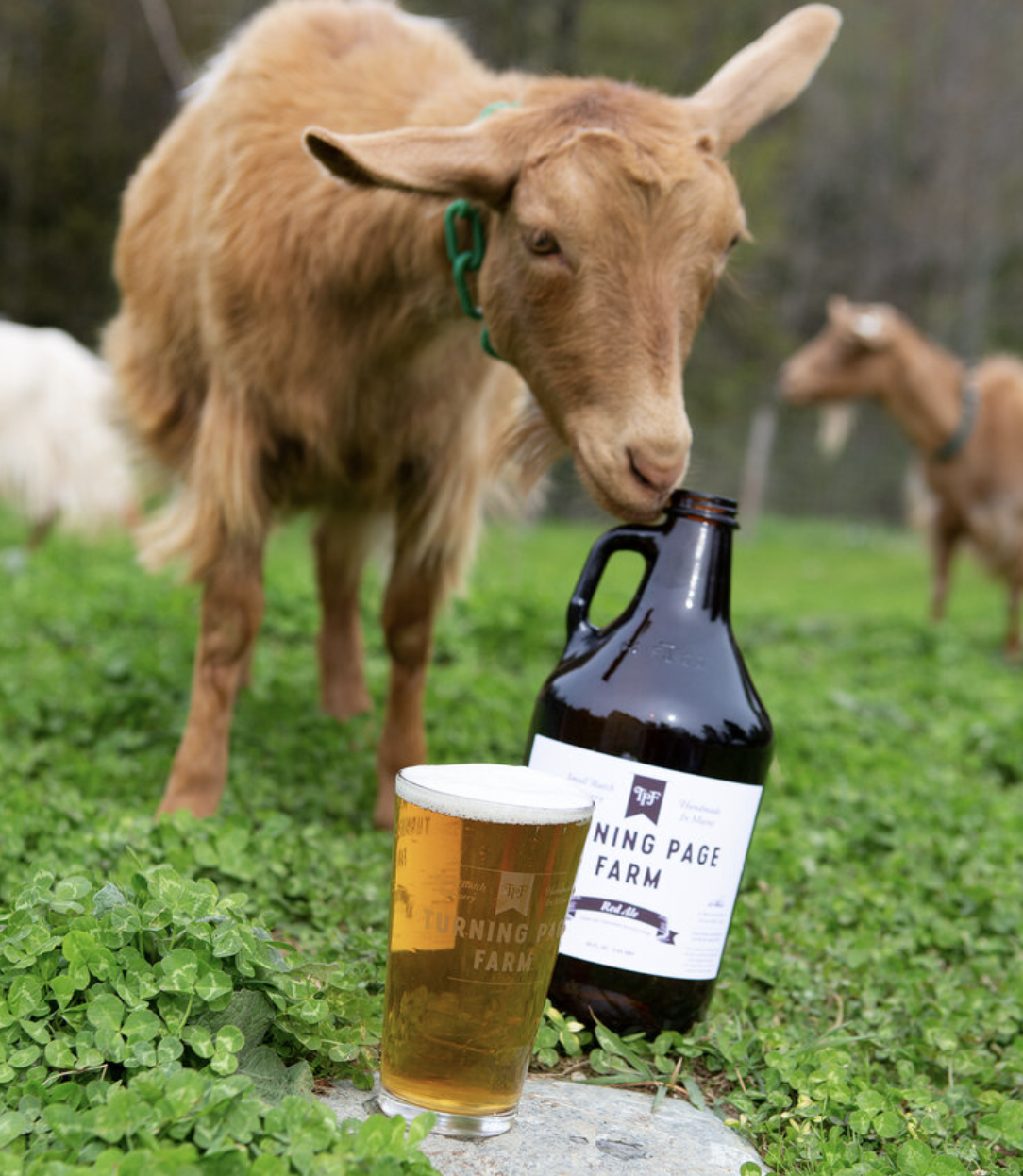
Photo Courtesy Turning Page Farm Brewery
Turning Page Farm Brewery: Monson, ME, is home to Turning Page Farm Brewery. Started by Tim and Joy Bueschen, the couple traveled the world to find the best brewing methods and recipes. They built up a small business based on sustainable agriculture and beer.
The old farm they repurposed is now home to goats customers can drink near. The business is run by solar energy, with a 13-kilowatt array on two farm sheds.
Heat comes from thermal channels in a year-round greenhouse that keeps plants and people warm equally. Pumps bring heat more than 700 feet in the ground to use geothermal heat rather than gas or oil. All the grain from brewing is used as pig feed.
Based in a town of just 700 people, the company lives by the “Small Town, Small Batch” mantra. It also makes cheese sold across Main, and all the beer is sold on the farm. The Bueschens wanted to create a space for rural Mainers to gather for a day of good beer and goats.
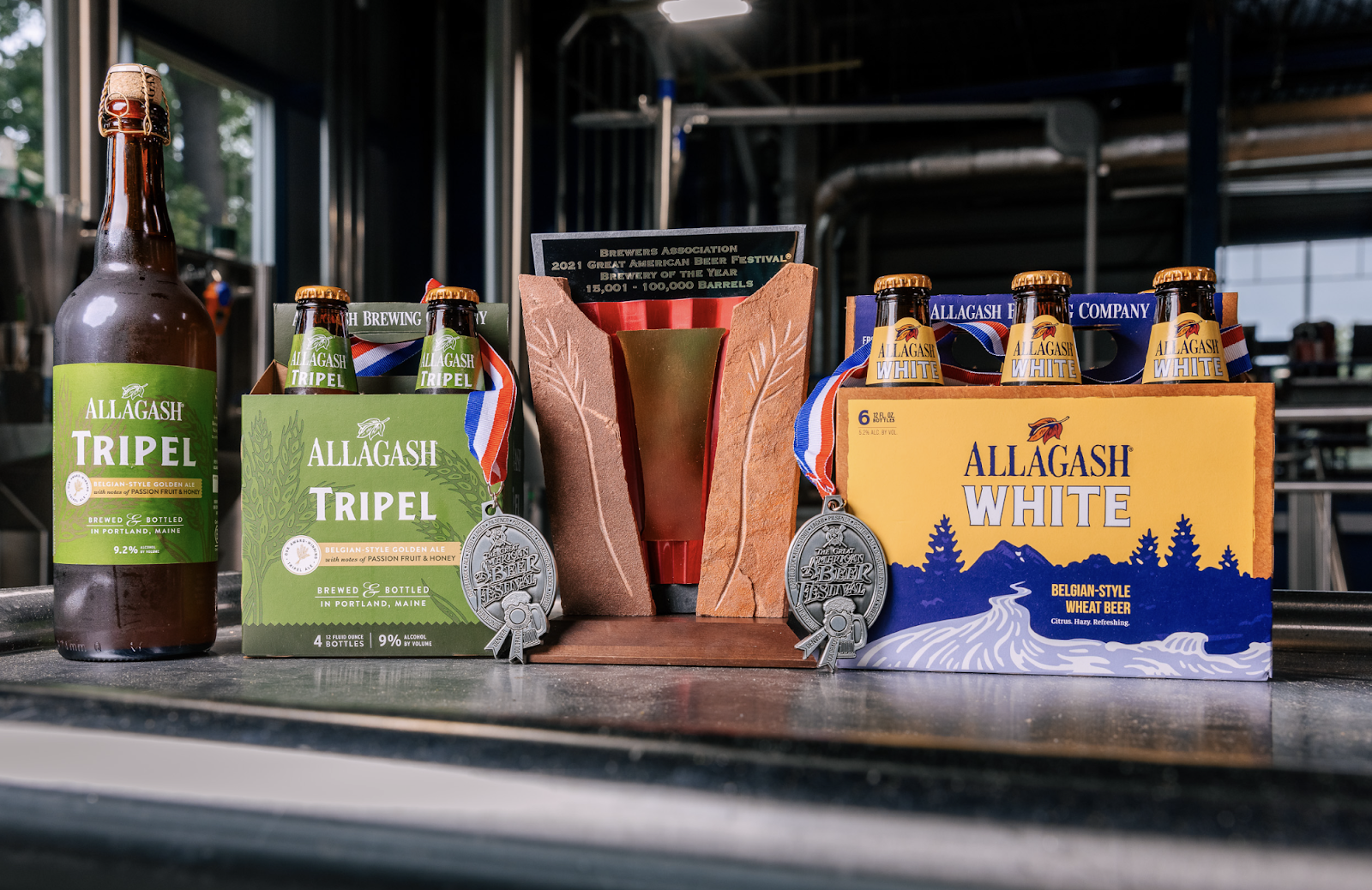
Photo Courtesy Allagash Brewing Co.
Allagash Brewing Co.: Allagash is a household name in the U.S. Twenty-seven years of brewing have established it as one of the most notable breweries in the country. Started in 1995 by Rob Tod, Allagash took up an old warehouse, welded together a 15-barrel brewing system, installed drains into the floor, and the story began. In 2019, Tod even won the James Beard Award as an Outstanding Wine, Beer, or Spirits professional.
In the last 25 years, the brewery has become increasingly sustainable. It has one of the best recycling programs. Allagash’s Green Team turns the taproom into a recycling hub where customers can bring any beer-related recyclables and get holes in their digital punch cards. Six punches equal a 20% discount.
With programs like these, Allagash has diverted 99.8% of its waste. The Allagash Recycling Co-Op is doing good work to keep trash to a minimum, and brewmaster Jason Perkins says the collective action is super effective. Grain bags, pallet wraps, and metal cages are items Allagash collects for industrial recycling.
Beyond the Green Team and recycling, Allagash donates 10 cents for every barrel brewed to Sebago Clean Waters, raising $10,000 for the group in 2019. Tod is committed to using Maine-grown grain per year to stimulate the state economy and donates 1% of sales to local charities, like Luke’s Lobster Keeper Fund. One dollar goes to the fund for every Allagash White ale sold at Luke’s Lobster locations.
Minnesota
Surly Brewing is putting the Twin Cities’ beer sector on the map. The brewery is known for its extensive philanthropic efforts, supporting local food drives to fight hunger and homelessness.
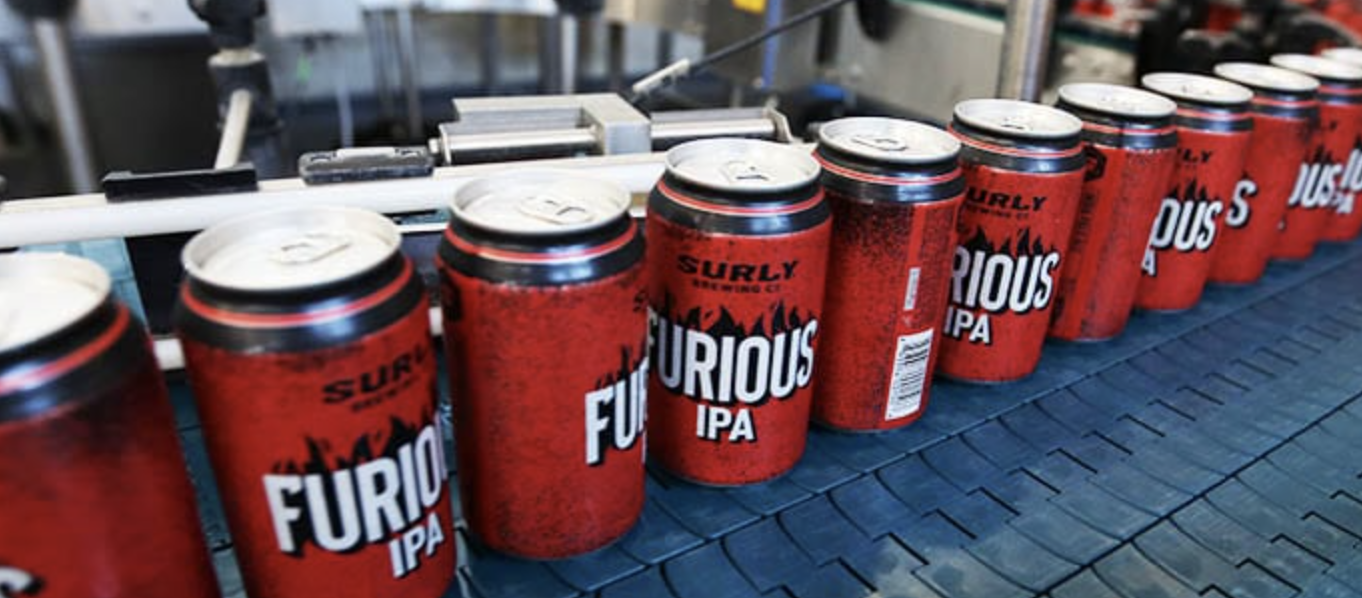
Photo Courtesy Surly Brewing Co.
Surly Brewery: Minneapolis is home to Surly Brewery. This eclectic brewery grows trees in-house with its gravel-bed nursery. Saplings are planted to develop into tall trees.
The brewery moves the saplings to the forest once the roots have grown substantially. They do this with the Mississippi Park Connection. Due to the invasive emerald ash borer beetle wiping out most of them, ash trees are the go-to plant.
The tree effort is just one part of the “Surly Gives a Damn” program founded by a group of community volunteers.
For the last 12 years, it has hosted service projects and events, like food drives for the less fortunate. Even during the pandemic, the brewery completed 83 community service projects. The group has helped organizations like Second Harvest, The Food Group, and Bridging, a homelessness relief firm.
Missouri
Missouri is home to the biggest brewery in the U.S.: Ansheuser-Busch. The beer conglomerate has been using sustainable brewing methods for years now. Other smaller Missouri breweries are doing major philanthropic work.
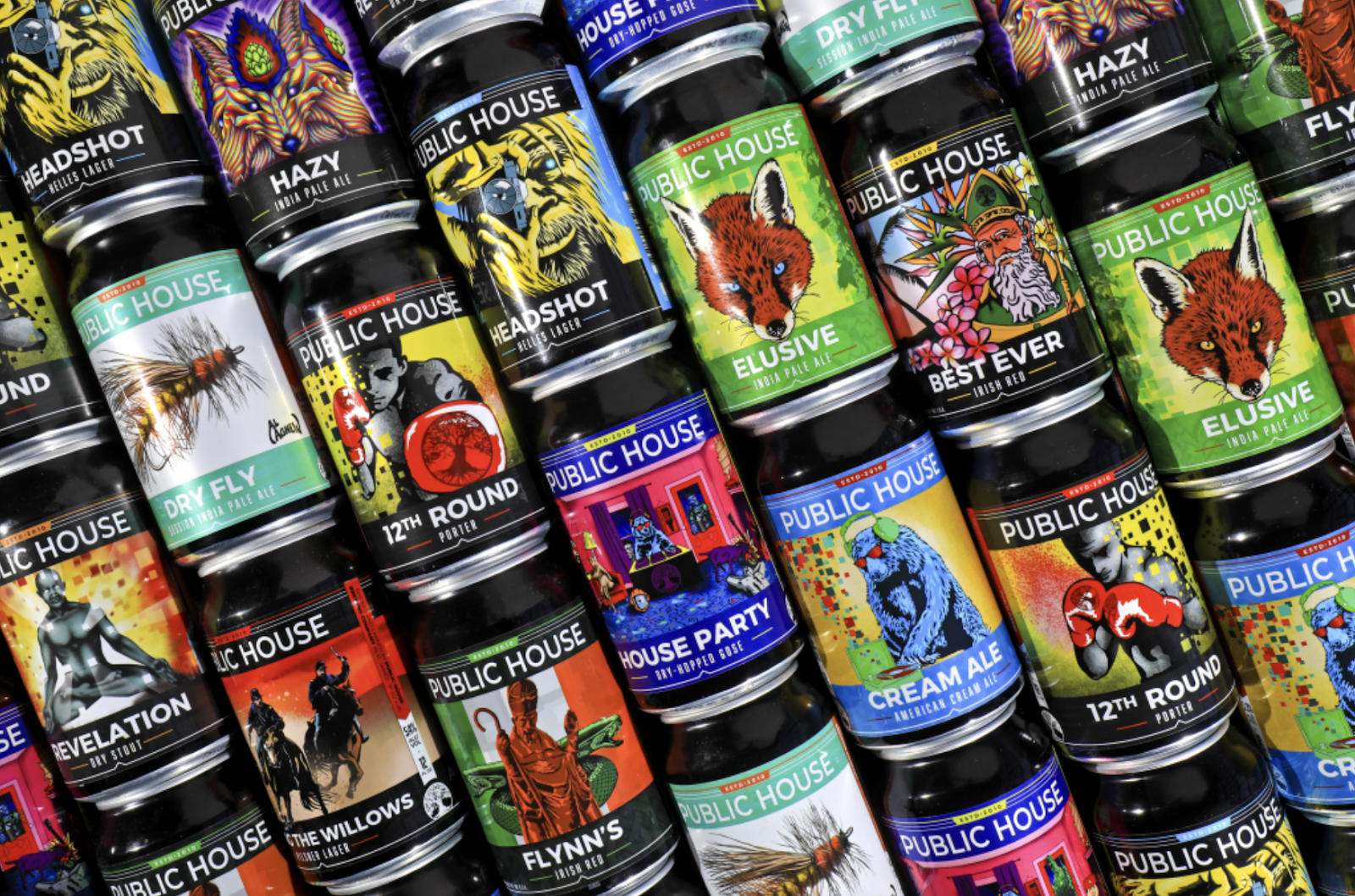
Photo Courtesy Public House Brewery
Public House Brewing Co.: Public House in Rolla, MO, is all about collaboration and sustainability. The first brewery opened in 2010, with a second location arriving in 2014. It was set up right next to St. James Winery, leading to a collaborative community space called “The Gardens.”
The Gardens has hosted numerous fundraising events for local nonprofits. Public House donated $1 to the St. James Veterans Home for every pint sold on Veteran’s Day. The brewery also works with local businesses like Giddy Goat Coffee House, Moondance Farms, and Ozark Forest Mushrooms for food and brewing ingredients.
When the brewery finishes a beer batch, the spent grain is sent to cattle farmers in the area for feed. St. James Winery uses it for compost as well. The company uses aluminum cans for recyclability, composts, runs LED lighting for energy efficiency, operates insulated tanks to reduce energy use for cooling liquid, reuses water from the heat exchanger, and recycles.
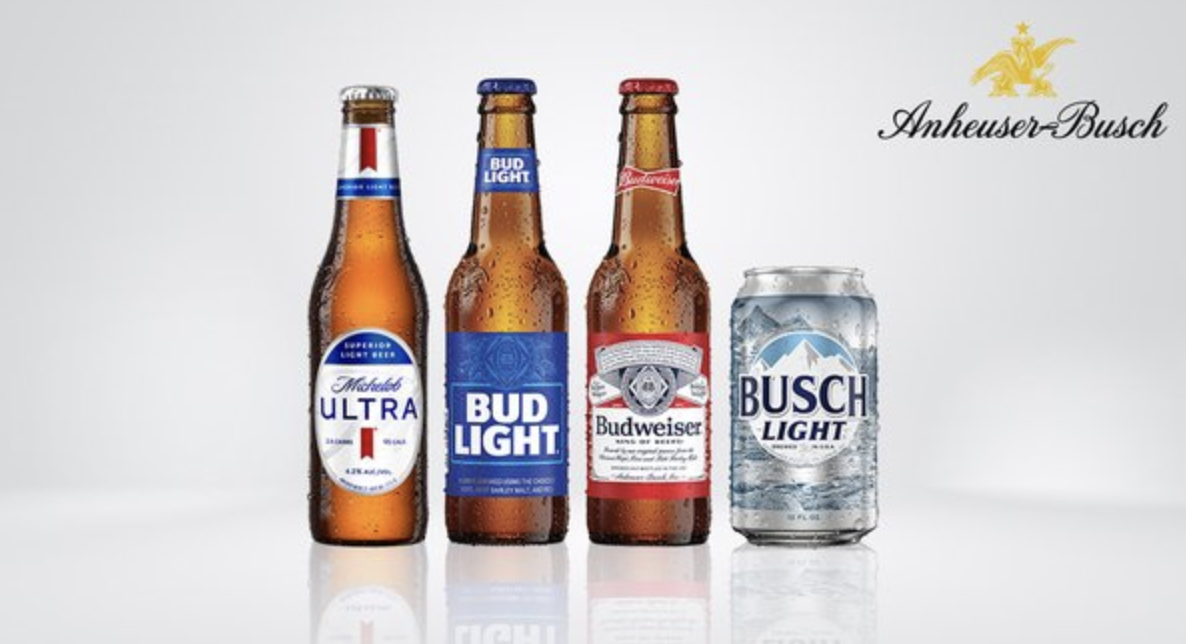
Photo Courtesy Anheuser-Busch
Anheuser-Busch: Anheuser-Busch (AB) continues to surprise Americans. The country’s biggest beermaker is working to reshape the distribution network for America’s beer suppliers. In 2018, AB unveiled its sustainability goals and began implementing them in 2020. The company pledged to install 100% renewable energy at its breweries nationwide.
However, 2018 wasn’t the start of AB’s sustainable practices. In 2015, it switched to compressed natural gas for its trucks, and by 2020, more than 180 trucks were converted to renewable natural gas.
There was also a trial of zero-emission vehicles, with AB ordering 800 Nikola hydrogen-electric and 40 Class 8 Tesla trucks. The whole fleet will eventually be fully electric.
In 2017, a deal with Enel Green Power made AB the “world’s largest purchaser of renewable energy in the consumer packaged goods sector.” With the amount of water it uses, the company enacted water stewardship and efficiency efforts. This effort saved 740 million gallons of water.
To give back to the communities they serve, AB has helped nonprofits remove a million pounds of garbage from rivers and other waterways. They planted 68,000 trees to improve air quality and even donated 300,000 cans of water to firefighters fighting wildfires. All the barley, wheat, and other cereals also come from the U.S.
Mississippi
Chandeleur Island Brewing is our sole candidate for our Mississippi brewery coverage. This business enacts sustainability measures while raising awareness about hammerhead shark conservation. It sits on the Gulf Coast, making it necessary to preserve an area where climate-related disasters have afflicted in recent years.
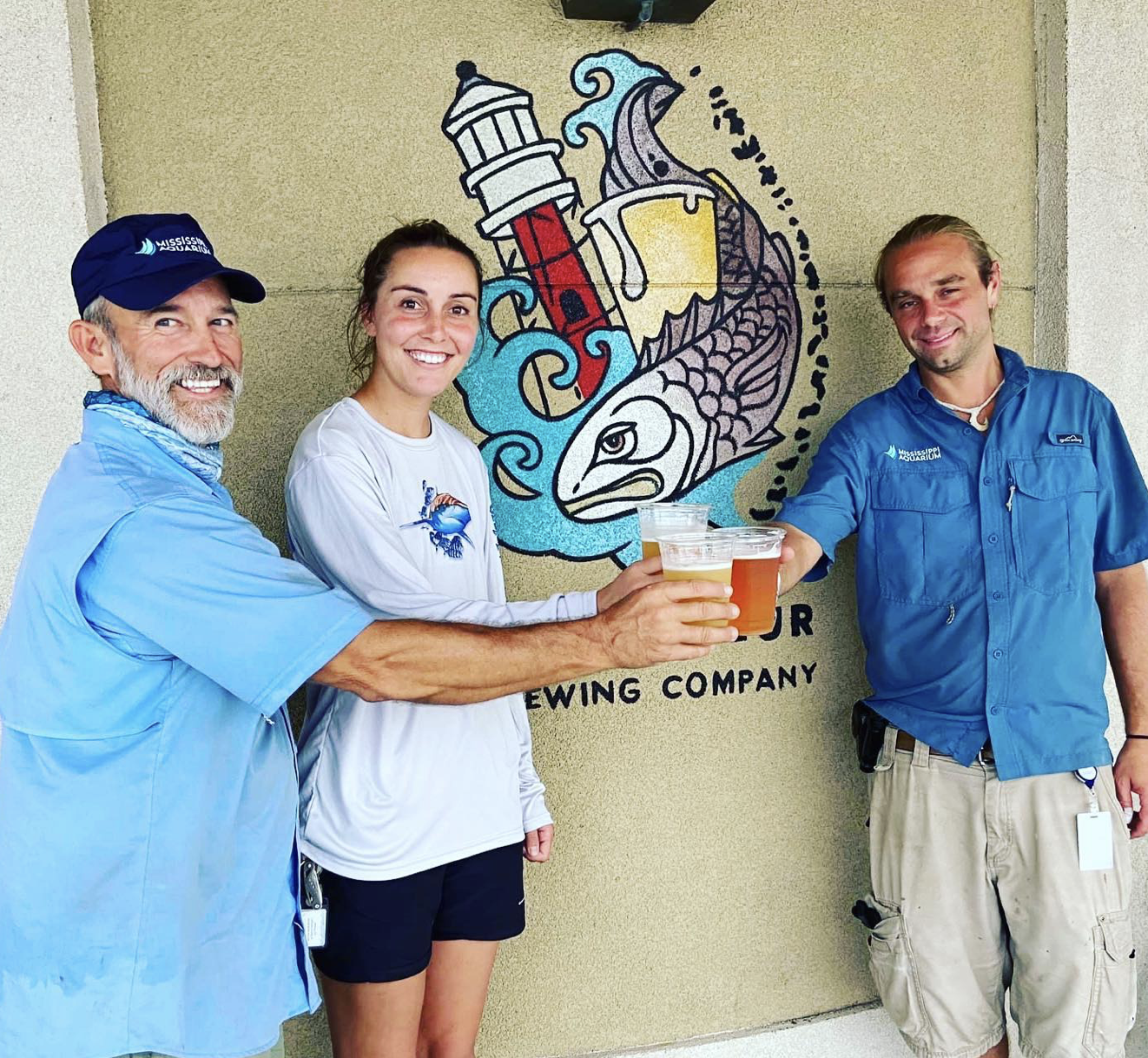
Photo Courtesy Chandeleur Brewing Co.
Chandeleur Island Brewing Co.: Gulfport, MS, is the home of Chandeleur Island Brewing Co. Brothers Cain and Cam Roberds founded it to protect ocean wildlife in the Chandeleur Islands, off the coast of Gulfport. Its rustic storefront is a homage to the dive bars of other coastal towns. All the beers are named after a specific species or ocean location. For example, the Freemason Golden Ale is named after Cain and Cam’s favorite fishing spot.
The Chandeleur Islands is home to many marine animals, birds included. To protect them, the brewery contributes profits to conservation campaigns. All the donations go to the Mississippi Aquarium.
The Roberds say they are true seadogs, always out on the water when not brewing. The company’s philanthropic efforts continue to track hammerhead sharks with Mississippi State University’s Great Hammerhead Shark Tracking program. The Roberds hope their beers open customers’ eyes to the beauty of marine life and educate them about why these animals are so valuable.
Montana
We are heading into cowboy country, starting with Montana. The Big Sky State is home to some older breweries from the Gold Rush of the late 19th century while home to some modern craft beer shops dedicated to restoring natural waterways. The mountains, wildlife, and scenery are enough motivation to be as eco-friendly as possible.
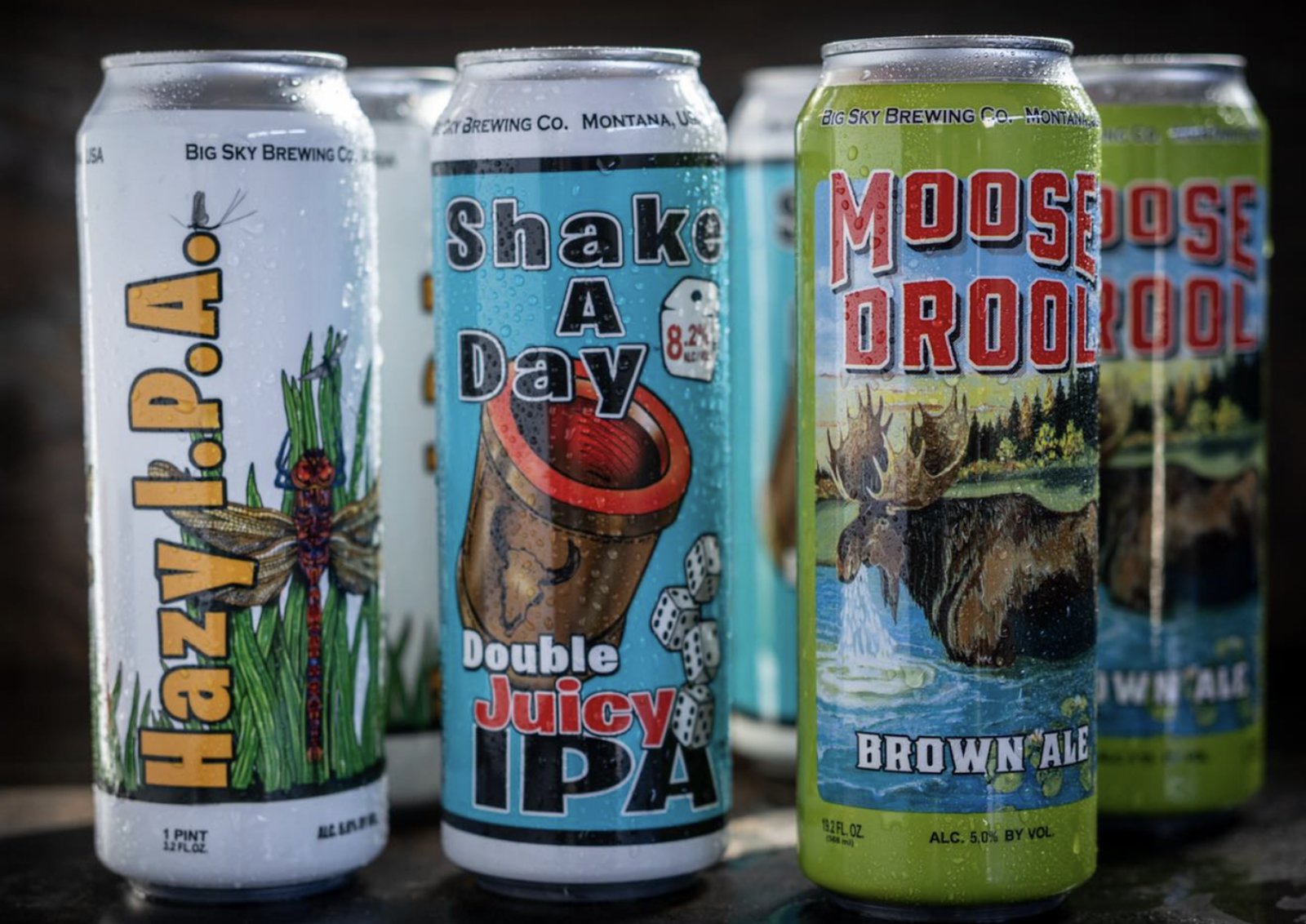
Photo Courtesy Big Sky Brewing Co.
Big Sky Brewing Co.: Neal Leathers, Bjorn Nabzoney, and Brad Robinson are the founders of Big Sky. Robinson and Leathers had a background in brewing when they lived in Michigan. The two met Bjorn when they moved to Missoula, MT, in 1990. Bjorn was studying finance at the University of Montana and saw an opportunity to start a business for his final project. The first Big Sky’s Whistle Pig Red Ale batch was brewed in June 1995.
In the 2010s and 2020s, Big Sky has worked to conserve the Montana wilderness. In 2010, the brewery signed a three-year contract with the Bonneville Environmental Foundation for Water Restoration Certificates.
They contributed money toward restoring water flow to Prickly Pear Creek. More than 10 million gallons of water have been restored to the creek.
The company uses lighter aluminum bottles that can fit 34% more beer. Energy consumption has been lowered by 80%, water use by 20%, and natural gas by 40%. They donate to charities and nonprofits like the Missoula Urban Demonstration Project, which teaches sustainable lifestyle habits.
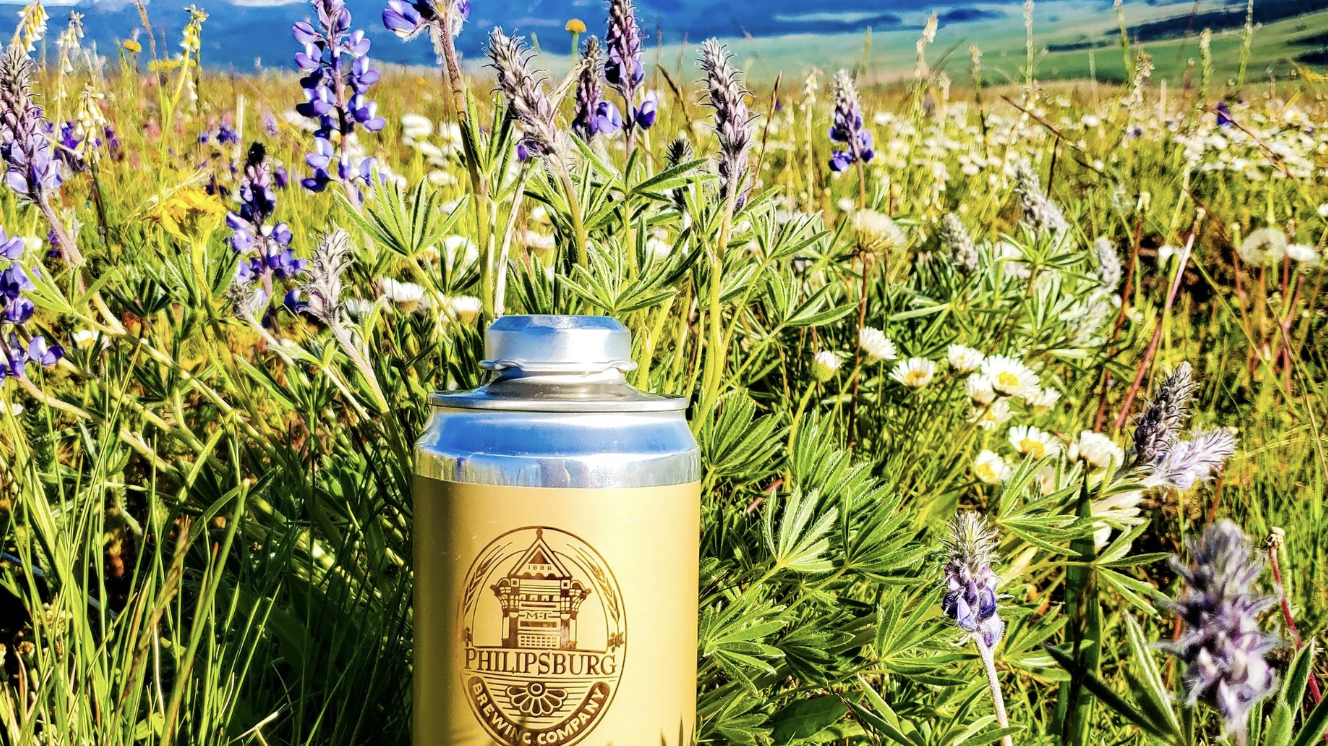
Photo Courtesy Philipsburg Brewing Company
Philipsburg Brewing Company: Philipsburg, MT, was a mining town that boomed during the Silver and Sapphire rush in the late 1800s. Now, it’s home to one of the best breweries in Montana. The city of 937 people is grateful for Philipsburg Brewing, founded in 2012 with the goal of being self-sustaining.
Materials are sourced from local businesses to do this. It stimulates the Philipsburg economy while reducing costs for transportation and slashing shipping emissions. The brewers make beer with sage, honey, coffee from a local roaster, and bourbon barrels from a distillery in Butte, MT.
Philipsburg’s team recognizes how nature built up the town in the 1800s and applies that to their business decisions. The brewery was awarded the 2019 Ecostar Pollution Prevention Award for its various environmental programs. They reclaim hot liquor from the heat exchanger to decrease wastewater. They use Alumi-Tek bottles, the most sustainable bottle option. They also donate 200,000 pounds of grain to cattle farmers.
Since 2018, Philipsburg has worked with Montana State University to reduce cardboard packaging use. About 3.5 tons of cardboard is now decreased annually.
North Carolina
North Carolina is surely the American craft beer enthusiast’s paradise. It’s home to Sierra Nevada, Birdsong, and Highland, and that’s just in Asheville and Charlotte, respectively. There are even more breweries deeper in the Smoky Mountains upstate. There is no limit to the types of beer you can get, and the businesses are all doing their best to keep carbon emissions low.
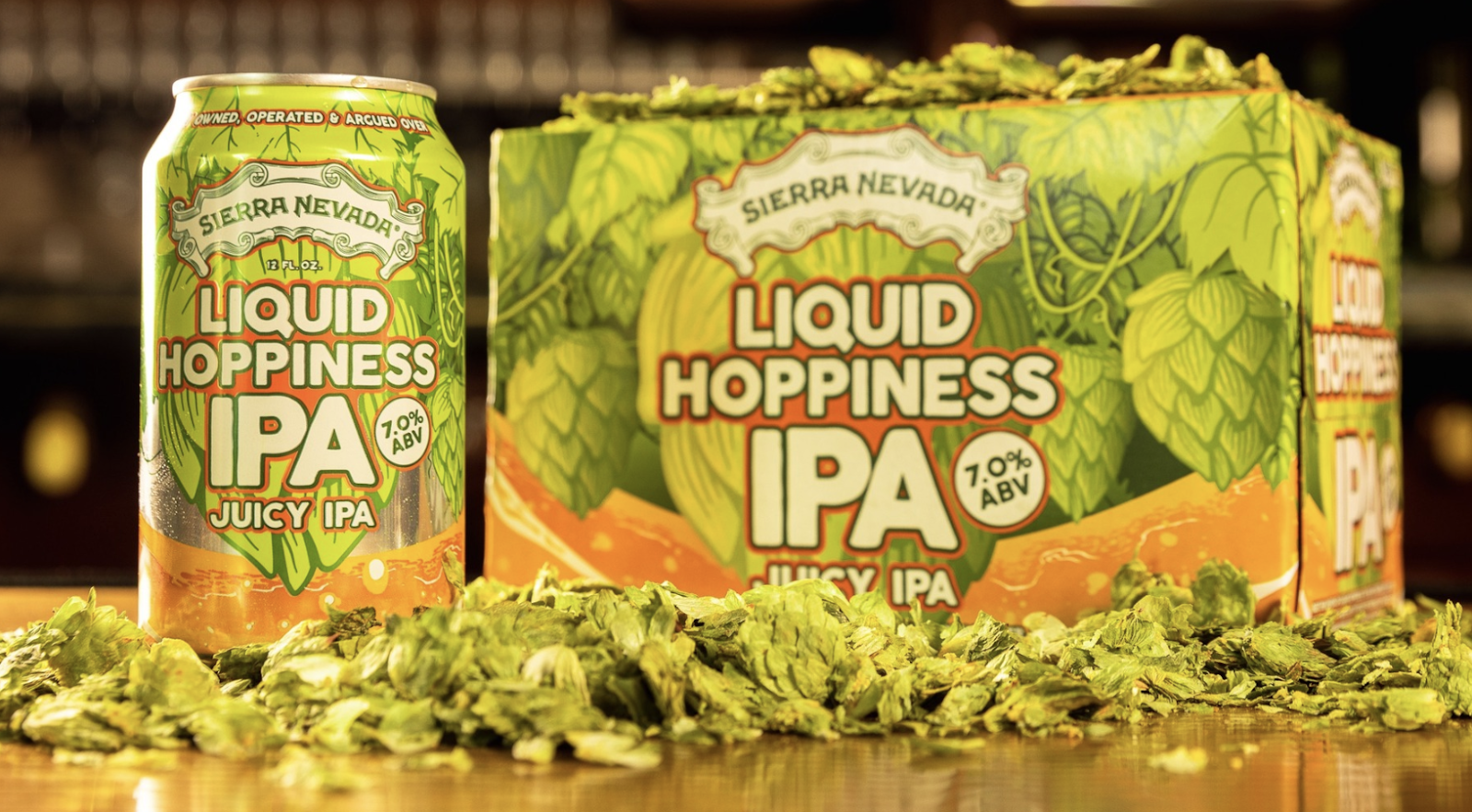
Photo Courtesy Sierra Nevada
Sierra Nevada: The brewery was founded in 1980 by Ken Grossman and grew into a $1 billion beer empire. As one of the first small-batch beermakers, Sierra Nevada is now the third highest-rated craft brewery in the U.S. for the volume of barrels and 10th in the beer industry. It produces more than 1.1 billion units of beer.
The Grossmans, Ken and his son, Brian, believe in staying true to themselves and thinking about the long-term goals of a business. It’s important to stay hungry and work hard to build a business from the ground up, let alone a brewery. Ken’s work ethic powered him to keep putting out great products once he found his niche.
Existing customers bring in new ones, and Sierra Nevada started with only 10% of the beer consumer market before expanding.
It boomed in the late 2010s, with things changing as consumer tastes varied. It was one of the first breweries to make hoppy, dark ales.
The company was ahead of the sustainability game when it installed America’s largest private fuel cell power at the Chico, CA, facility. The cell was eventually replaced with 10 microturbines and Tesla batteries that generate 2 megawatts of electricity. They now have 10,000 solar panels, and the Chico brewery produces 80% of its own energy.
The Mills River, NC, brewery would follow 30 years after the first location opened. It sits on the French Broad River and has 200 acres of property, mostly farmland. It tries to grow as much of its food as possible, including raising animals. It also has one of the coolest recycling co-ops in the country.
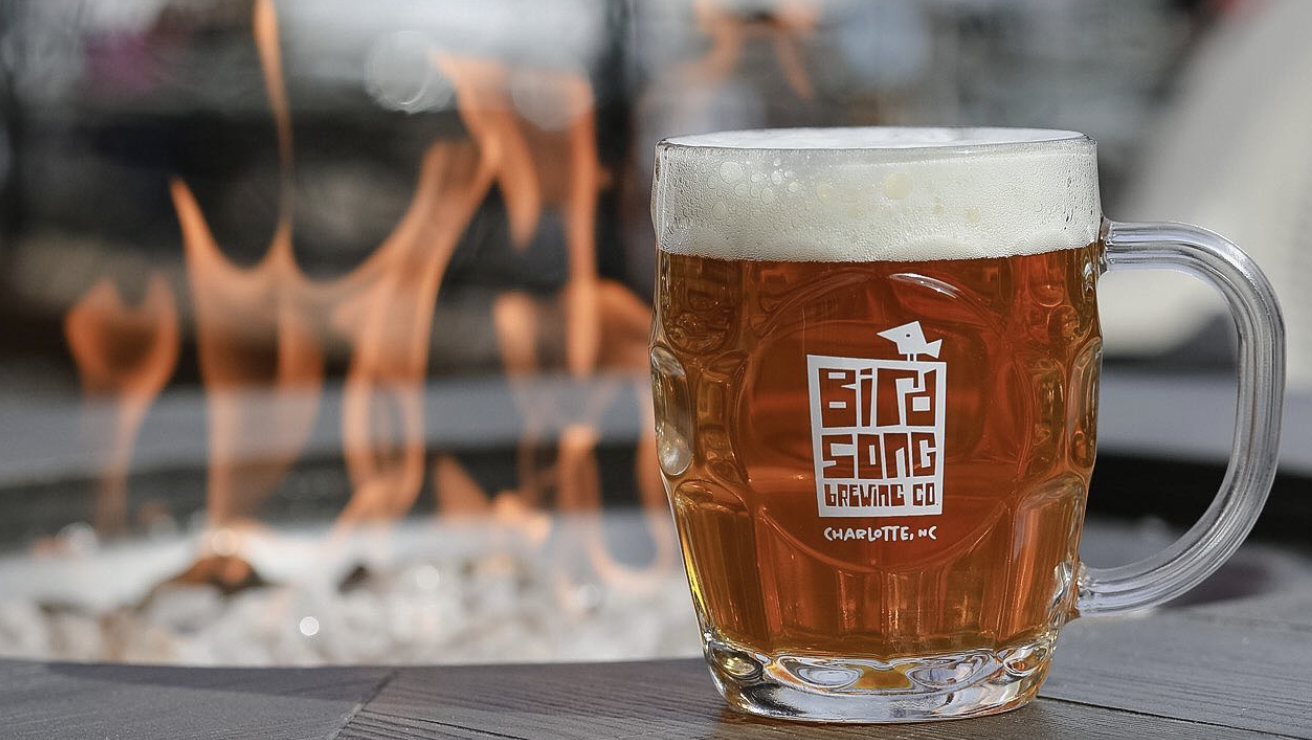
Photo Courtesy Birdsong Brewing Co.
Birdsong Brewing Co.: Started by friends Conor Robinson and Chris and Tara Goulet, Birdsong utilizes some interesting ingredients for its beer line. One even involves eggs being infused in the brew. Conor and Tara had worked at the same bakery but were looking to escape their day jobs. They came up with the idea of a craft brewery.
For the last 11 years, Birdsong has become a Charlotte, NC, watering hole. The brewery opened in 2011 but needed to expand just three years later due to its popularity. It installed solar panels on the roof of the new space, and the sun now powers 40% of the facility’s energy needs.
Side streaming is done during the brewing process to conserve water. It saves thousands of gallons of water and keeps business costs low. By 2014, the brewery was seeing serious growth through sales and production. Some of that concerns canning beer on top of the draft taproom.
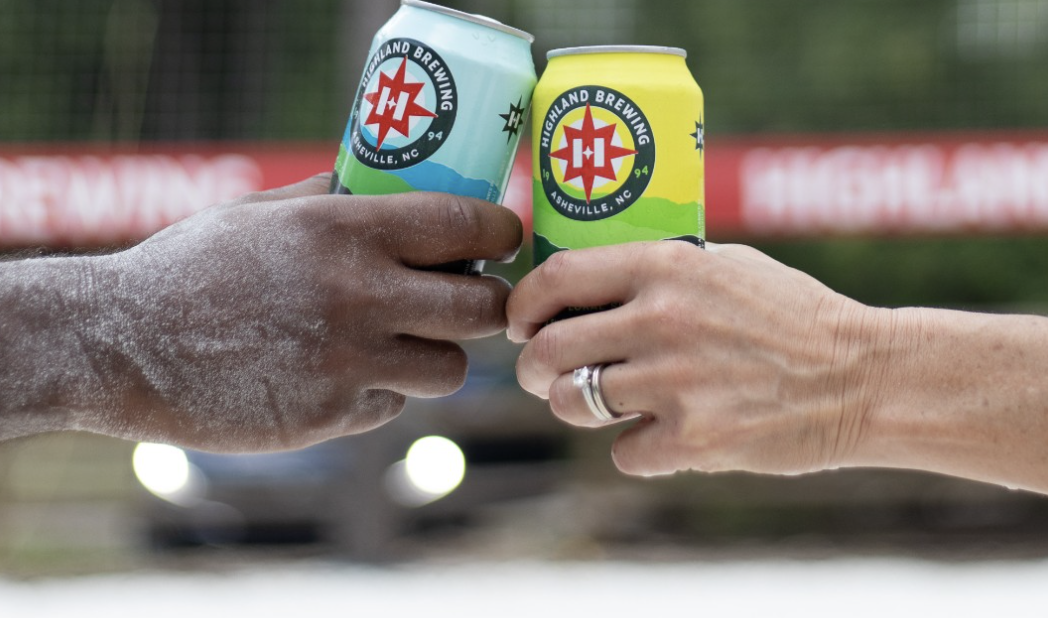
Photo Courtesy Highland Brewing Co.
Highland Brewing Co.: Another Asheville-based brewery, Highland opened its door in 1994, the first post-Prohibition beer operation in the North Carolina city. Retrofitted dairy equipment makes up the fermentation side of the business.
Founded by Oscar Wong and run by his daughter, Leah, production has increased to 60,000 barrels yearly. Highland is the fifth-largest female-led craft brewery in the nation. The business distributes to North Carolina, South Carolina, Virginia, Tennessee, Georgia, and Florida.
The brewery strives to be eco-friendly and boasts the sixth-largest solar array for American craft breweries. It generated 324 kilowatts of direct-current electricity.
Other sustainable practices include using a Miura gas-fired LX-100 boiler, which is more environmentally sound. It saves $1,200 on energy costs.
Philanthropy has seen Highland work with Southern Appalachian Highlands Conservancy, MANNA FoodBank, Asheville Humane Society, and the WNC Nature Center. It’s all about saving the natural environment of Appalachia.
Highland and Sierra Nevada joined together to make a collaborative beer to celebrate the 25th anniversary of Highland, cementing their good relationship.
North Dakota
North Dakota is often the punchline for a classic Internet meme, “Does North Dakota exist?” I hate to burst the memer’s bubble, but there’s so much of the state to discover. One spot includes Laughing Sun, a nifty craft brewery in Bismarck.
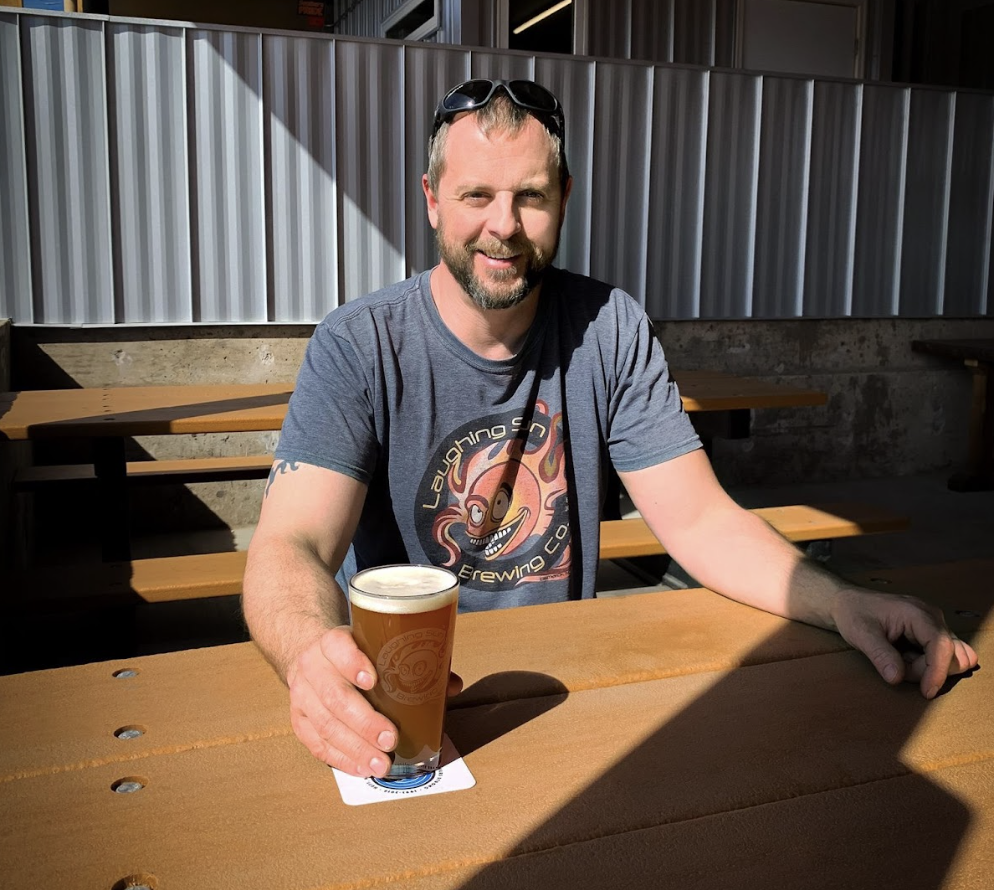
Photo Courtesy Laughing Sun Brewing Co.
Laughing Sun Brewing Co.: Mike Frohlich started Laughing Sun after working in a restaurant with an in-house brewer. He taught Mike the ropes of beermaking. He wouldn’t open his brewery until 2012 in Bismarck, ND.
Laughing Sun has been giving back to the city from the beginning. Frohlich sources 95% of his malt from North Dakota, keeping the supply chain local. The brewmaster sees this as stimulating the local economy. The spent grain goes to the local co-op for chicken feed, and energy is generated by a wind farm in Baldwin, ND, keeping a low carbon footprint by running on renewables.
The brewery has lots of local artwork lining the walls. Frohlich says many regulars know him by first name and vice versa — as he likes it. He is also responsible for passing a state law that makes it easier for taprooms and microbreweries to open in the state.
Nebraska
If Iowa is the land of cows and corn, Nebraska is the continent of corn. If you don’t believe it, just remember the University of Nebraska’s mascot is the Corn Huskers. Moving away from the vegetables, let’s talk about sustainable Nebraska beer and wine.
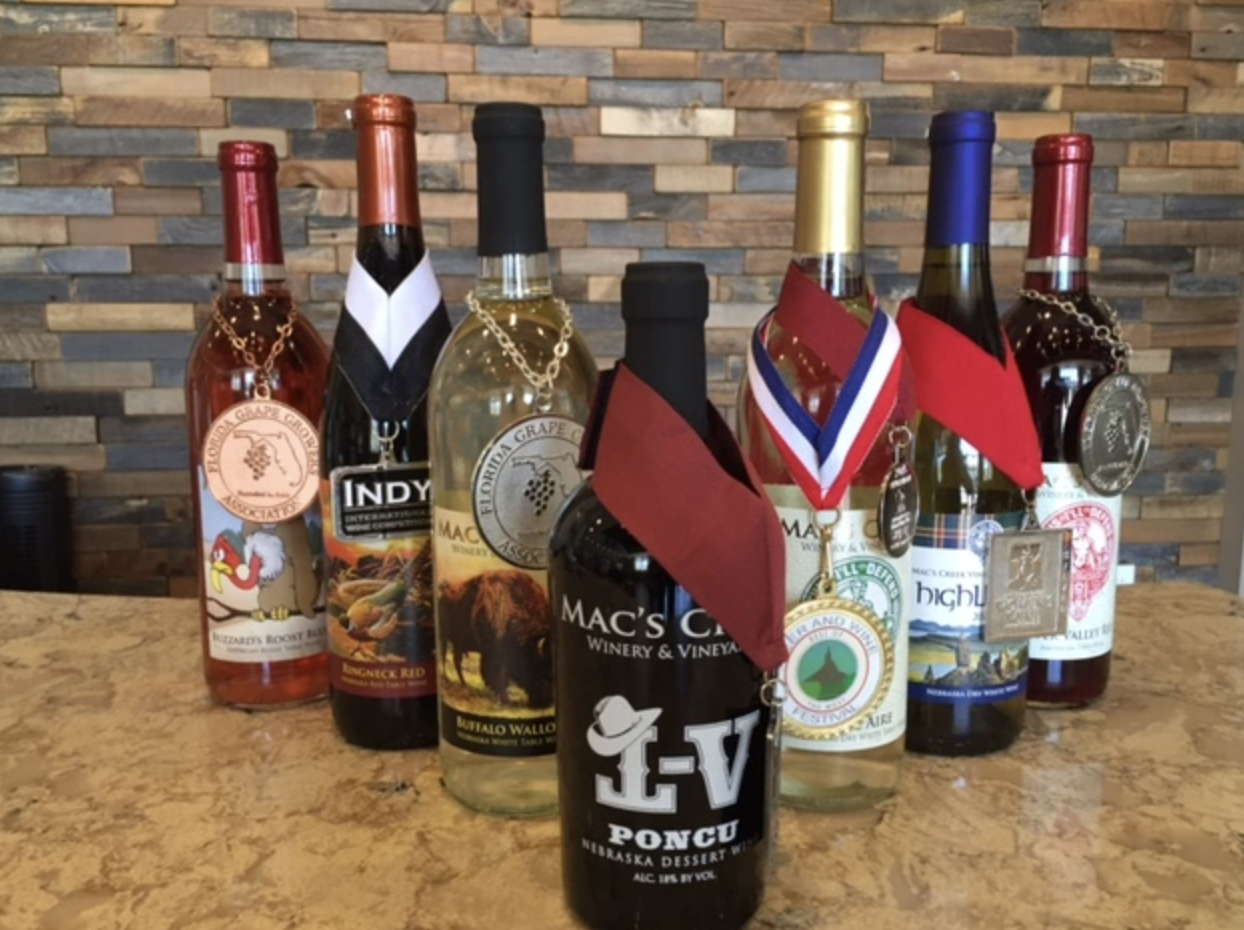
Photo Courtesy Mac’s Creek Winery and Brewery
Mac’s Creek Winery and Brewery: The McFarland family has owned and operated Mac’s Creek since 2001. They had grown grapes for wine since 2000 and saw the opportunity to open a business.
They use a sustainable approach in sourcing their hops and grapes. No pesticides, fertilizers, or herbicides are used on crops.
To fight pests, Mac’s Creek used a natural pesticide called Ozone to ward off insects. A tractor with a giant arm tiller mows down weeds, and skins and seeds from grapes are used for compost for more fertile soil.
Continuing the eco-friendly practices, plants that attract pollinating insects were planted to help them grow. Barn owls and bat houses around the grounds house Mac Creek’s natural pest exterminators.
These sustainable measures earned the company recognition from the Nebraska Department of Agriculture. A grant was awarded to the brewery for its specialty crop projects. Mac’s Creek stood out because it figured out how to combat weeds without chemical pesticides.
New Jersey
It wouldn’t surprise anyone that New Jersey’s best craft breweries are in or near the Jersey Shore. The bustling vacation spot is home to restaurants and now the breweries. Check out some of the sustainable and charitable efforts they have at New Jersey’s most popular microbreweries.
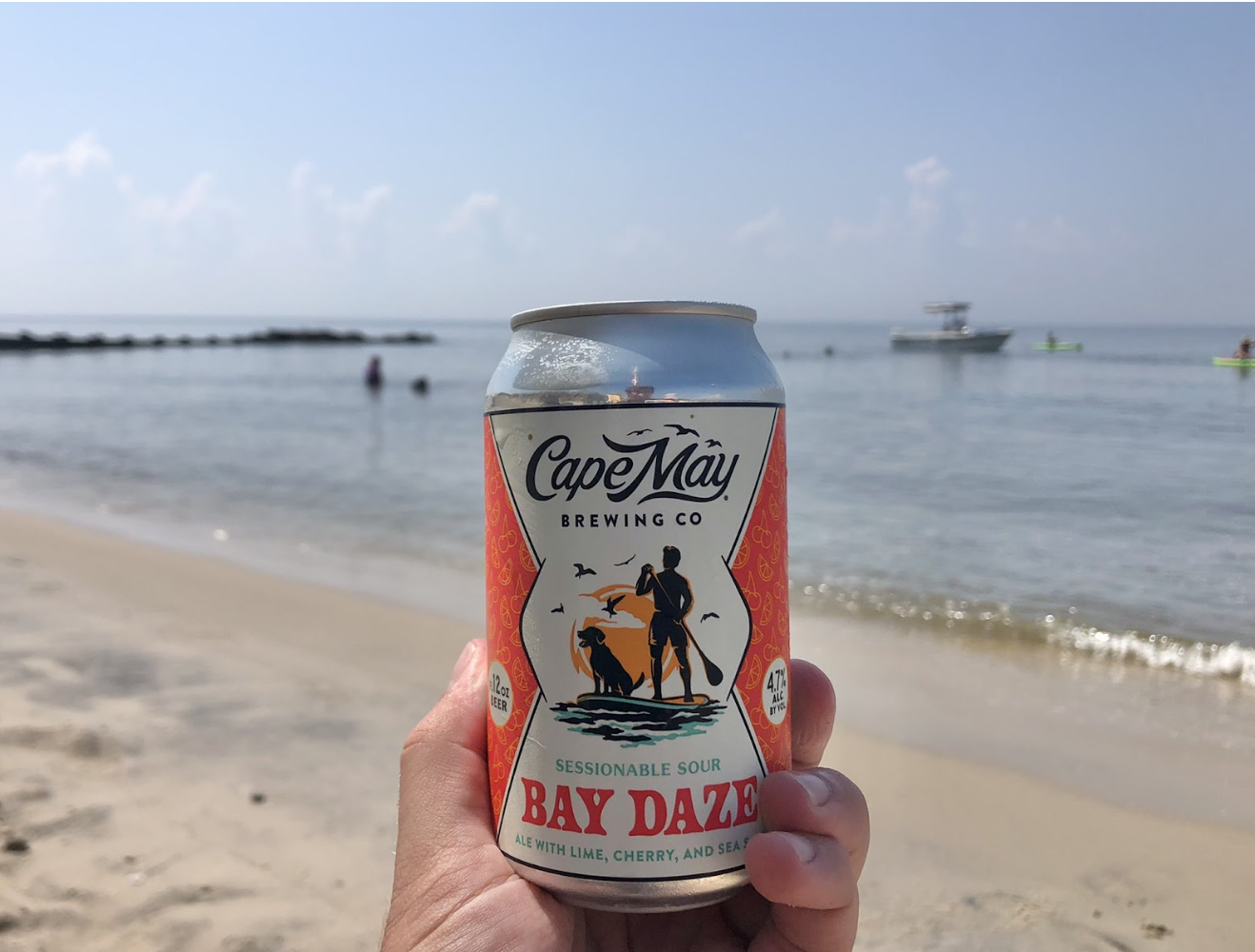
Photo Courtesy NCM Baywatch
Cape May Brewing Co.: Started by father-son duo Ryan and Bob Krill and Ryan’s friend Chris Henke, Cape May Brewing is a staple of the Jersey Shore. The facility resides in an old airport warehouse at the Cape May Airport. The town of Cape May is a highly-rated summer vacation spot and is mostly seasonal residents from late spring to early fall.
The beer company has made many flavorful beers and has done it sustainably. In 2021, 53,000 barrels of beer were produced and distributed across 21 counties in New Jersey, nine in Pennsylvania, and some in Delaware.
The brewery has ample recycling and waste management practices to keep trash low and gives back to many organizations. Beers like the Twin Fin IPA donate funds to ocean preservation nonprofits, and Brave Noise Pale Ale proceeds go to anti-discrimination advocacy groups.
The facility uses LED lights to keep energy consumption down. The company also no longer uses traditional six-pack holders, switching to PacTechs, which are wildlife friendly and made of recycled materials.
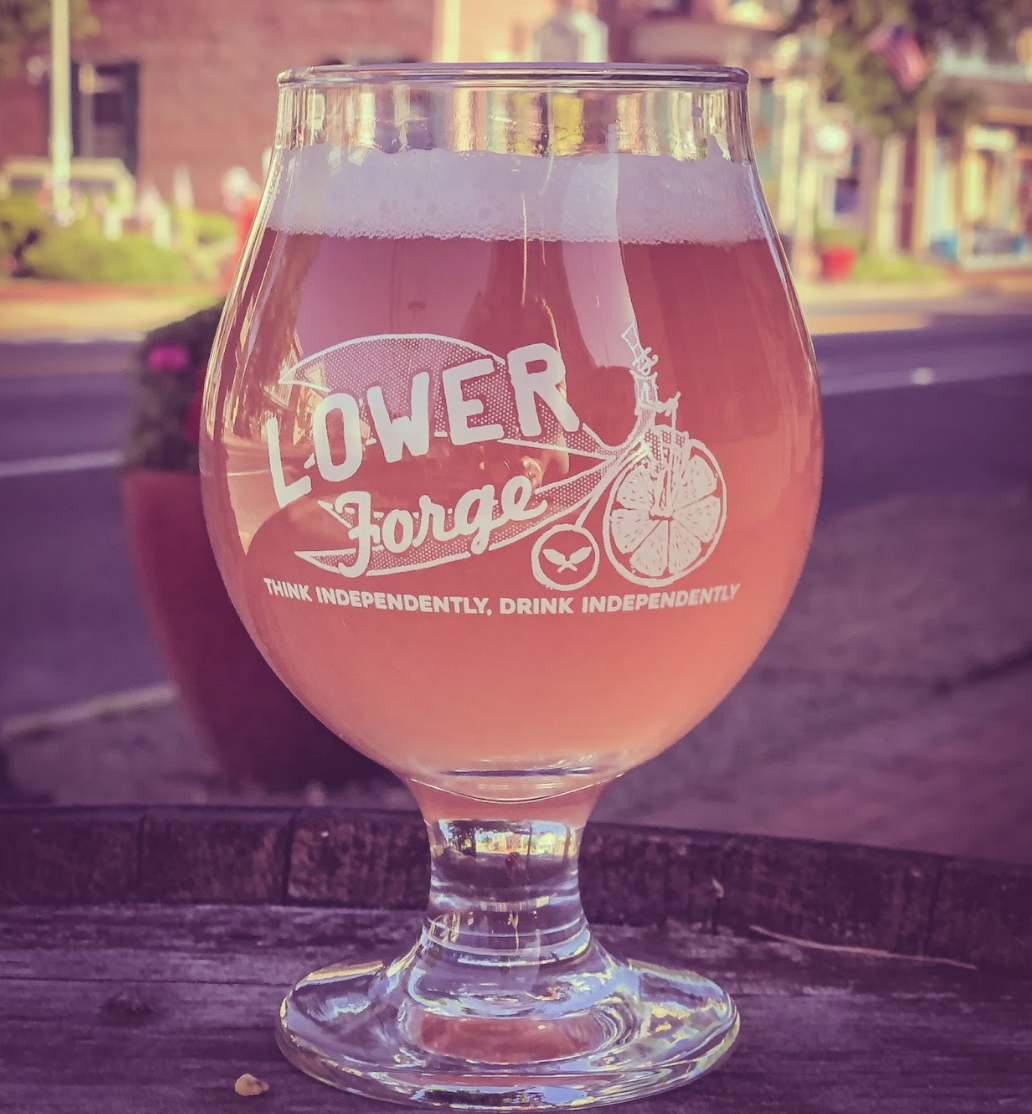
Photo Courtesy Lower Forge Brewery
Lower Forge Brewery: Mother and son Pola and Sean Galie are the proprietors of Medford, NJ-based Lower Forge Brewery. Pola is an herbalist with a knowledge of tea and other botanicals. Her experience during the industrial boom of the 1960s taught her the value of nature and helping others. Sean followed in her footsteps, becoming an EMT and a firefighter.
It was Sean’s dream to open a brewery, and he saw an opportunity to help his mother revitalize Meford’s Main Street. Sean’s wife and mother were involved in the brewery’s opening in 2017. The business’s name is a homage to a town that made armaments for the Revolutionary War.
The company is a registered sustainable brewery, adhering to strict water consumption limits and waste reduction guidelines and achieving zero waste production.
Lower Forge is one of four sustainable breweries in New Jersey, with the conservation efforts overseen by Pola.
Sean focuses on “green brewing,” using modern techniques. Lower Forge buys all its ingredients from New Jersey farms and donates spent grain to cattle farmers. It’s looking into carbon capture as well.
New Mexico
A major theme in southwest American craft beer is making beverages with hints of local and Indigenous ingredients. New Mexico is home to Bow & Arrow Brewing, a thriving brewery helping other Native brewers fulfill their dreams.
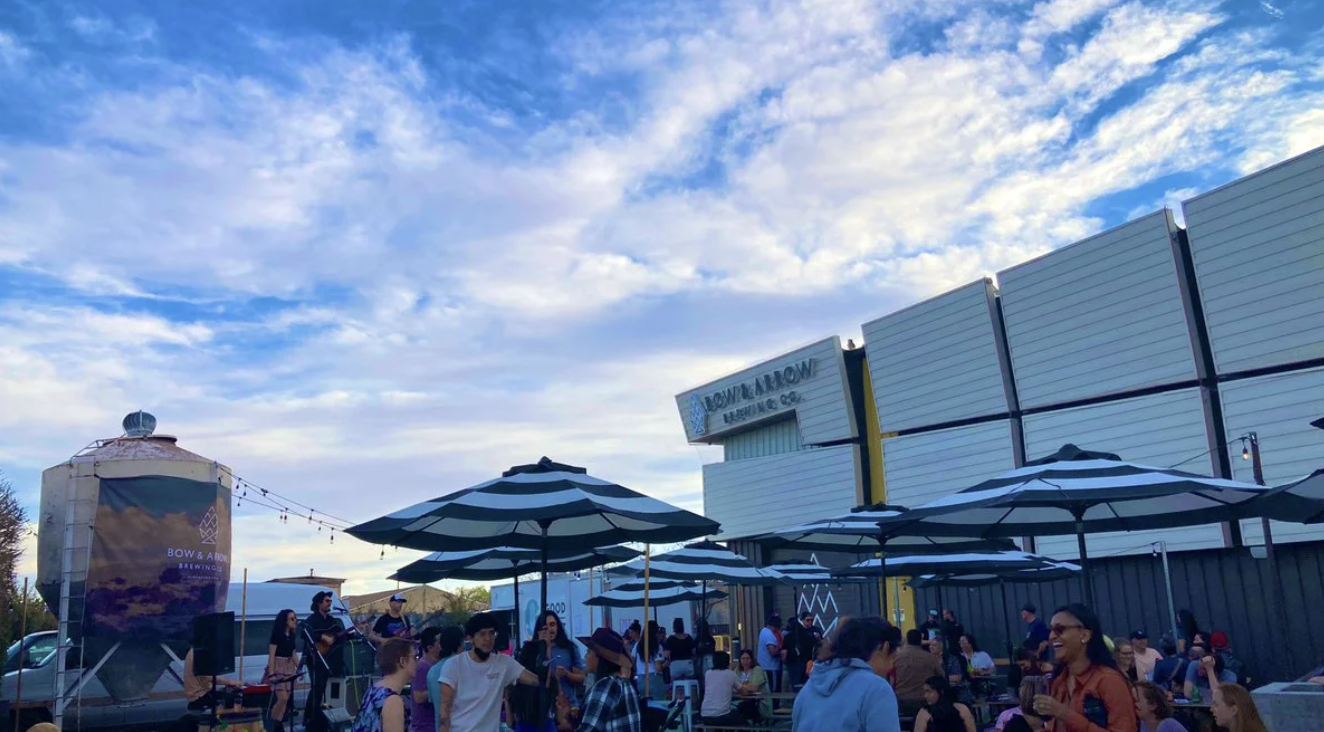
Photo Courtesy Bow & Arrow Brewing Co.
Bow & Arrow Brewing Co.: Bow & Arrow was founded by Shyla Sheppard and Missy Begay, two Native American women. Sheppard is a member of the Three Affiliated Tribes of North Dakota, and Begay is Navajo. Their business is the first Native American, queer-owned brewery and was voted one of Hop Culture’s 21 Best Breweries of 2021.
Based in Albuquerque, the two are focused on uplifting other Indigenous communities. Holding degrees in economics and a doctorate in medicine, respectively, their brewery has been sustainably for many years. They source all ingredients within New Mexico and use many Indigenous recipes in their brews.
For philanthropy, Bow & Arrow works with other breweries to make the Native Land IPA, whose proceeds from sales go toward Native nonprofits. All breweries who sign up for Native Land IPA guidelines must donate the funds. It raised close to $9,000 for these organizations and helped get their name out more.
Nevada
How do you escape the scorching heat in Nevada? It’s understandable if your mind goes to gambling or chilling by the casino pool. What about grabbing a pint with the lads? We recommend going to Great Basin Brewing, where you can drink beer and learn about dinosaurs.
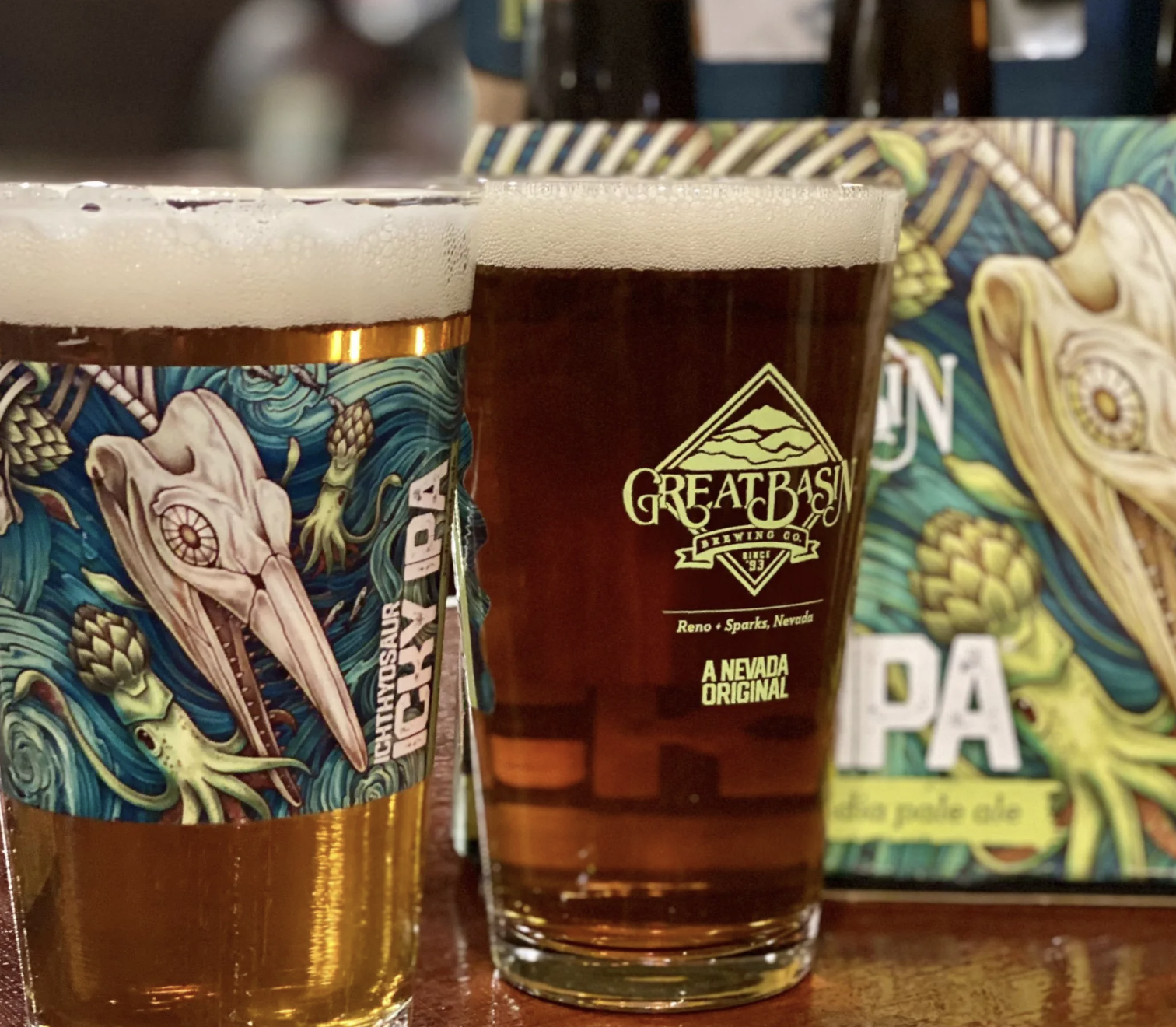
Photo Courtesy Great Basin Brewing Co.
Great Basin Brewing Co.: With labels including a mascot that roamed the ocean that covered Nevada 225 million years ago, Great Basin Brewing is heavily involved in the state’s fossil discovery efforts. The brewery mascot, the ichthyosaur, is the most prominent prehistoric creature found in the state’s desert.
Founded in 1993 by Tom Young and his wife Brenda in Reno, Great Basin has been helping fund paleontology expeditions through beer sales. The brewpub’s most-famous beer, the Ichythosaur IPA, has sold more than 6 million bottles and is the best-selling beer in Nevada.
Young says he wants his beers to showcase the ancient creature’s importance to the state ecosystem, impacting the evolution of the food chain.
Following his love of science, Young has donated to research on the ichthyosaur. He funded field expeditions with renowned paleontologist Dr. Martin Sander, where they found ichthyosaur remains, including one of the largest skulls on record.
New York
There is a cultural divide between certain regions of New York. On the one hand, you have the southern section near the Big Apple, and on the other, Upstate. New Yorkers agree on a few things: New York-style pizza is the best, the Yankees are the best baseball team in the world, and craft beer is excellent.
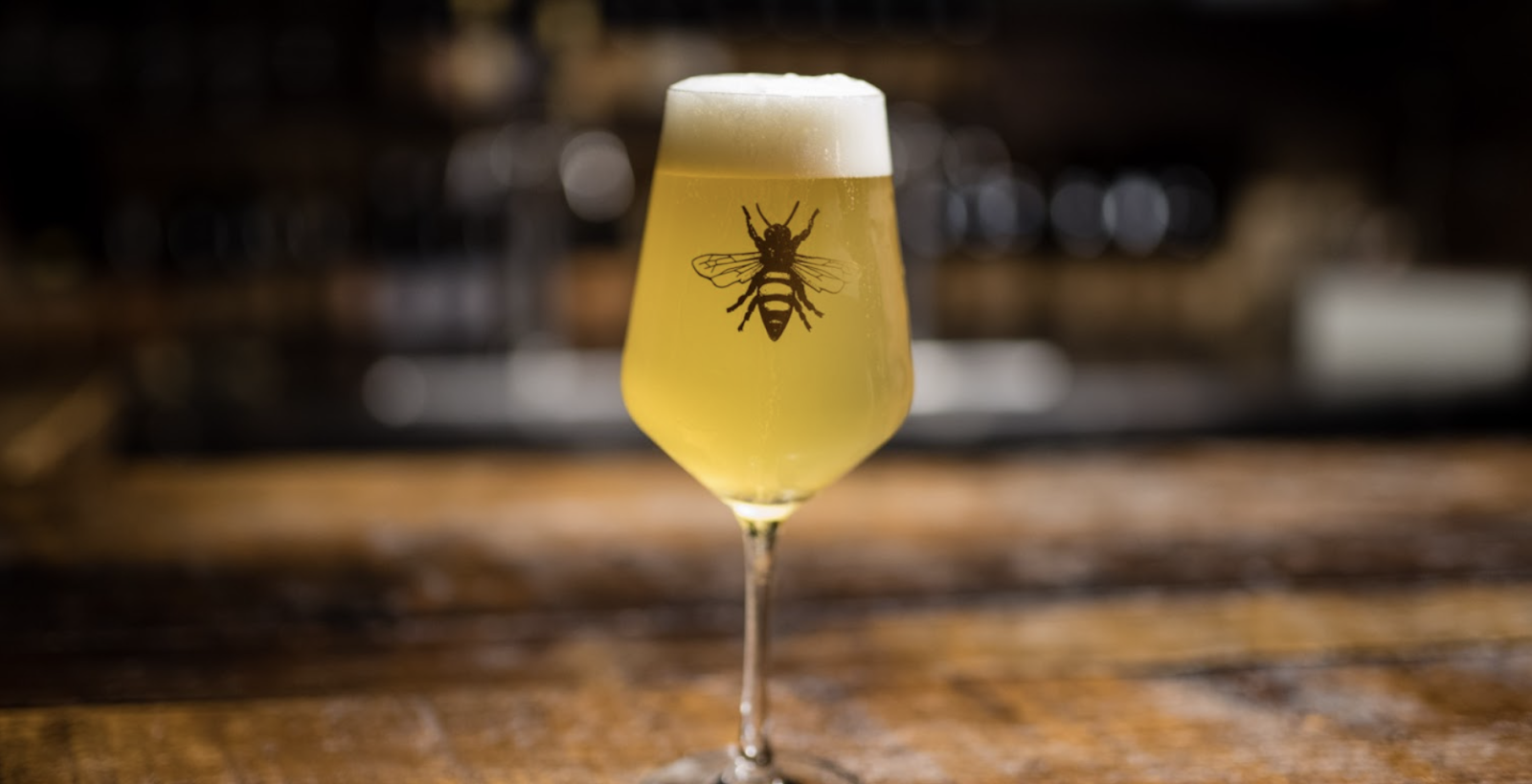
Photo Courtesy Derek Dellinger
Plan Bee Farms Brewery: Just outside the limits of Poughkeepsie, NY, Evan and Emily Watson operate Plan Bee Farms Brewery on a 25-acre plot of farmland. Evan initially began a career in music before picking up home brewing. After seven years of touring and traveling, Evan decided to pursue a different venture: a sustainable craft brewery. This pursuit was the couple’s “Plan B,” and that’s how the brewery got its name.
The brewery’s beers stand out because it uses bees to harvest the yeast for brewing. The company is dedicated to using 100% sustainable and locally-sourced ingredients. Emily connected with local farmers to keep grain supplies flush, and the brewery grows some of its own, producing between 200 to 250 barrels per year.
The business has been very successful, selling its products in Massachusetts, Pennsylvania, Maine, Rhode Island, North Carolina, Virginia, and Washington state. It has even attracted interest in countries like China, Denmark, South Korea, Australia, and New Zealand.
Plan Bee was slightly ahead of other craft breweries with their sustainability practices. It offsets all electricity with solar power, spent grain is donated as cattle feed, and all ingredients come from within New York State.
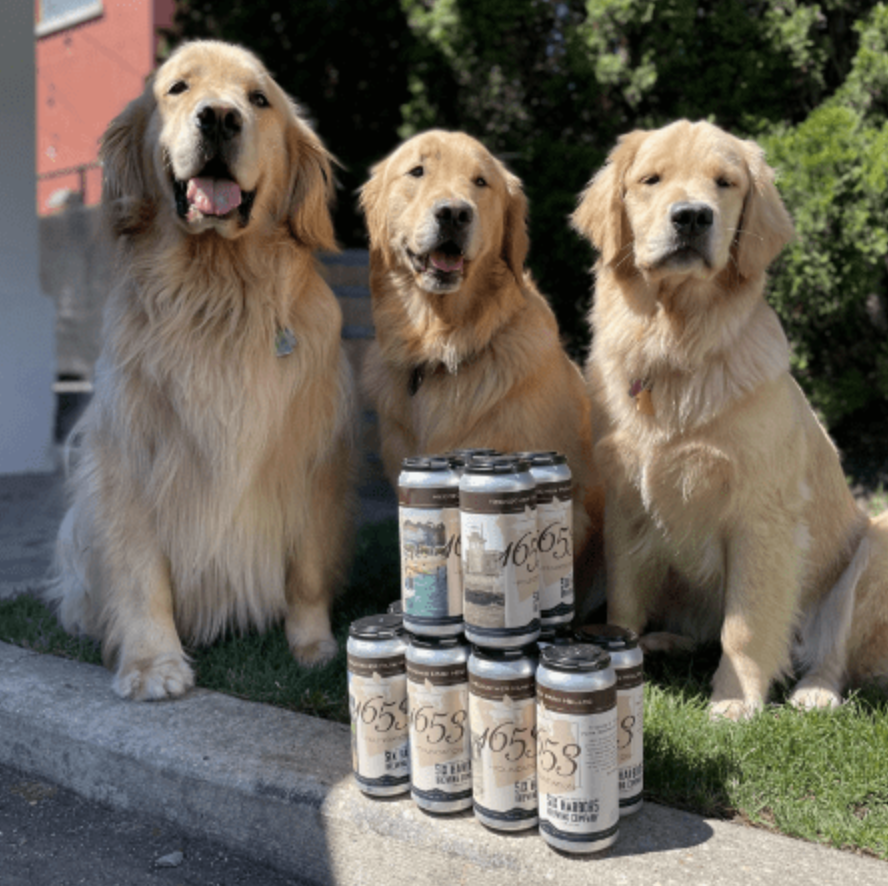
Photo Courtesy Six Harbors Brewery
Six Harbors Brewery: Six Harbors of Long Island, NY, has a unique delivery service. During the worst of the pandemic, founders Mark and Karen Heuwetter used their golden retrievers, Buddy and Barley, to help customers cheer up during the worst of lockdown.
The dogs would drive around in the delivery truck, then take packs of beer to doorsteps. Buddy and Barley were recognized as the most Heroic Dogs of 2020 by reality TV dog trainer Cesar Milan.
Eventually, the Huewetter family’s new puppy, Brandy, would join the effort. The retrievers became therapy dogs of sorts. Their upbeat and cuddly personalities were what people needed during those troubling times.
Deliveries included 21st birthday parties, surprises for people, or just for a little canine visit. At the brewery storefront, Buddy and Barley constantly went to customers at tables or in seating areas. Patrons can bring their dogs to Six Harbors now that it’s back to full operations.
Ohio
The owners and operators at Great Lakes Brewing have been uplifting the spirit of Cleveland, OH, for years now. With its water restoration campaigns and its use of local Ohio brewing ingredients, the business brews community vibes and great beer.
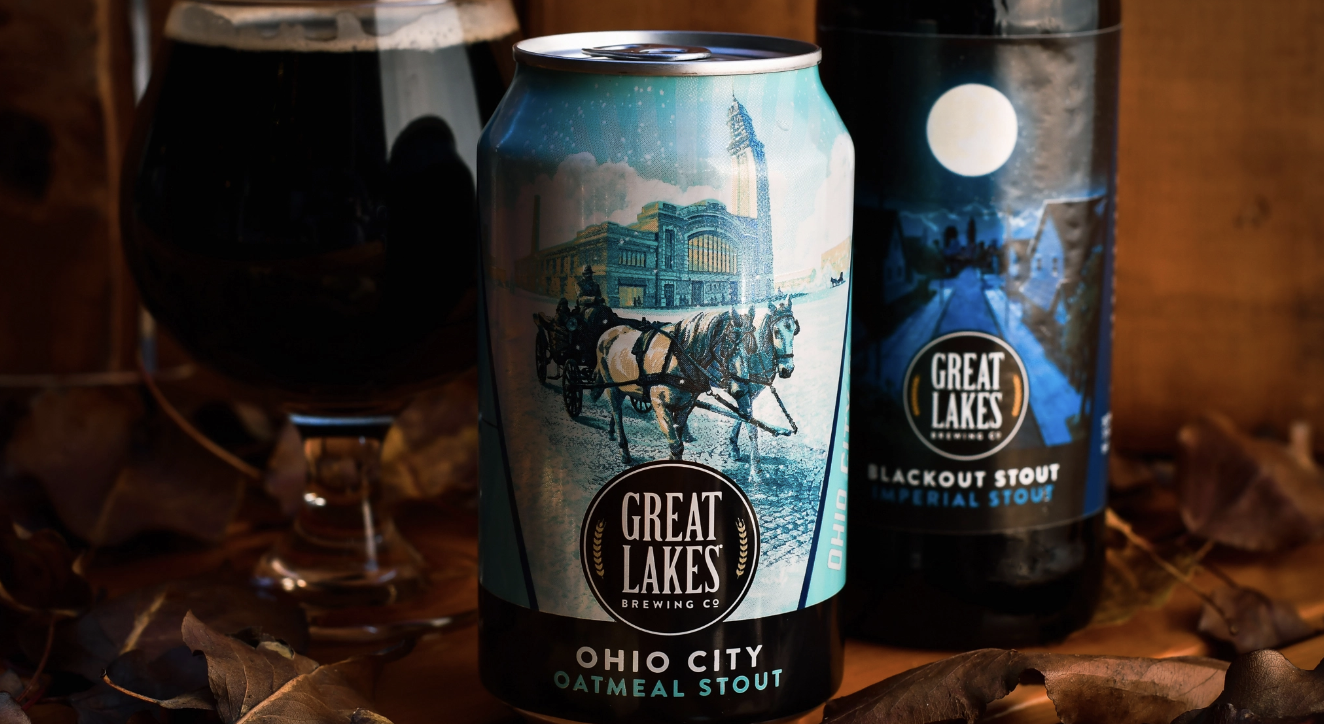
Photo Courtesy Great Lakes Brewing Co.
Great Lakes Brewing Co.: Positioned in Cleveland, OH, Great Lakes Brewing has been central to the craft beer scene in the Ohio city. Great Lakes is “Ohio’s original craft brewery,” founded by Daniel and Pat Conway in 1988. Catering to a crowd who enjoyed lager-style beers, the first brew was the Dortmunder Lager.
The owners have used Great Lakes’ products to inspire change and revitalize Cleveland. The Burning River Pale Ale, named after the infamous river fire of 1969, helped the city pass the Clean Water Act. Taking it a step further, the brewery founded the Burning River Foundation in 2007, a nonprofit for water stewardship and to improve local freshwater sources.
The brewery hosts the Burning River Fest on the banks of the Cuyahoga River, the company’s biggest philanthropic event. The festival raises funds — $680,000 — for local environmental protection groups and local farms, whose crops are used in Great Lakes’ kitchen.
At their facilities, Great Lakes was able to reduce water usage by 9%. In addition, all organic produce is sourced from Cleveland’s largest urban farm, Ohio City Farm. All the grain from brewing is either donated to cattle farmers or used in the brewery’s pizza, beer mustard, and ice cream. If a can is not filled properly, it’s removed from orders and used for cooking. Some Cleveland artisans also use low-fill beer in their products.
Oklahoma
Oklahoma, home to Skydance Brewery, is another state where Native-owned breweries are becoming more popular. While still in its early stages, the rise of Skydance has been a positive symbol for Native entrepreneurs everywhere. The company strives to be an example for future generations.
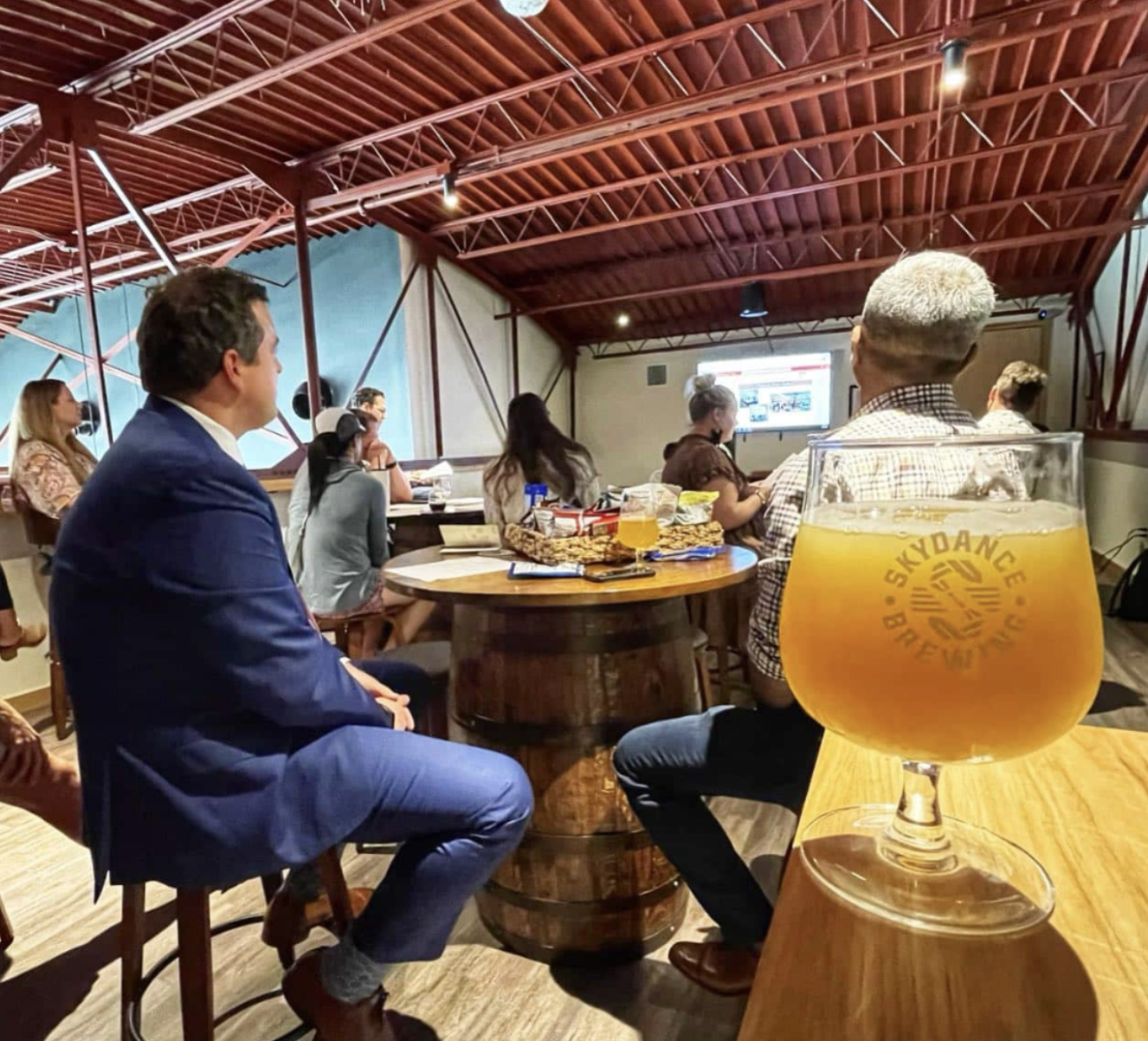
Photo Courtesy Skydance Brewing
Skydance Brewing: A Native American-owned and operated brewery out of Oklahoma City, OK, Skydance Brewery is changing narratives about Indigenous people and alcohol. Founder Jake Keyes is a member of the Iowa Tribe, opening his brewery in 2018 in a beer co-op. In 2021, Skydance moved into its independent taproom and production space. The brewpub’s beers are available in Walmart locations in Oklahoma.
Skydance uses a few sustainable practices, like reusing heard water during brewing. Ingredients are shipped from all over North America; some even come from abroad.
Keyes is determined to bring awareness to Native American brewing. Indigenous people only own 0.4% of craft breweries in the U.S. Skydance hopes its beer is bringing attention to the relationship between Native peoples and alcohol. They are working to dismiss stereotypes that have existed in American culture for decades.
Native Americans made their own beers and wine long before the first Europeans arrived in North America. Today, Skydance hopes it’s spreading a positive message while promoting Tribal entrepreneurship.
Pennsylvania
Yuengling, the oldest brewery in the country, resides near Pittsburgh, PA. However, it’s not the only brewery in Indiana County. Here, a group of businesses is banding together to promote the use of Pennsylvania-grown crops for brewing, stimulating the regional economy.
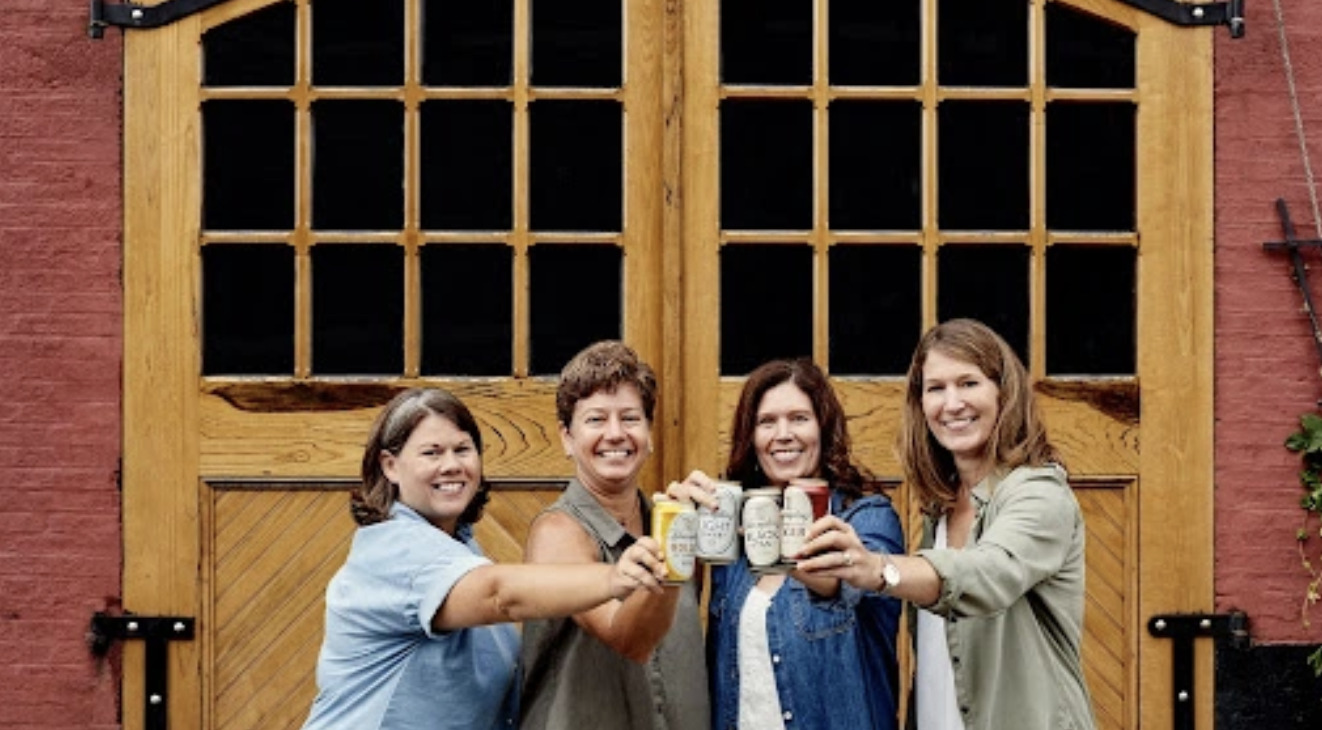
Photo Courtesy Yuengling
Pennsylvania Breweries: Indiana County, PA, is home to Yuengling, one of the oldest breweries in America. With a mission to promote sustainable agriculture and communities, a coalition called the Indian County Conservation District is teaching local farmers and brewers about doing business together.
A 2021 Pennsylvania Farm Bill allocated $460,000 to specialty crop projects, which include hops, hemp, rye, wheat, and others. The funds will help farmers get brewers’ materials for big batches of beer. Pennsylvania has more than 350 breweries statewide, but some of the biggest are in Indiana County. The craft brewing industry generated around $5.6 billion in revenue in 2019.
As more money is made and more breweries open, there is a greater emphasis on education for brewing. Penn State University was awarded a grant from the state agriculture office to develop a craft brewing program. This program would teach people how to brew beer properly and what kinds of grains to use. As the industry continues to thrive, so will farming in the state.
Rhode Island
Small-state craft breweries always go the extra mile. It’s how they stand out from the rest of the pack, especially when competing with household names like Budweiser, Allagash, and Sierra Nevada. Rhode Island’s Grey Sail Brewing has made sustainability its standout feature.
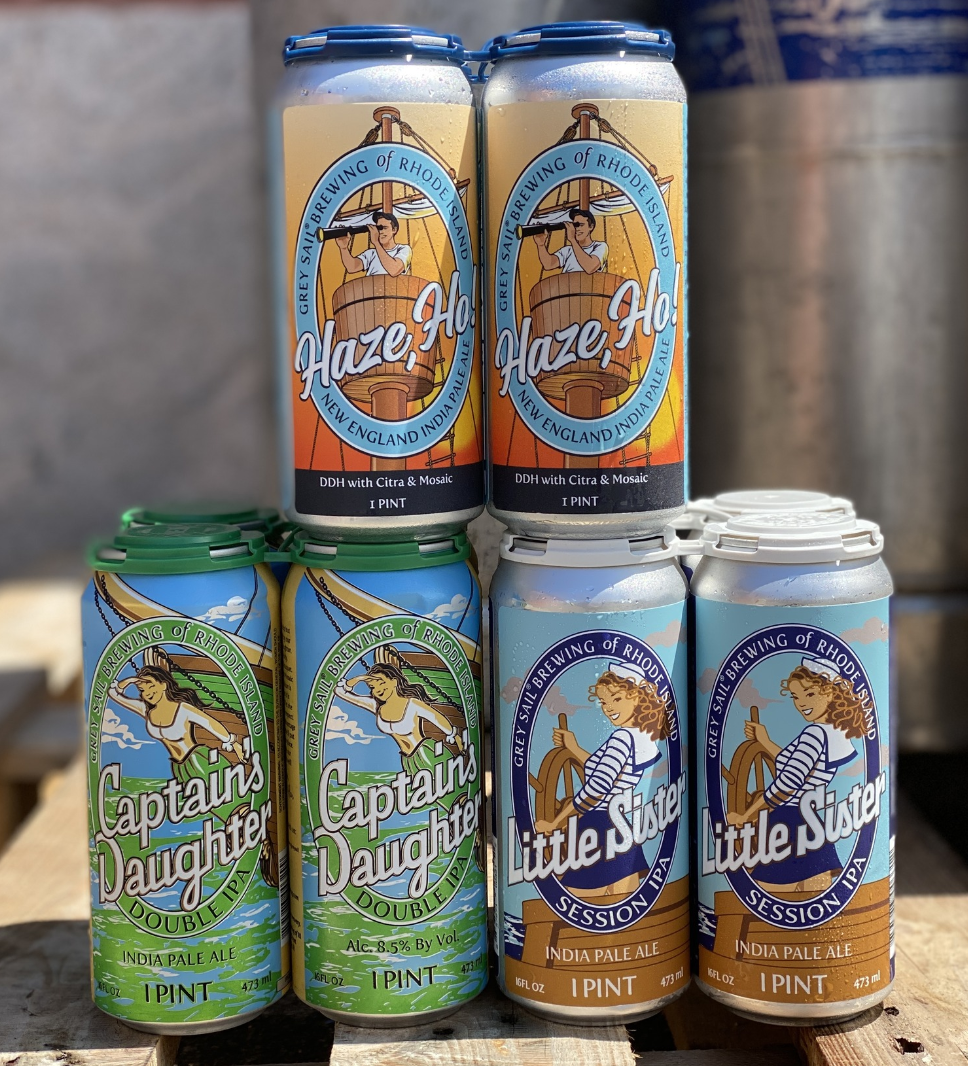
Photo Courtesy Grey Sail Brewing
Grey Sail Brewing: Grey Sail made history when it became the first Rhode Island brewery to use carbon capture technology in its facilities. To reduce and reuse the carbon dioxide (CO2) produced from brewing, the company installed Earthly Labs’ CiCi capture tank. The captured CO2 goes into new batches of beer needing to be carbonated. CiCi has reduced Grey Sail’s carbon emissions — equivalent to 1,500 trees a year.
During the pandemic, there was carbon dioxide rationing, with medical needs being prioritized. Breweries that needed CO2 had to find more environmentally-conscious ways to get the gas.
Jennifer Britton, the co-founder of Grey Sails, says her company is already seeing a return on investment with carbon capture.
With more legislation supporting eco-friendly business practices, breweries can benefit from tax breaks and federal funding. Grey Sail is just one small cog in the Rhode Island economy, hoping to hit 40% reductions in greenhouse gas emissions.
South Carolina
The Palmetto State loves beer. Greenville, SC, has a growing microbrewery scene, but many others exist in other parts of the state. While not every brewery in South Carolina runs sustainably, more are operating with low environmental impacts in mind.
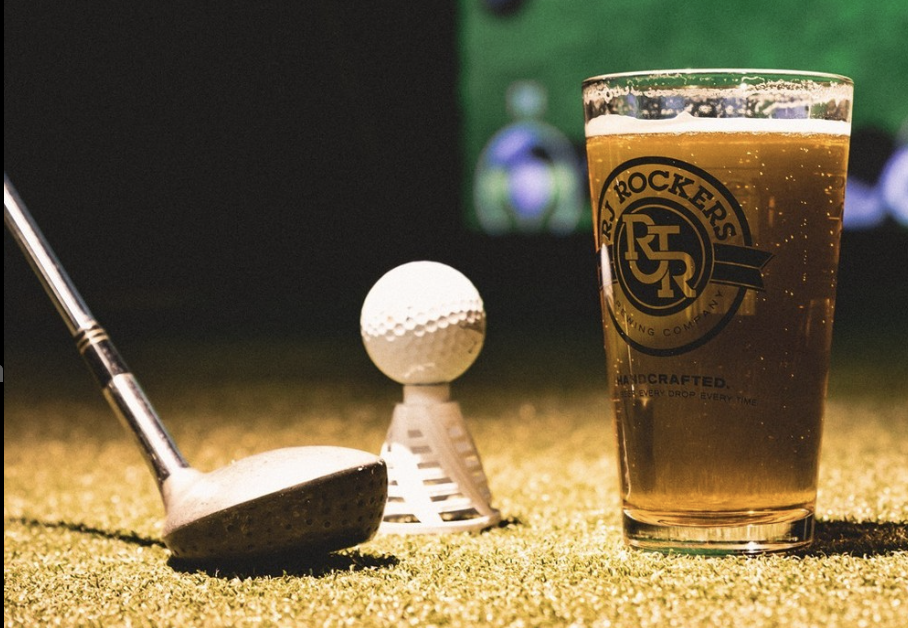
Photo Courtesy RJ Rockers Brewing Co.
RJ Rockers Brewing Co.: RJ Rockers was co-founded by Mark Johnsen after he finished his military service. His travels took him to Germany, where he learned the ways of German brewmasters. In 1997, he opened the city’s first brewery when he returned to Spartanburg, SC.
Now settled in downtown, RJ Rockers is going green. Solar panels have been installed on the roof, which feeds the water heating system. It’s expected to reduce 300,000 tons of greenhouse gas emissions in the next 30 years.
The brewery also keeps up with the local laws, implementing environmental work policies to keep waste low. They switched from glass bottles to aluminum cans when Spartanburg canceled glass recycling.
Lighting in the taproom and brewery floor uses motion sensors to reduce energy consumption. All the spent grain is taken to cattle farms near the city. The company is also piloting a composting program from their restaurant waste.
During the pandemic, the brewery donated a dollar for each sale of “Bring Back the Burg” crowlers (a giant 32 oz. can) to a community Small Business Fund. The brewery hopes more sustainable business practices become standard in South Carolina. These laws will save business owners money and will have a positive impact on the community.
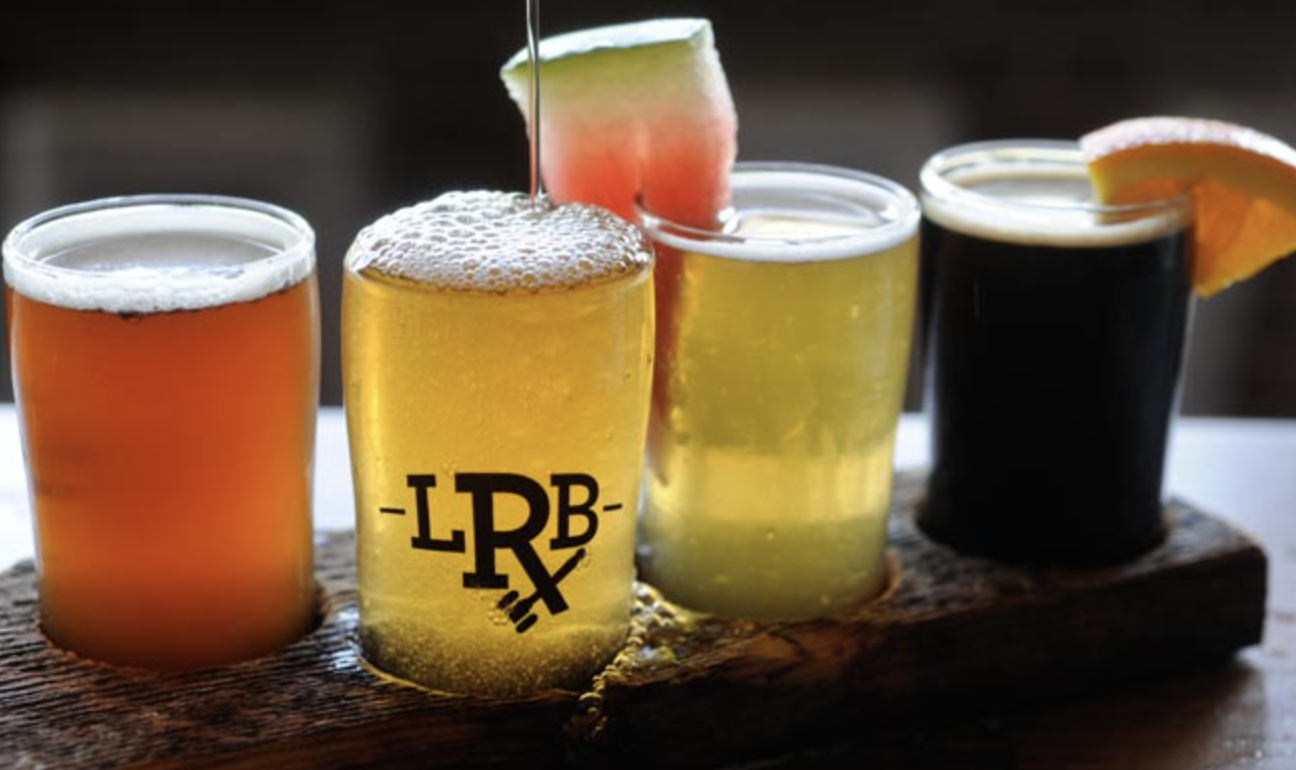
Photo Courtesy Legal Remedy Brewing Co.
Legal Remedy Brewing Co.: Located in Rock Hill, SC, Legal Remedy Brewing was born when five friends converted a former auto dealership into a brewpub. With a speed canning line, increased cooler space, and the capacity to brew 10,000 barrels of beer a year, the brewery captured the hearts of beer enthusiasts everywhere.
All ingredients are sourced from local suppliers, and the business uses renewable energy for about 35% of total energy needs. The heat from brewing is recycled to save energy further, and they compost any waste that can’t be recycled or donated. Spent grain is donated as livestock feed for farmers.
The chef at Legal Remedy is a board member of The Catawba Farm and Food Coalition, which helps create sustainable food systems.
The most novel eco-friendly measure at Legal Remedy is a bioretention area in the ground of the parking lot. It fills up with runoff from the parking lot, then filters any contaminants. It’s still a young brewery, but Legal Remedy is showing other sustainable breweries how to thrive.
South Dakota
Sioux City, SD, is home to Severance Brewing. It was only founded in 2019 but has already become a landmark, being voted one of the “Coolest Taprooms” in America. What’s really cool about Severance is its charitable work with first responders, teachers, and veterans.
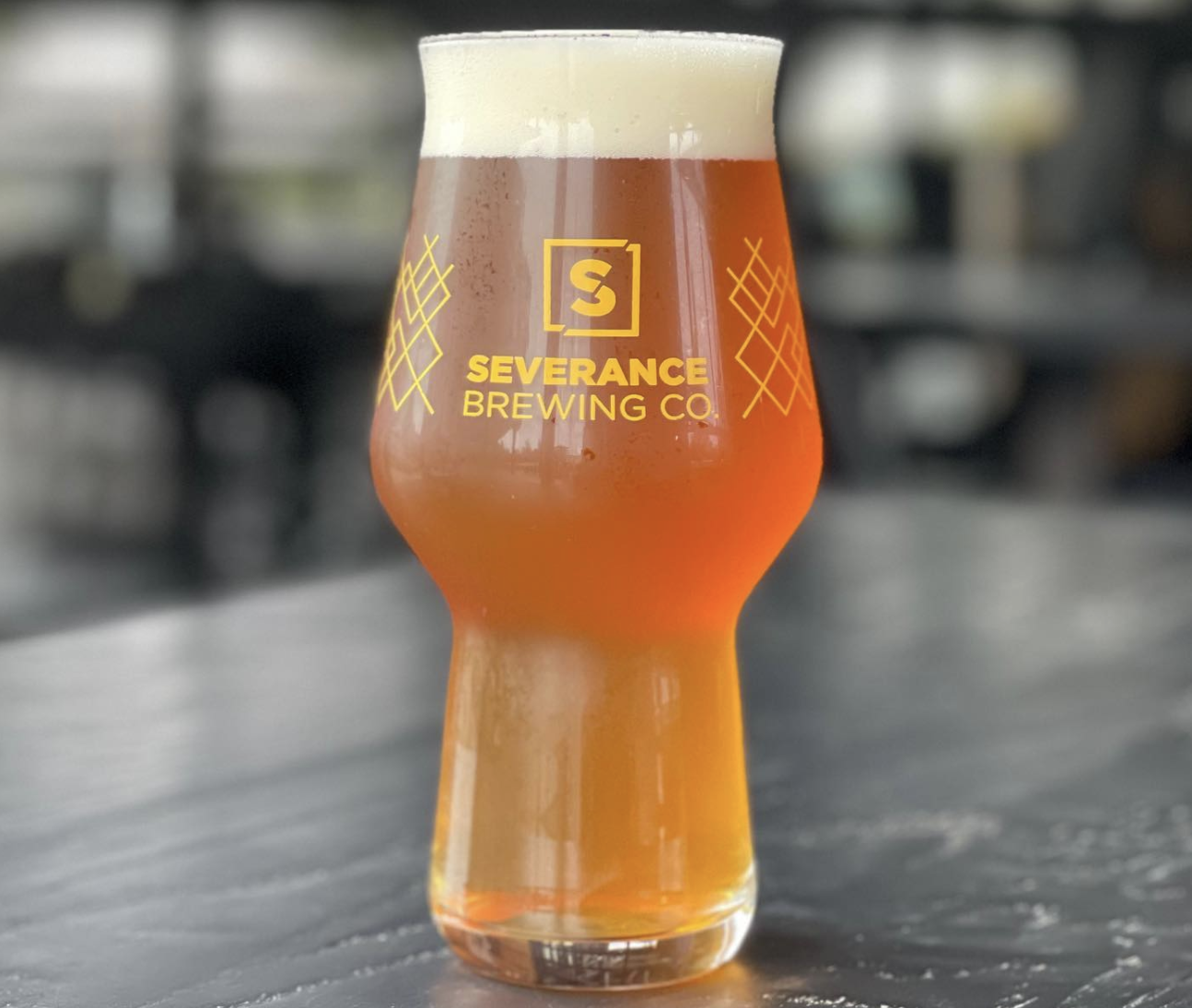
Photo Courtesy Severance Brewing Co.
Severance Brewing Co.: Founded in 2019 by Scott and Melissa Heckel and Mark and Jennifer Stavenger, Severance Brewing is one of the most sustainable and philanthropic breweries in South Dakota. The brewing company has a system that recaptures heat from the glycol chiller, a component of the fermentation tank. They pump this heat into the complex’s underground parking garage, saving money and energy. The chilled water is reused for future brews or cleaning.
Another nifty strategy involves a special yeast that allows it to pitch at hotter temperatures. This effort also saves water and energy.
The brewery believes in taking care of the Sioux Falls community. A fun program at the brewery is the Pints for People program, where customers can buy beer for teachers, first responders, and veterans, getting their names on a sticker wall. They also run the Give Back Tap Events, where they pick different organizations to donate proceeds. One recipient is the Sioux Falls Area Human Society.
On top of its sustainable and charitable efforts, Severance is a fun spot. It even won a “Crunchie Award” at the Craft Beer Marketing Awards for having one of the top four “Coolest Taprooms” in North America.
Tennessee
The Volunteer State has many breweries that have joined the Tennessee Brewers Guild. It promotes sustainable business practices like farm-to-tap ingredient sourcing. It’s helping stimulate the economy as farmers and brewers work together to make delicious beer.
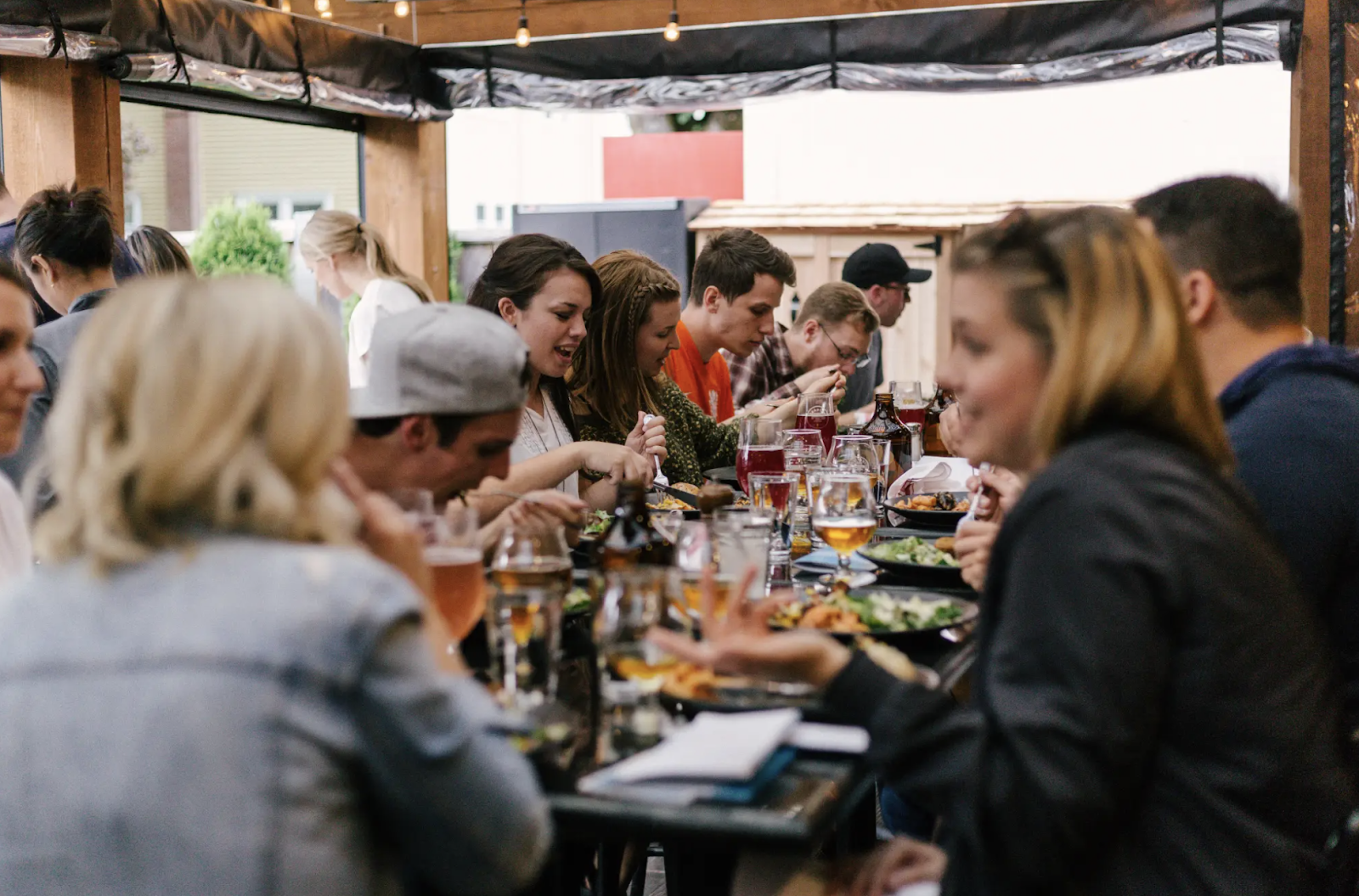
Photo Courtesy Priscilla Du Preez
Tennessee Brewers Guild’s Farm to Tap Initiative: A coalition of craft brewers in Tennessee called the Tennessee Brewers Guild uses “farm-to-table” concepts in a new initiative called Farm to Tap. Rather than sourcing brewing ingredients from far-away places, they are purchasing locally-grown crops for beer lines.
More craft breweries exist in America than ever before, and more people find that locally-made beer tastes better. The Farm to Tap campaign is a coordinated effort to ensure that the state economy is actively stimulated. When Farm to Tap was launched, it received $350,000 from the state assembly to speed up the project’s impact.
Kyle Hensley, a consultant for the Tennessee Department of Agriculture, said brewers are sourcing grains for beer as well as watermelon, strawberries, nuts, and honey. This local sourcing keeps carbon emissions low, reduces shipping costs, and saves brewers money on ingredients.
Consumers seem willing to pay extra for a beer made at a local brewery with local crops. Farmers get some major financial relief while the breweries continue to grow their brands — a win-win situation.
Texas
Everything is bigger in Texas. The mantra applies to breweries, too. Austin is home to eco-friendly spots like Jester King, which uses renewable energy and captured rainwater to save energy and water, keeping costs low.
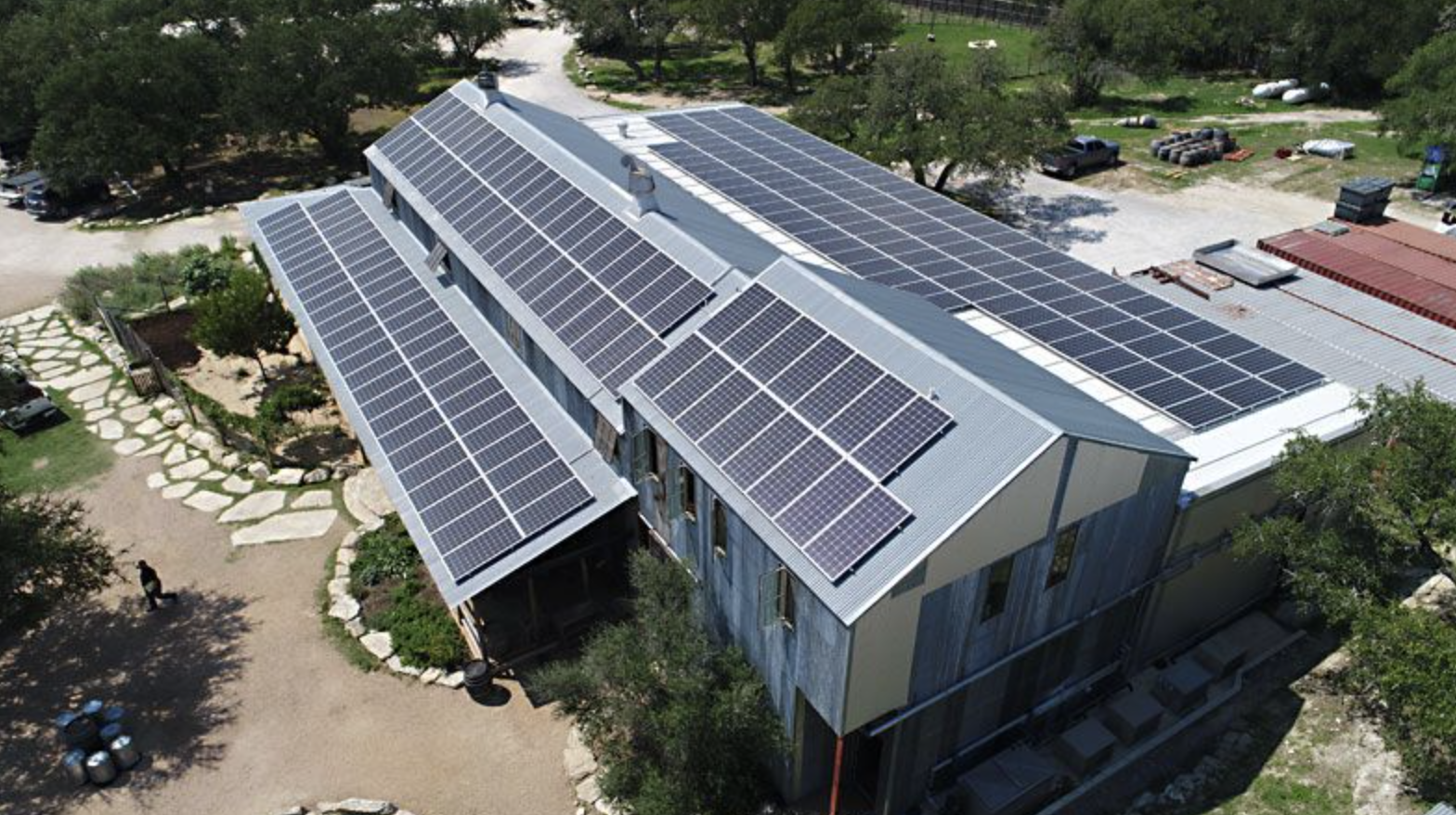
Photo Courtesy Jester King Brewery
Jester King Brewery: Based a half hour outside Austin, TX, Jester King’s ales are a modern spin on the traditional European farmhouse variety. Started by Jeffrey Stuffings and his brother Michael, the brewpub has grown into one of the most sustainable breweries in Texas.
The brewmasters make beer with open-air fermentation, using different types of yeast to ensure they get the best brew from natural fermentation. This process is slower, taking up to three years to create a full beer barrel. However, the flavor richness is worth the wait.
All of Jester King’s brewing materials come from within Texas, keeping the circular economy afloat. The brewing water comes from an onsite well, giving it a unique mineral complex that enhances the flavor.
There are plans to install rainwater harvesting and wastewater treatments at the brewery. Jester King also has one of the largest solar arrays in Central Texas. The in-house system feeds excess energy into the local grid.
The farmland the brewery is located in is expanding to grow more crops and promote biodiversity. Hops and grapes are grown, while goats help fertilize plants and control weeds around crops. It’s all part of Jester King’s nuanced and careful sustainability plan.
Utah
Salt Lake City continues to expand into a bustling, cosmopolitan city. More craft and small businesses are opening as more young people move there. Uinta Brewing is one of these, becoming a fan-favorite early in the 2000s. They’ve been operating sustainably for close to 12 years.
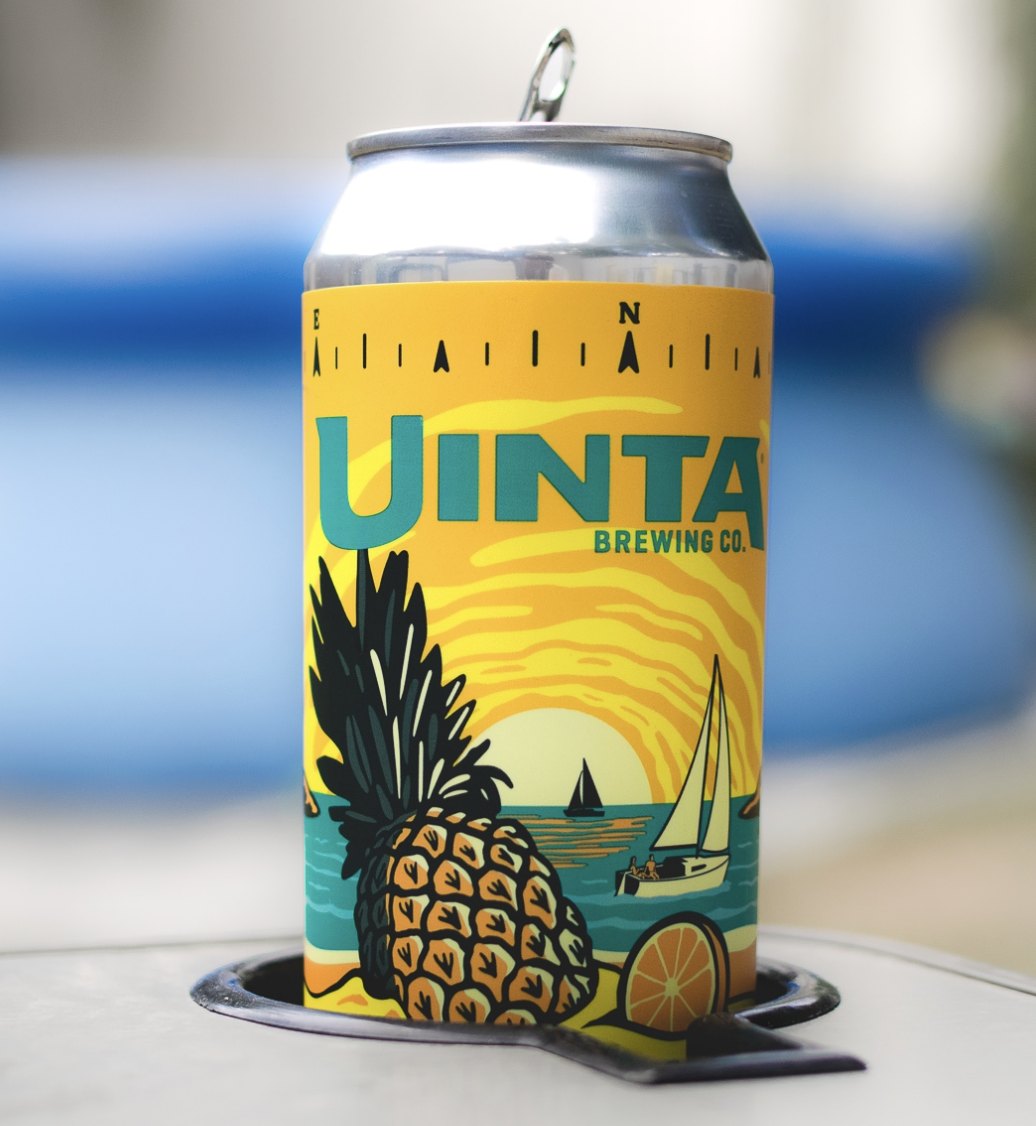
Photo Courtesy Uinta Brewing Co.
Uinta Brewing Co.: Based in Salt Lake City, UT, Uinta Brewing is named after the Uinta Mountain Range. The brewery’s doors truly opened in 2000, but owner Will Hamill started brewing in 1993 out of an old mechanic’s garage. Now, he has a 26,000-sq-ft custom facility.
Uinta was one of the earliest pioneers of sustainable brewing. In 2001, it switched to 100% wind power for all energy needs. Ten years later, solar panels would be added to make the business even more sustainable.
A Belgian BreauKon system reduces wasted time and energy in the brewery. All spent grain is sent to local ranchers for animal feed, and heat recapture and reused steam from each brewing cycle heat the next batch. A centrifuge separates waste from the liquid solutions to filter water and beer brews.
These measures have helped Uinta win 51 awards across multiple beer competitions. To help the community, the brewery works with local companies and artists to promote their products. One project included working with the Utah Avalanche Center for a limited-release cream ale.
Virginia
As mentioned in our Maryland coverage introduction, Virginia is part of the growing DMV beer sector. Many of Virginia’s breweries focus on locally-sourced ingredients, shopping within the state for ingredients like blueberries and wheat. They also use renewables in their brewing process.
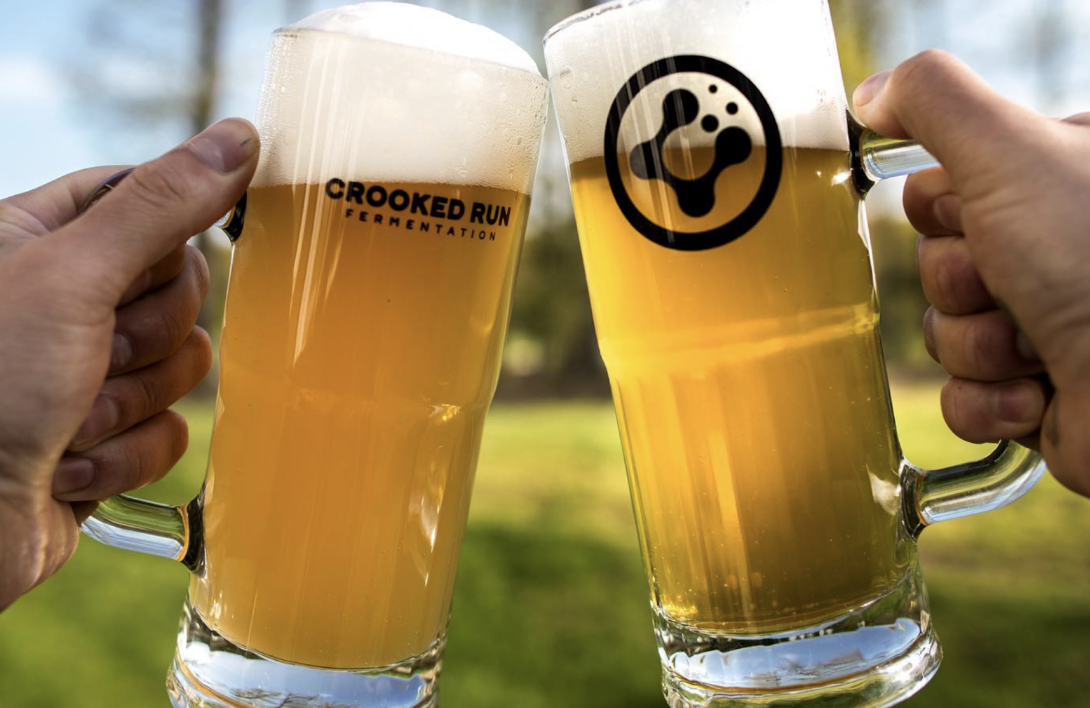
Photo Courtesy Crooked Run Fermentation
Crooked Run Fermentation: With three locations split between Sterling and Leesburg, VA, and Washington, D.C., Crooked Run is becoming a DMV go-to. Founders Lee Rogan and Jake Endres have been experimenting with different flavor profiles to create new lines of ales and original fruit beers brewed with strawberries, blueberries, peaches, and grapes. All the produce for these brews is sourced from within Virginia, creating a circular economy in the state.
The Sterling location is the most expansive, offering a taco stand, a biscuit kitchen, and a cocktail bar that sells cold-pressed juices.
Crooked Run is not afraid to try new recipes or introduce new products. The Native Culture fruit beer line is one of the best-selling products at the brewery. Rogan and Endres are committed to fostering a sense of community with customers, and they show that with original festivals put on by the brewery.
In 2021, the first-ever Propagation festival took place where customers could try upcoming Crooked Run releases. A second edition of Propagation took place in April 2022. September 2022 was their Oktoberfest, continuing the trend of enhancing community ties.
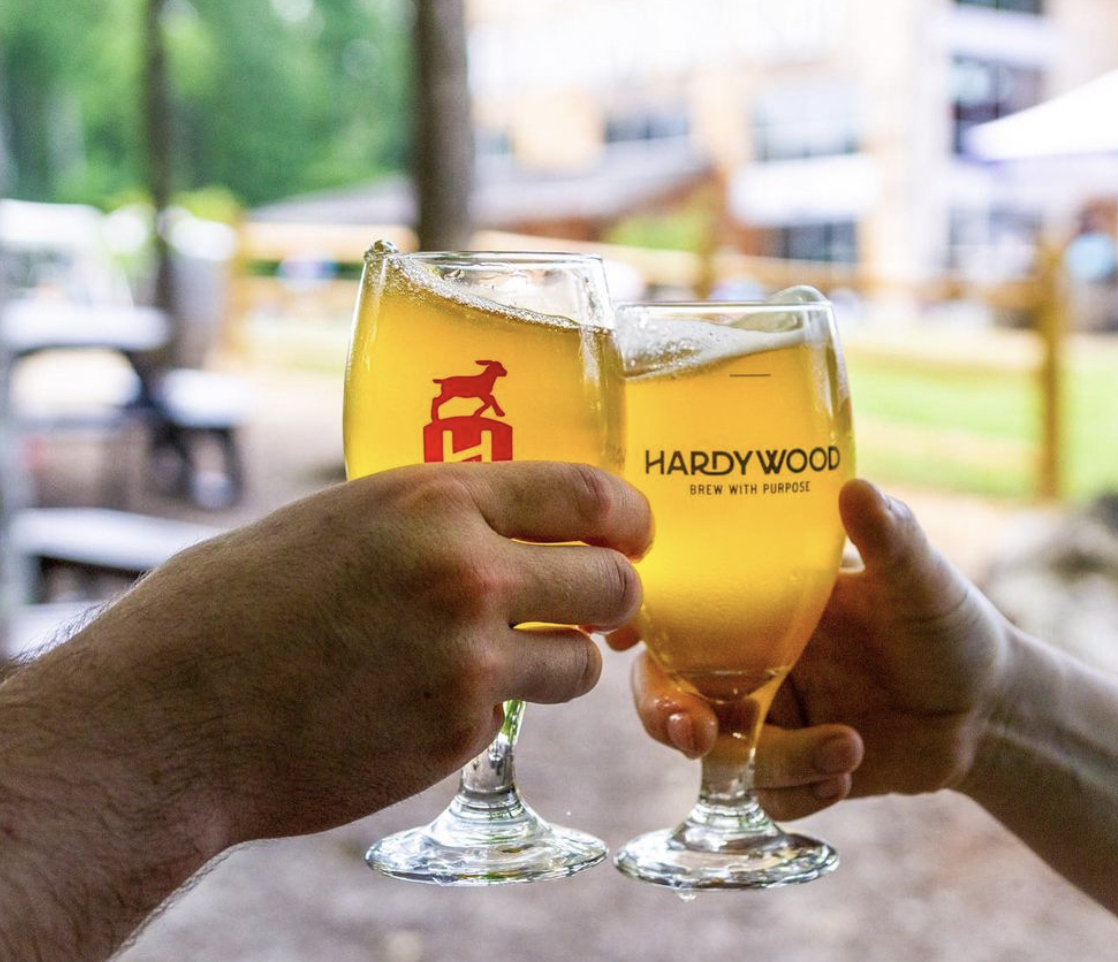
Photo Courtesy Hardywood Park Craft Brewery
Hardywood Park Craft Brewery: Located in Richmond, VA, Eric McKay and Patrick Murtaugh have run Hardywood Park Craft Brewery utilizing local ingredients from around the state. With locations in West Creek and the German Brewing District, McKay and Murtaugh want to give back to the community that made them successful.
The brewery collaborates with multiple Virginia farmers for brewing resources, going beyond wheat and barley for beer. Some have even offered things like Hawaiian ginger for brewing, a key ingredient in the Gingerbread Stout. These relationships with growers allowed Hardywood to host farmer’s markets.
Another partnership with the Dominion Virginia Green Power Program earned Hardywood the accolade of being the first Virginia brewery to run on 100% renewables. A combination of solar, wind, and biomass powers the brewpub. All the spent grain from brewing is also given to farmers for animal feed.
Some charitable causes it’s involved with include conservation efforts for the James River, Virginia Capital Train Foundation, Ales for ALS, and others. The brewery also continues to promote Richmond-area musicians and artists.
Wisconsin
With a deep history of beer brewing, Milwaukee, WI, is up there with St. Louis as one of the formative areas of America’s beer industry. Yet, the city is not without some small-time brewpubs that operate with conserving the environment in mind.
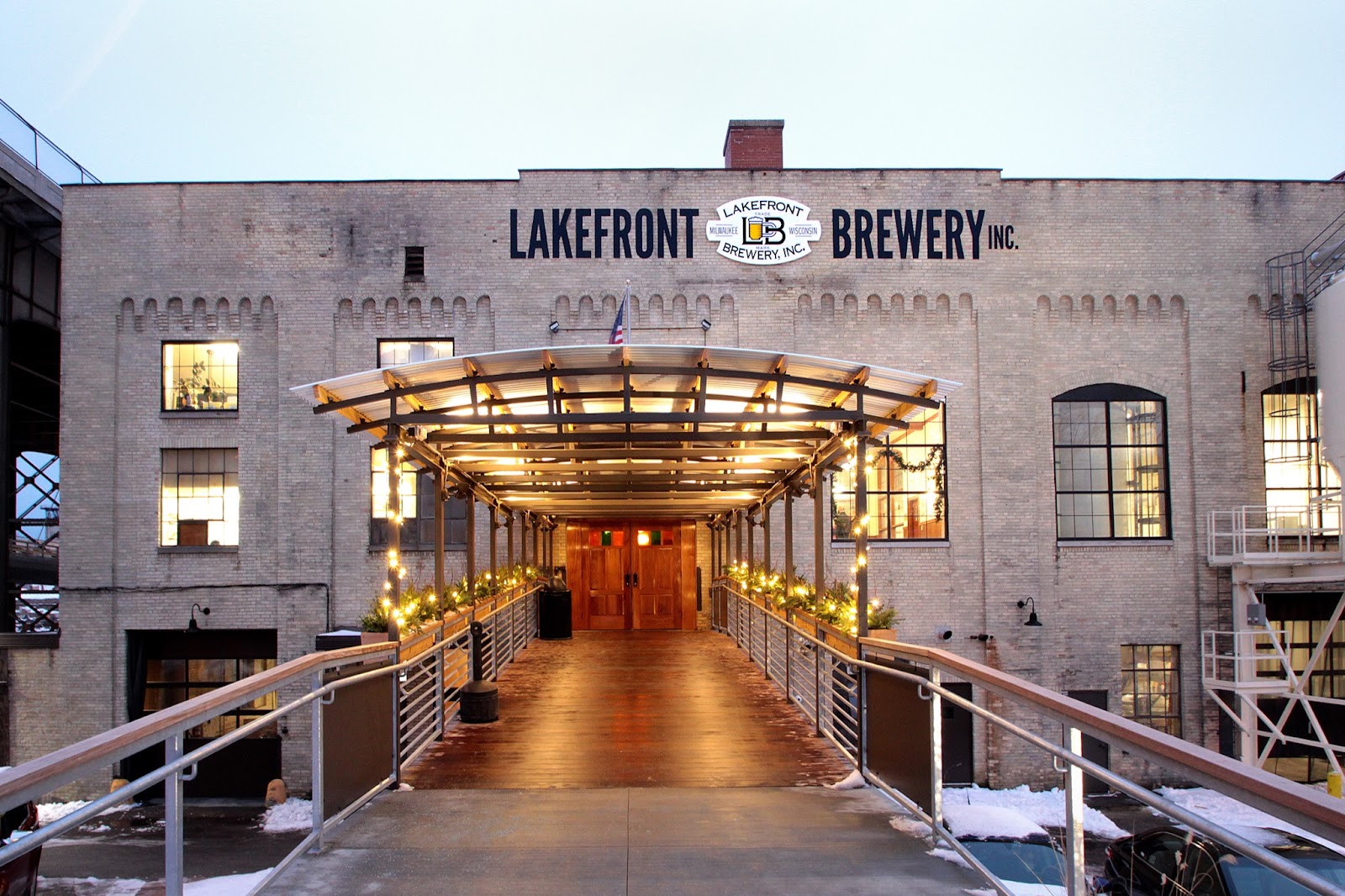
Photo Courtesy Lakefront Brewery
Lakefront Brewery: Russ and Jim Klisch formed Milwaukee, WI’s Lakefront Brewery in 1987. What began as DIY home-brewing transformed into a lucrative business venture. The two initially tried to outdo one another with their home brews when both won awards at a local beer competition.
In 1988, they moved into their first brick-and-mortar storefront, only moving locations a decade later to meet production demands. For the next 30 years, Lakefront Brewing would become a Milwaukee icon.
It has a strong waste reduction policy, constantly reusing and repurposing. Solar panels — 254 — were added to the roof of the cold storage warehouse in 2017 to keep the brewery’s carbon footprint low.
As of 2022, the panels create 73.69 megawatts of electricity per year.
Production has grown from 3,000 barrels to 47,000 barrels every year. It’s the country’s first certified organic brewery, earning this status in 1996. Many of Lakefront’s beers are brewed with Wisconsin yeast or grain, keeping the supply chain local. They even have an FDA-certified gluten-free beer, which they’ve made since 2005.
West Virginia
“Country Road, take me home / to the place / I belong / West Virginia!” A classic John Denver tune that never goes out of style. IPAs and stouts haven’t either, and that’s what’s cooking up at some of West Virginia’s top craft breweries.
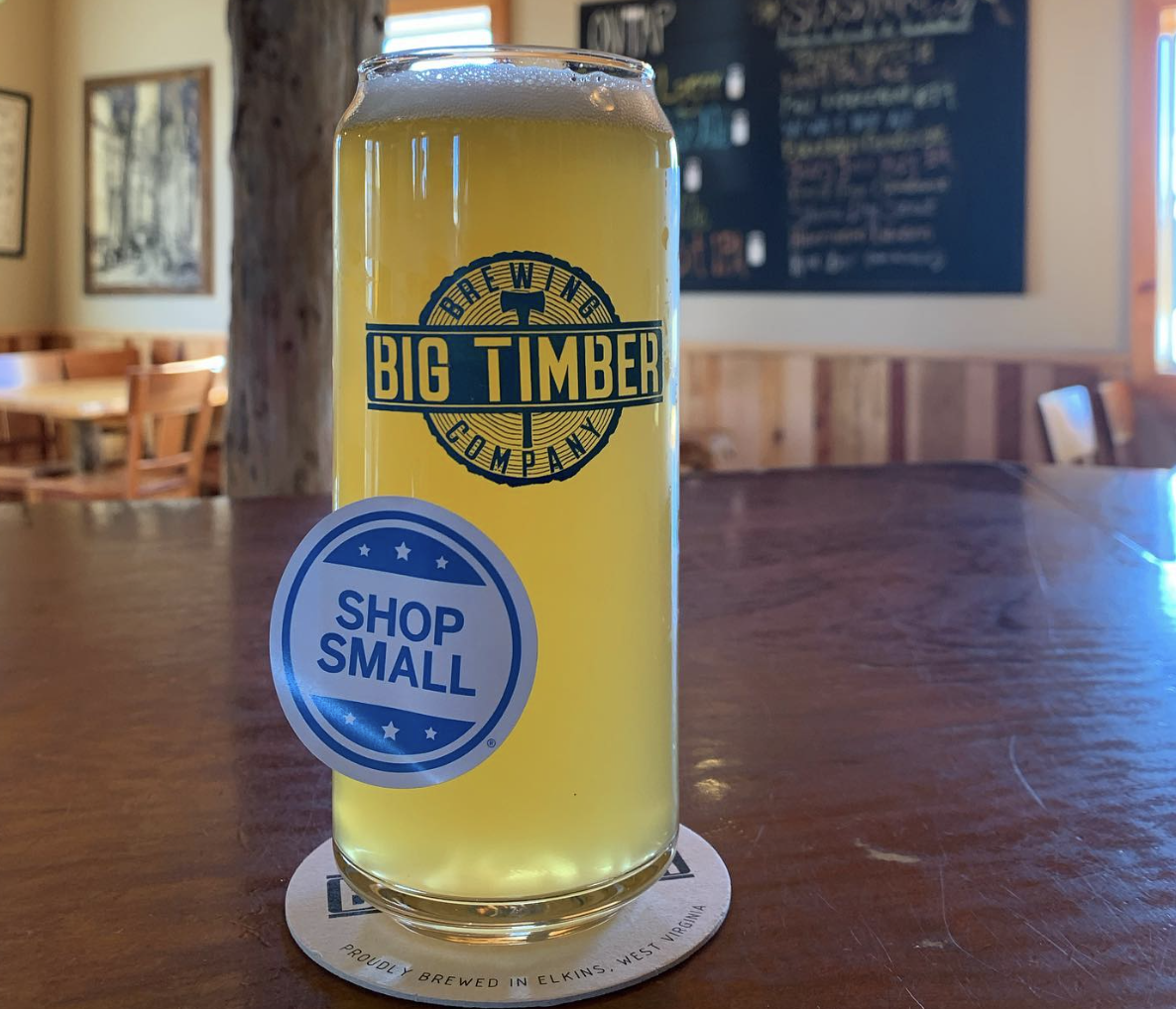
Photo Courtesy Big Timber Brewing Co.
Big Timber Brewing Co.: Husband and wife team Matt and Ashley Kwasniewski opened Big Timber in Matt’s hometown of Elkins, WV. Situated in the Tygart River Valley, the couple is trying to boost the tourism sector of the small town. They want to show how wonderful West Virginia can be.
The venture was inspired by the couple’s traveling experience across America, where they stopped at other craft breweries. They noticed how many tried to encapsulate nature in a bottle, so they decided to do the same in Elkins. There are several non-traditional flavors in Big Timber’s selection, like jalapeno mixed with cinnamon ale. Most ingredients are sourced within West Virginia, keeping the economy central to the state.
The company keeps operations sustainable, donating spent grain to cattle farmers near the brewery. Solar panels on the roof handle the brewery’s energy needs. The Kwasniewski firmly believe that Elkins will blossom into a thriving small town on the river if it becomes a more attractive spot for young couples.
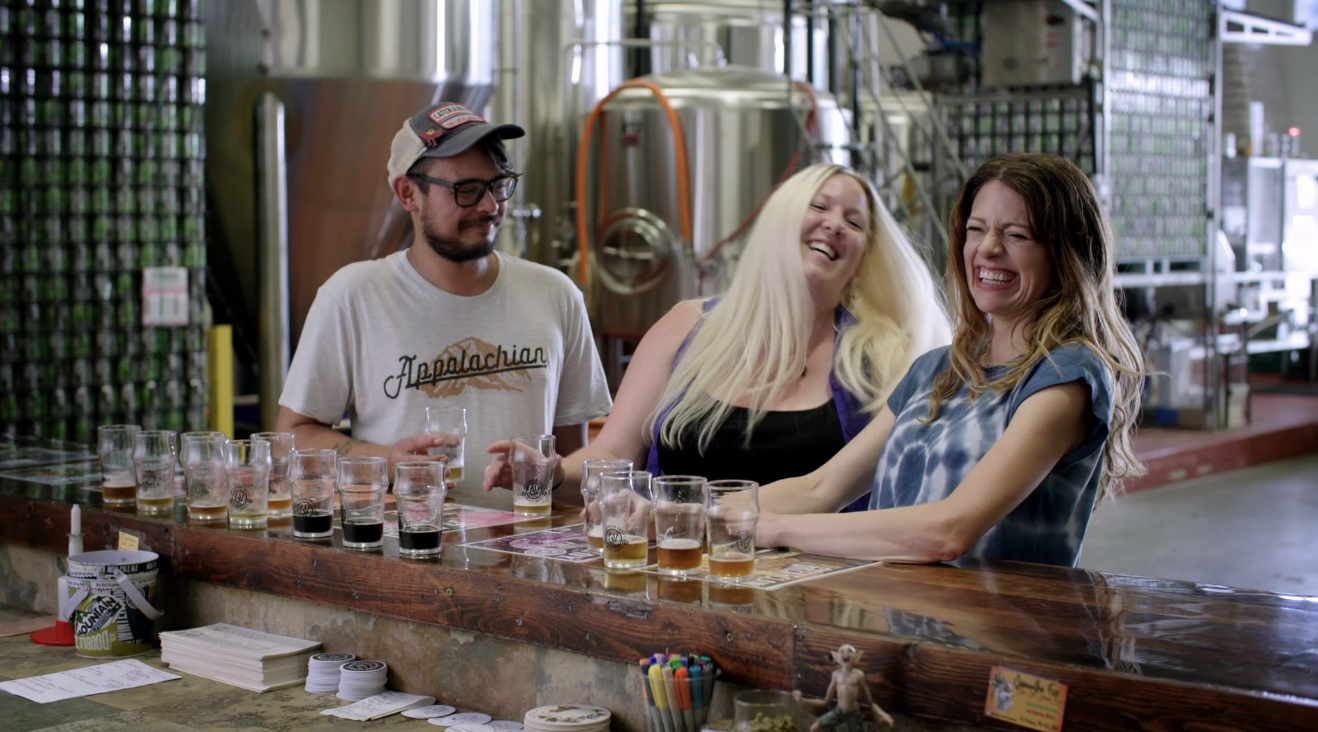
Photo Courtesy Made in America
Greenbrier Valley Brewing Co.: One of the first breweries covered in our Made in America video series, Greenbrier Valley Brewing is a fascinating brewpub. Located in Maxwelton, WV, the brewery is run by Alex Durand and Jeff Frizsell. They have designed various beers dedicated to West Virginia’s rich culture. One line even plays homage to the Hatfield-McCoy beef during the moonshine rush in Appalachia.
Many beers are infused with fruity flavors, mainly from West Virginia-grown produce. Proceeds of certain beers fund philanthropic efforts in the state, like donating proceeds of the 35 parks beer to conserve West Virginia state parks.
Durand and Frizsell hope their beers will draw more attention from beer lovers in the state, as most of West Virginia’s beer comes from elsewhere.
Greenbrier is participating in a Department of Labor apprenticeship program to attract young people to small towns nationwide, building back the state economy and propping up local settings.
Wyoming
Jackson, WY, offers a lot to visitors in winter and summer. Whether skiing or hiking, a day can always end by grabbing a cold one at Roadhouse Brewing. The business embodies the state’s Country-Western vibe in an eco-friendly way.
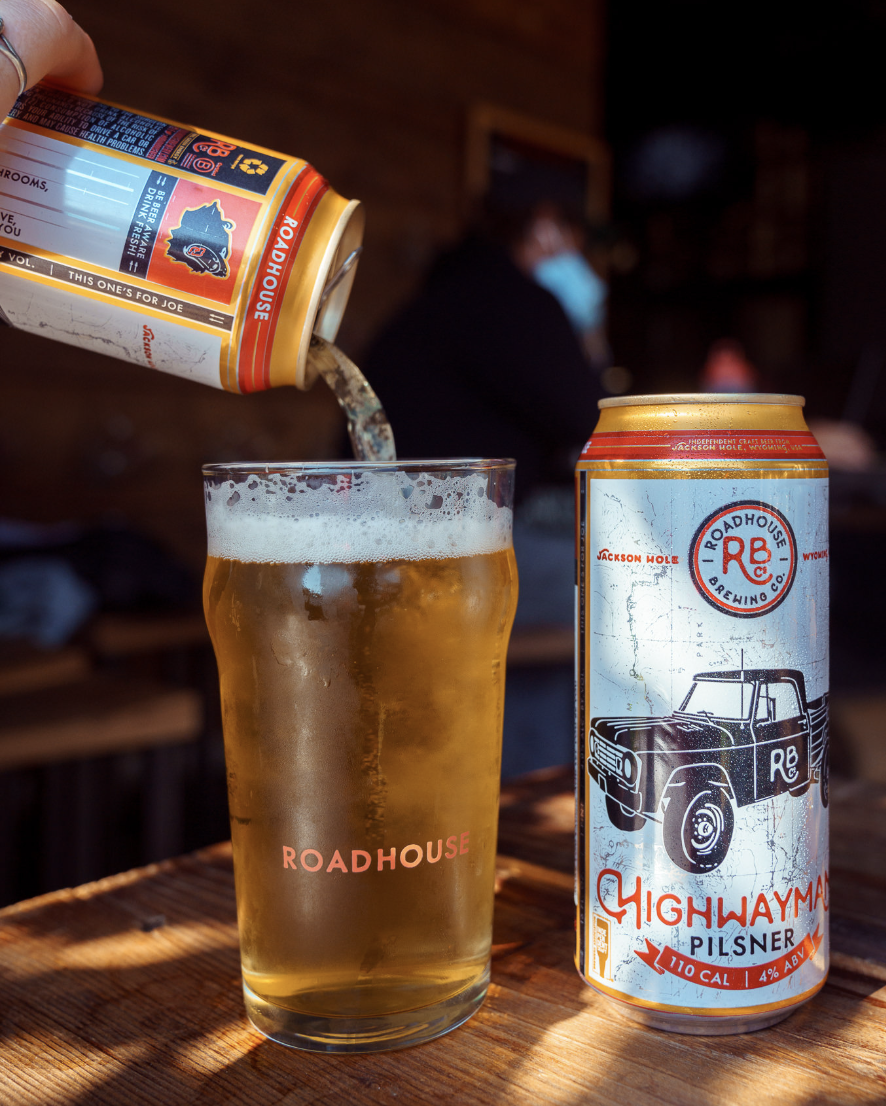
Photo Courtesy Roadhouse Brewing Co.
Roadhouse Brewing Co.: Jackson, WY, is home to Roadhouse Brewing Co., nestled between two stunning mountain ranges. It begun operations in 2012 and was a Certified B Corporation by 2018, showing its commitment to sustainable brewing.
In 2021, Roadhouse won “Best for the World” from B Lab, the nonprofit that certifies B Crops. To adapt to the brutal Wyoming winters, the brewery uses heat capture to reuse heat from steam and keep energy costs down. Specializing in cold storage, Roadhouse installed a louver system to offset refrigeration needs, maintaining a consistently cold temperature in the cooler.
All the brewing grain is sent to grass-fed cattle ranchers, ensuring nothing goes to waste. Solar panels were also recently installed to power the brewery and feed the town grid.
Roadhouse works with organizations like the Teton County Search and Rescue Organization to give back to the Jackson Hole community. Communal activism goes a long way in protecting and preserving Jackson’s wilderness and the people who enjoy it.
International
Carlsberg and Guinness have strong followings outside of their Danish and Irish homelands. There is so much to like about their respective flavors. The same logic can be applied to each brewery’s sustainability methods.
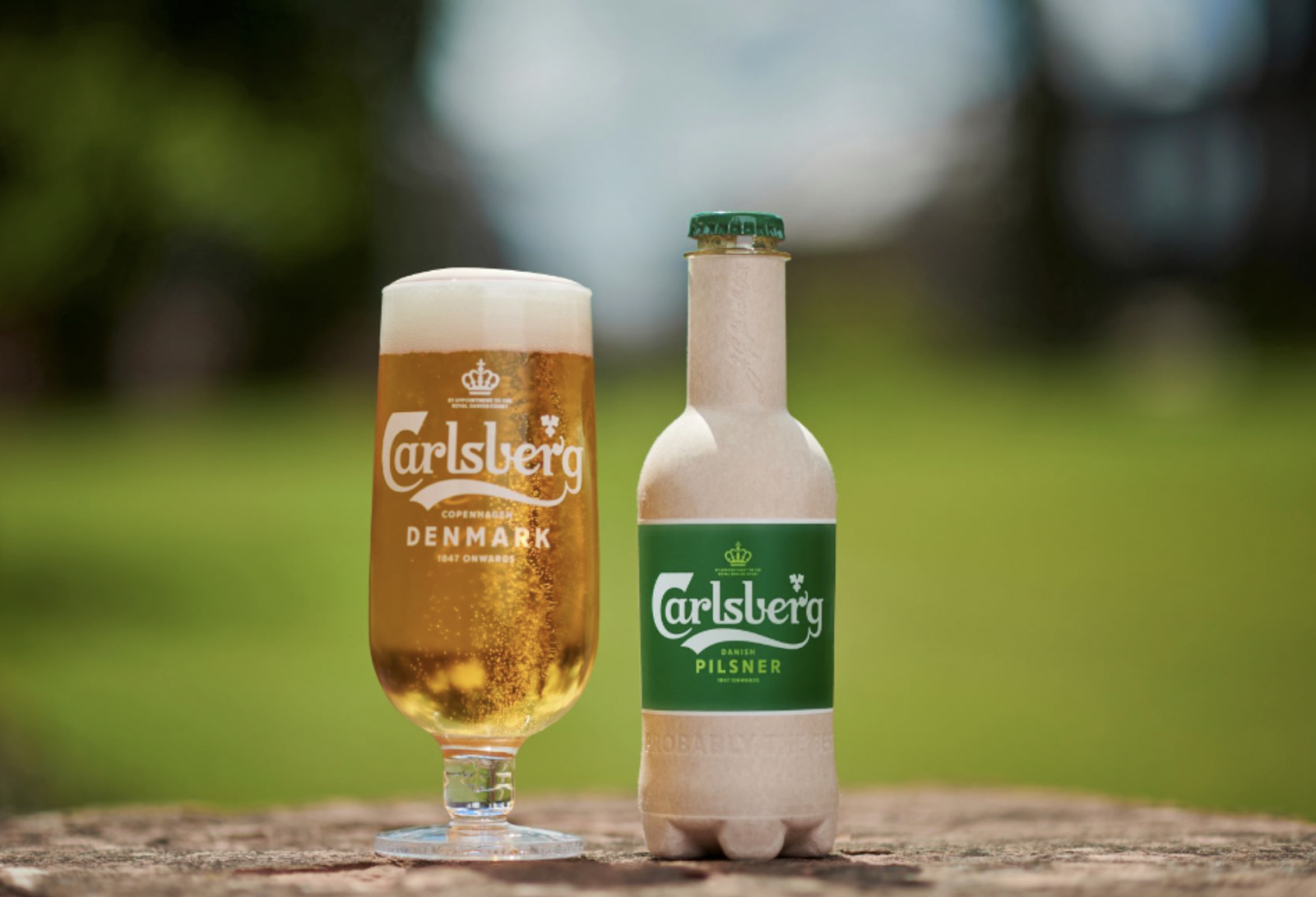
Photo Courtesy Carlsberg Group
Carlsberg Group: More beverage companies are finding new receptacles to package their drinks. In Denmark, Carlsberg Beer is using a plant-based, PEF-lined paper bottle to cut down on recycling waste. They were unveiled at Sail Grand Prix’s race in Copenhagen in August 2022.
A pilot program of 8,000 bottles was successfully launched across eight Western European countries.
The bottle is made from wood fibers, while the inside is coated with PEF polymer to keep it from withering due to the liquid. They are sustainably produced, 100% recyclable, and biodegradable and can even be sorted in plastic recycling like traditional beer bottles.
In addition, five fiber bottles can be created with the same carbon emissions that go into one plastic bottle. The plant-based bottles are driving Carlsberg toward its 2030 carbon neutrality goal. The company’s Together Toward ZERO campaign promotes zero wastewater, zero-emissions shipping, and responsible alcohol consumption for zero alcohol-related deaths.
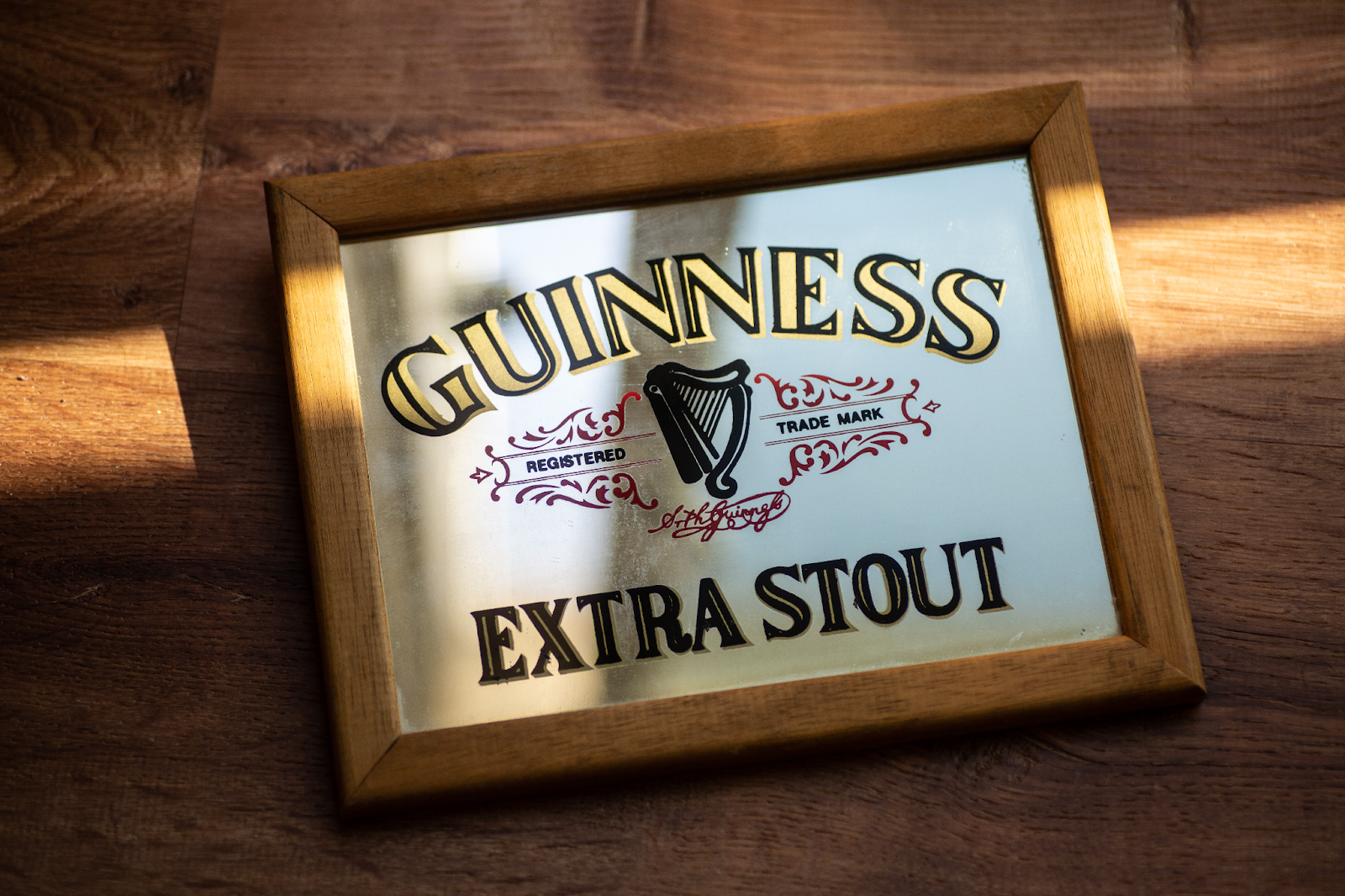
Photo Courtesy Giorgio Trovato
Guinness: After opening its Baltimore-area brewery in 2018, Guinness has taken up significant sustainability initiatives. One is a three-year regenerative farming project to reduce emissions from barley production. All Guinness barley comes from Ireland, using about 130,000 tons yearly. The farm will reduce the use of synthetic fertilizers, improve water and soil quality, and increase carbon sequestration.
These steps will form a sustainable supply chain for Guinness’s famous stout beer. The project is now at 40 farms across the globe, working with some high-level suppliers to take up the mantle. Guinness expects the program to end in April 2023, should everything go to plan.
The results will be shared publicly by Guinness’s parent company, Diageo. The hope is the sustainability of regenerative farming will inspire other beverage makers. The farming concept is only one part of Diageo’s Society 2030: Spirit of Progress strategies. The goal is to slash Scope 3 emissions in half by 2030 and be net-zero in all business operations. Guinness is the first of Diageo’s alcohol brands to take up such initiatives.

